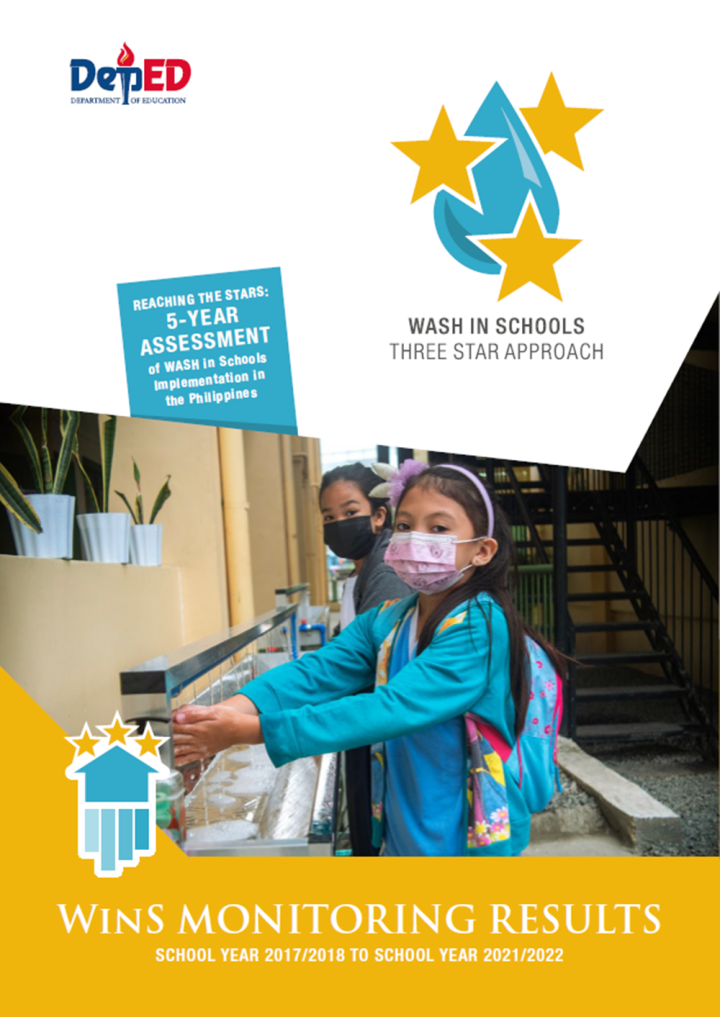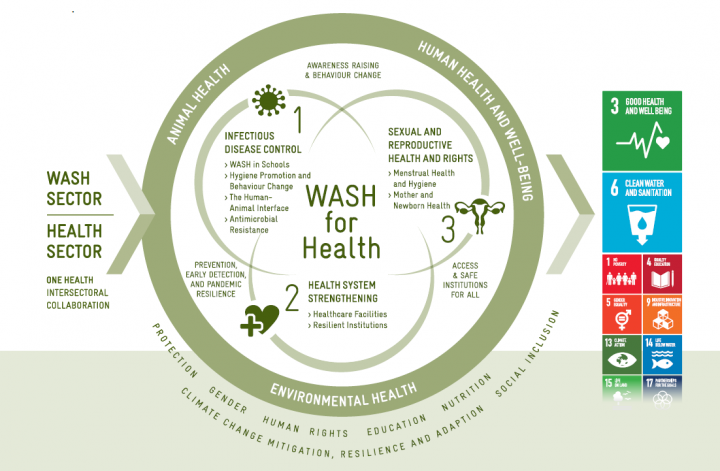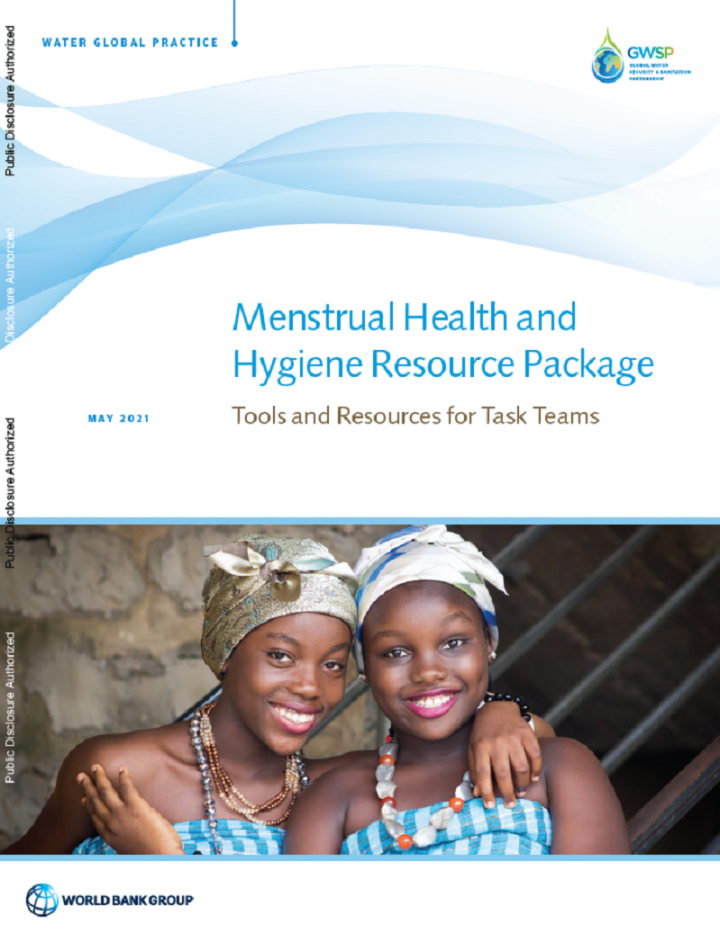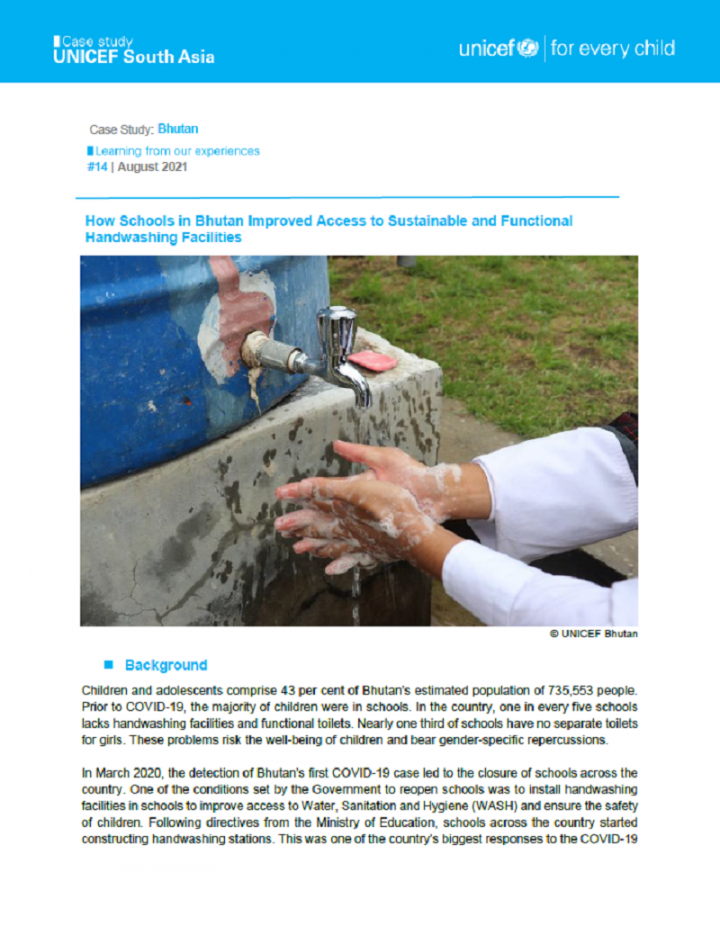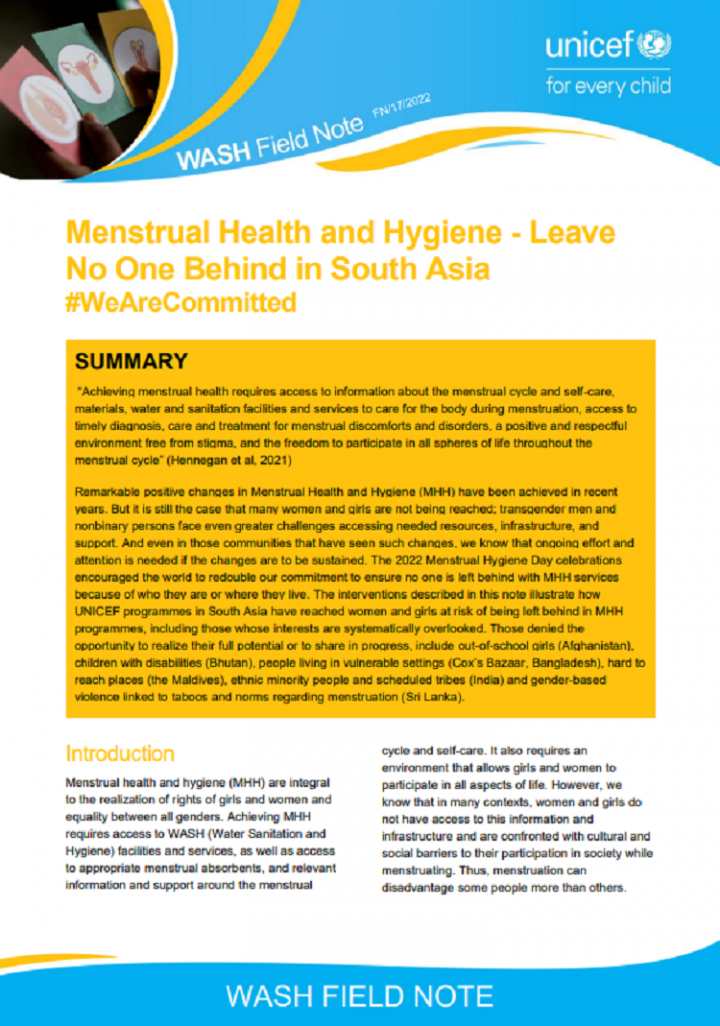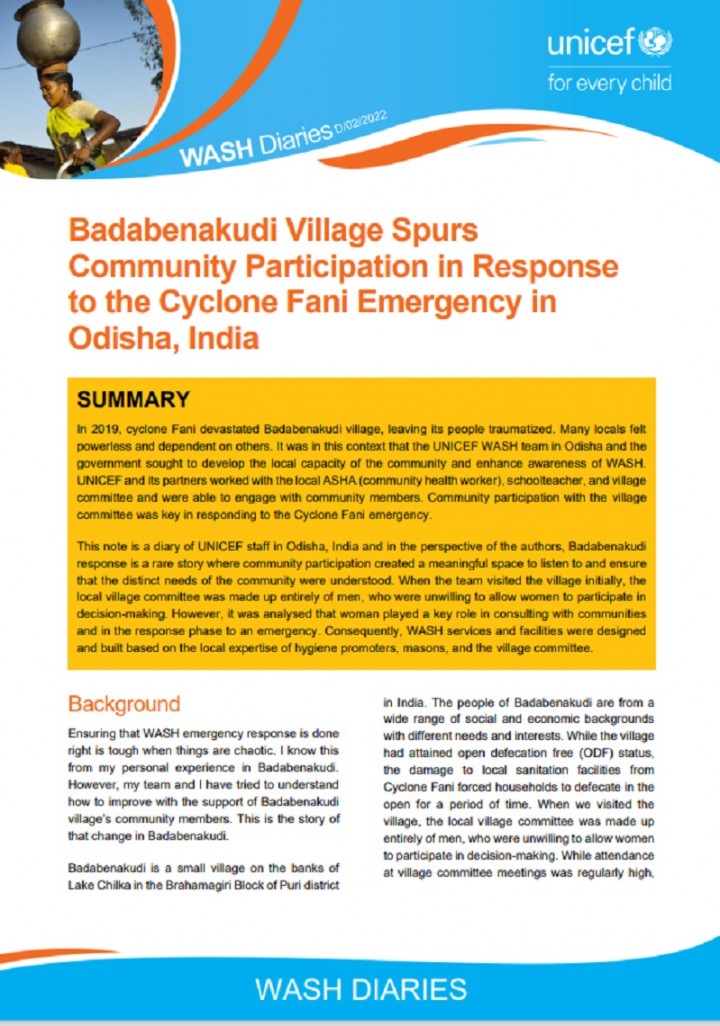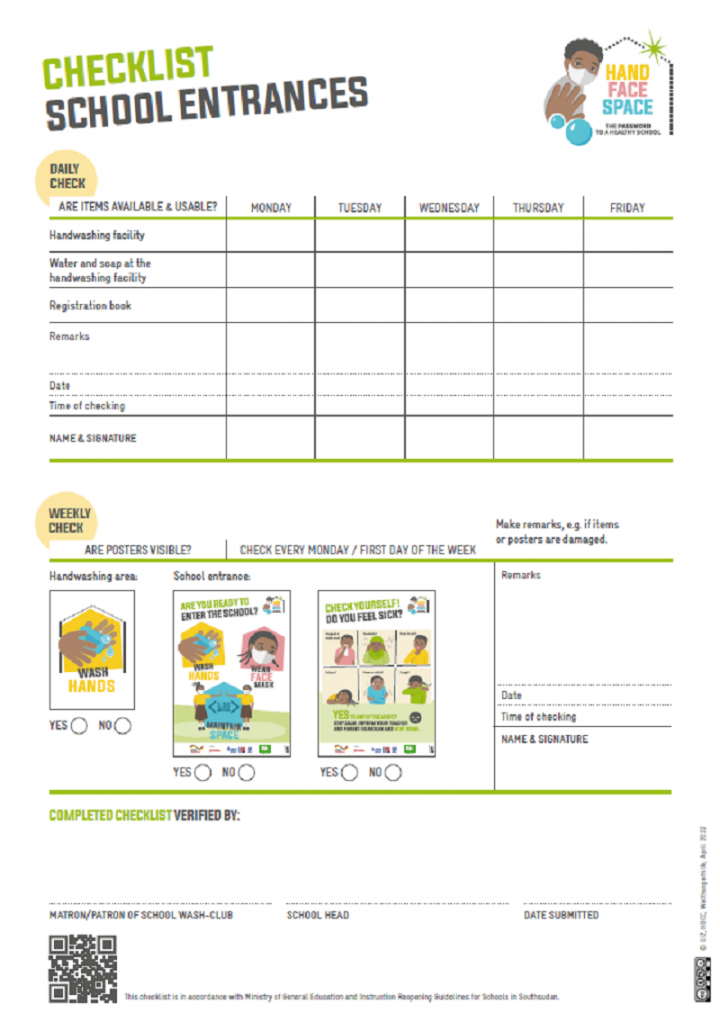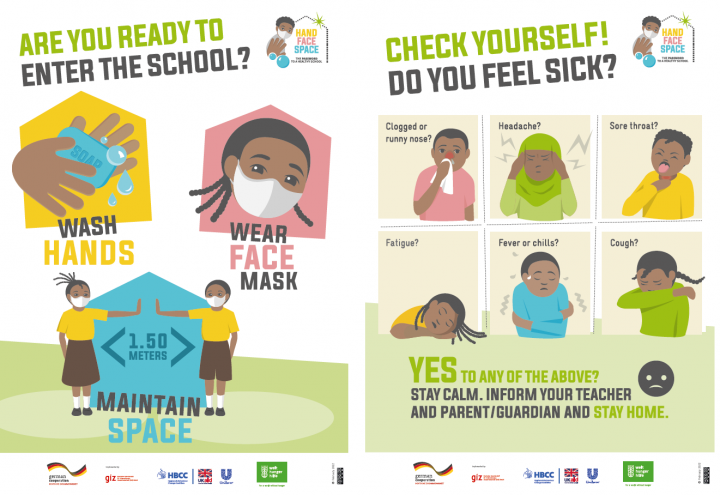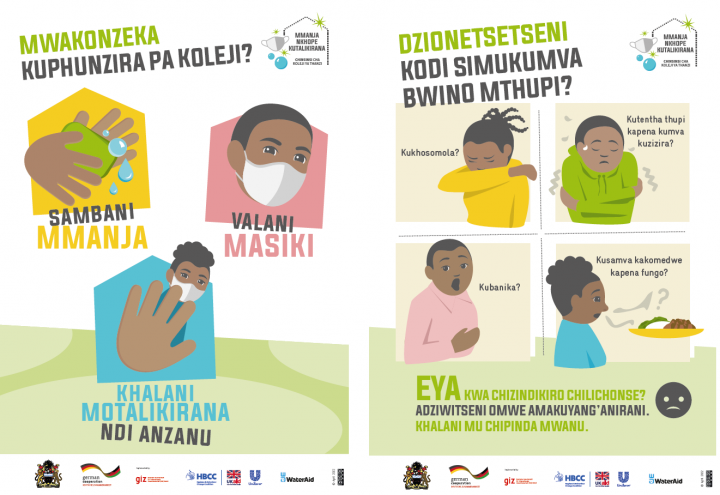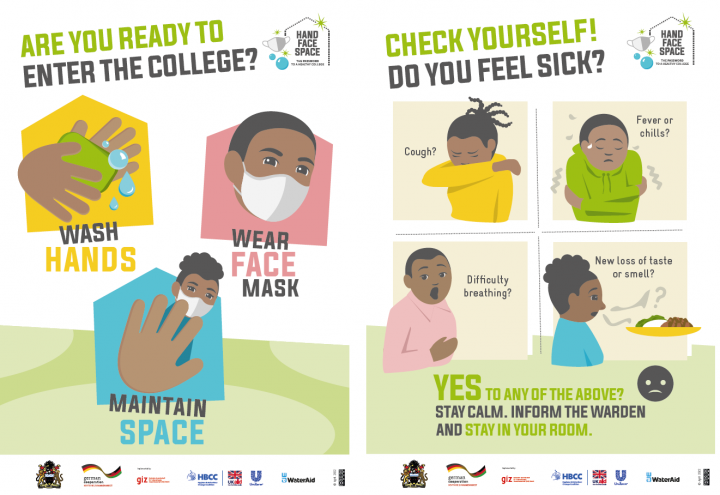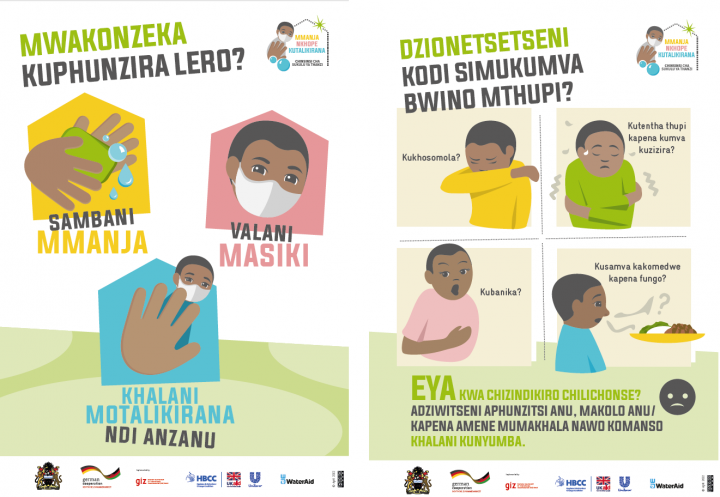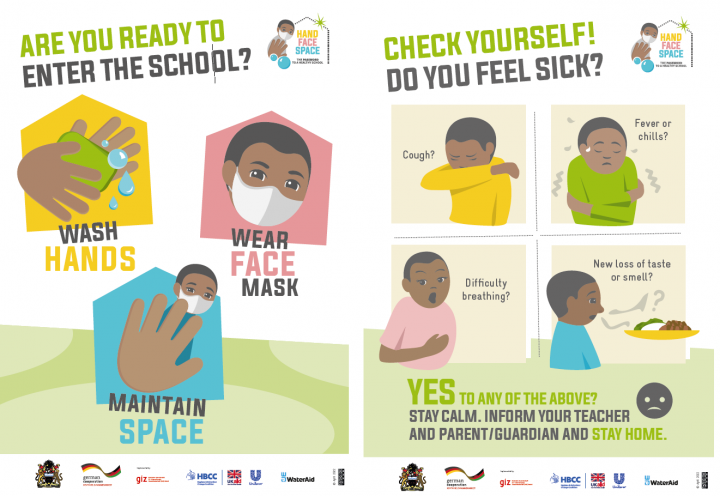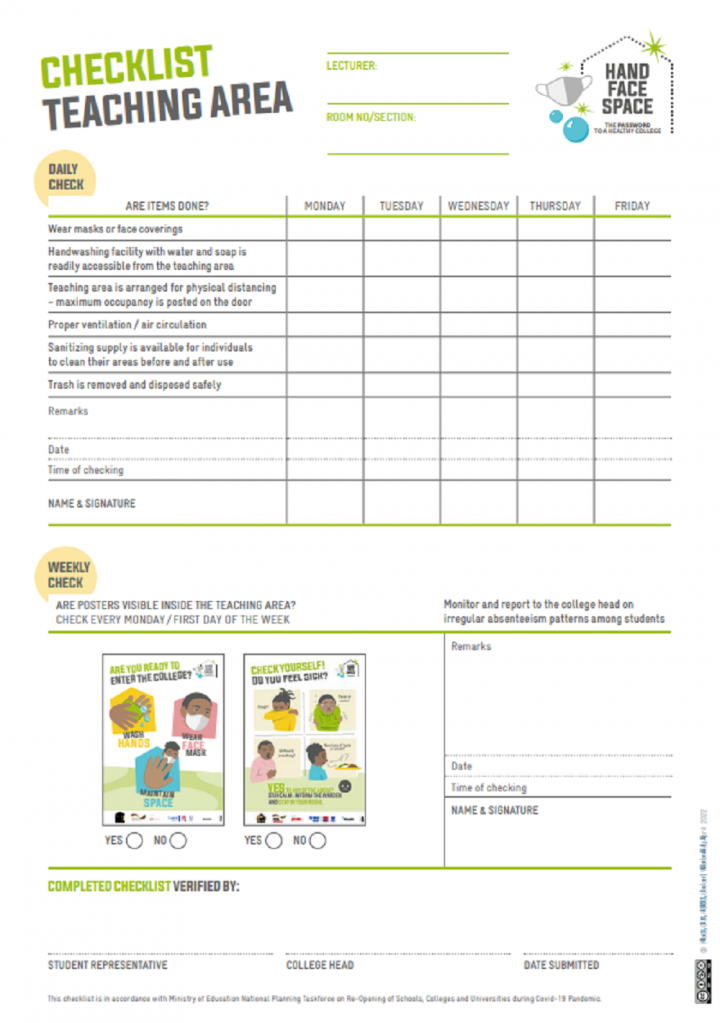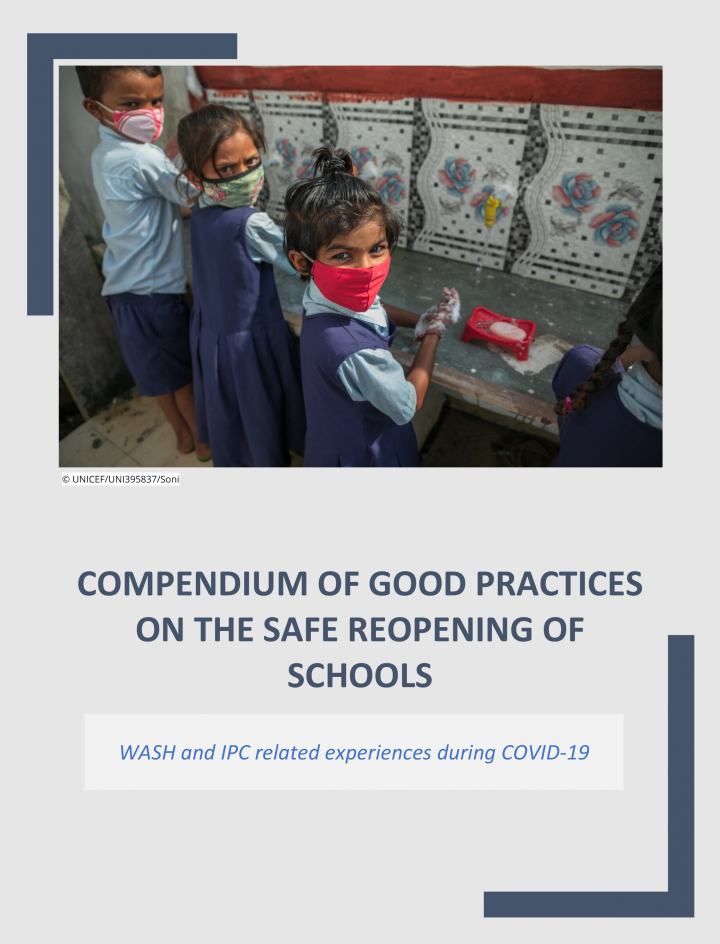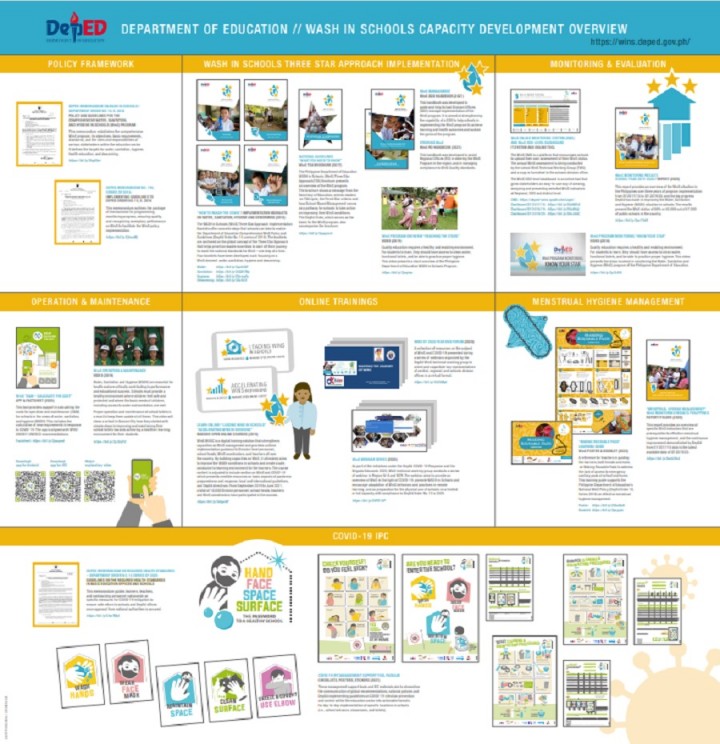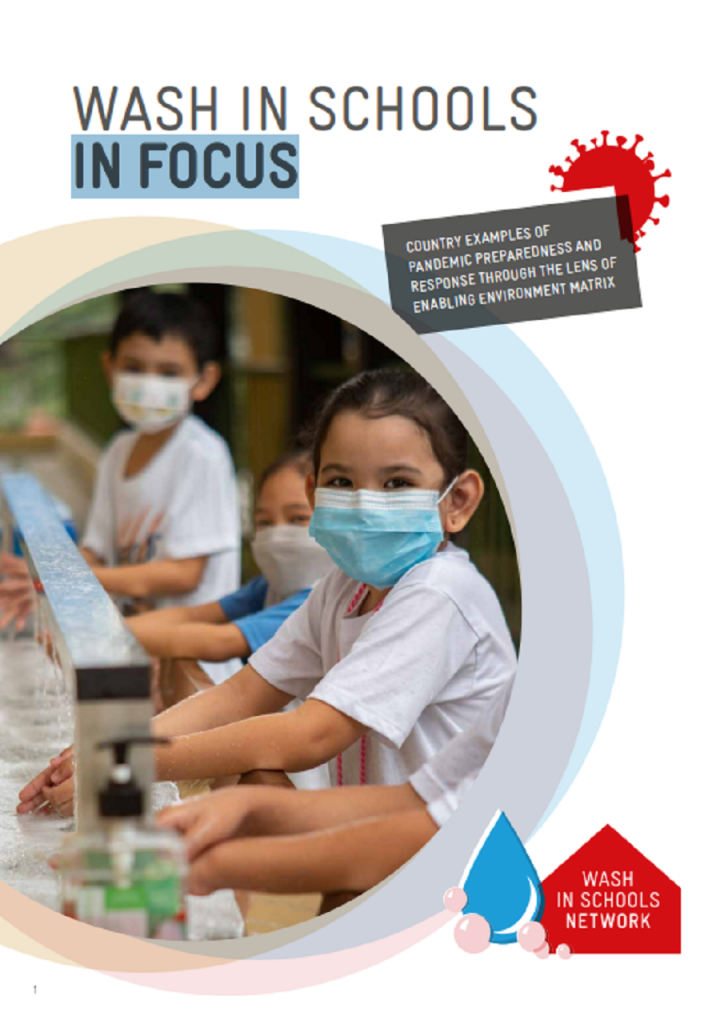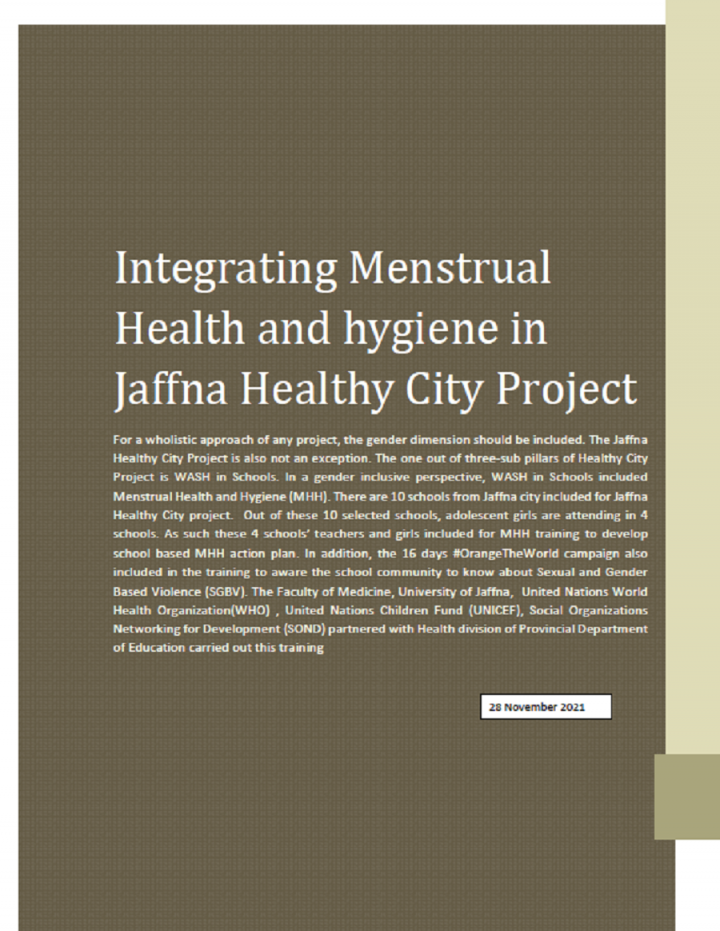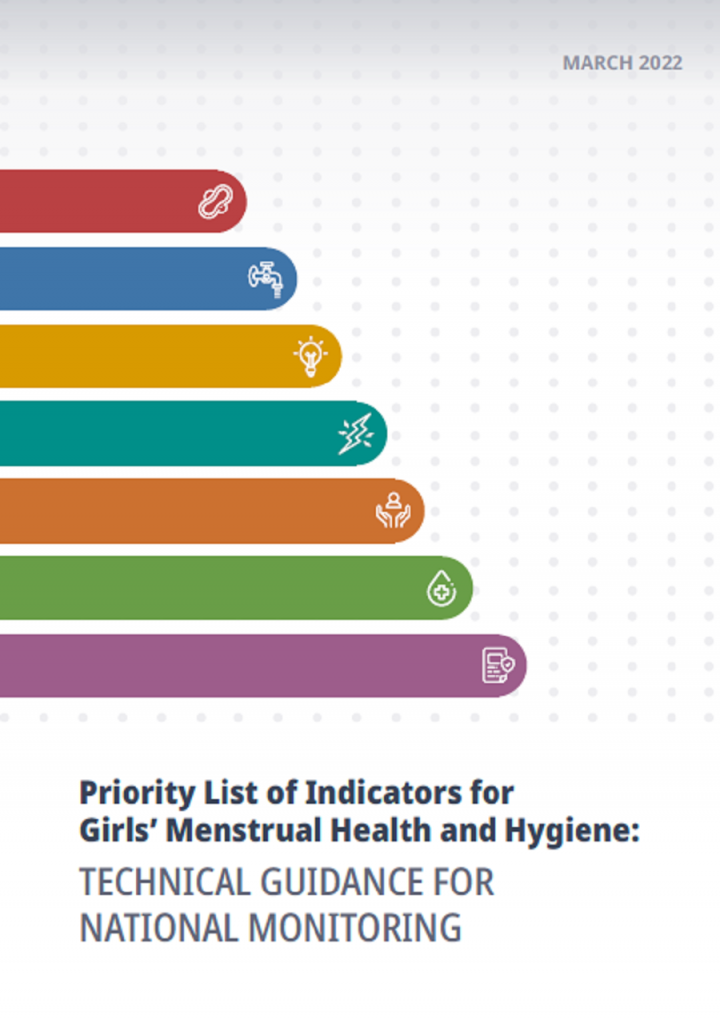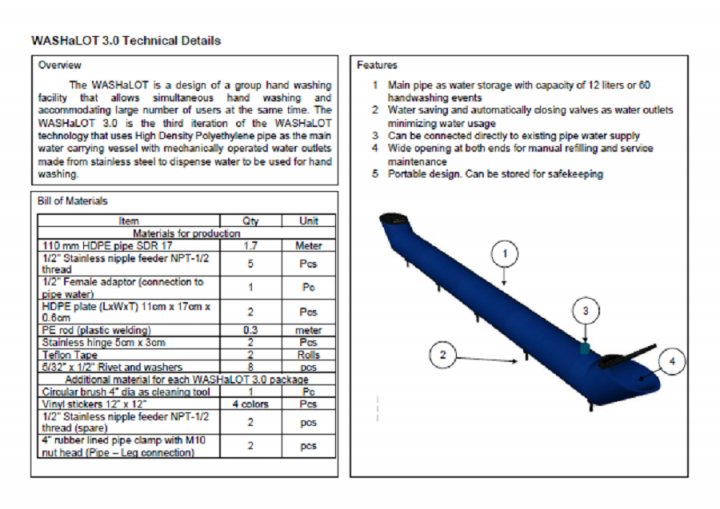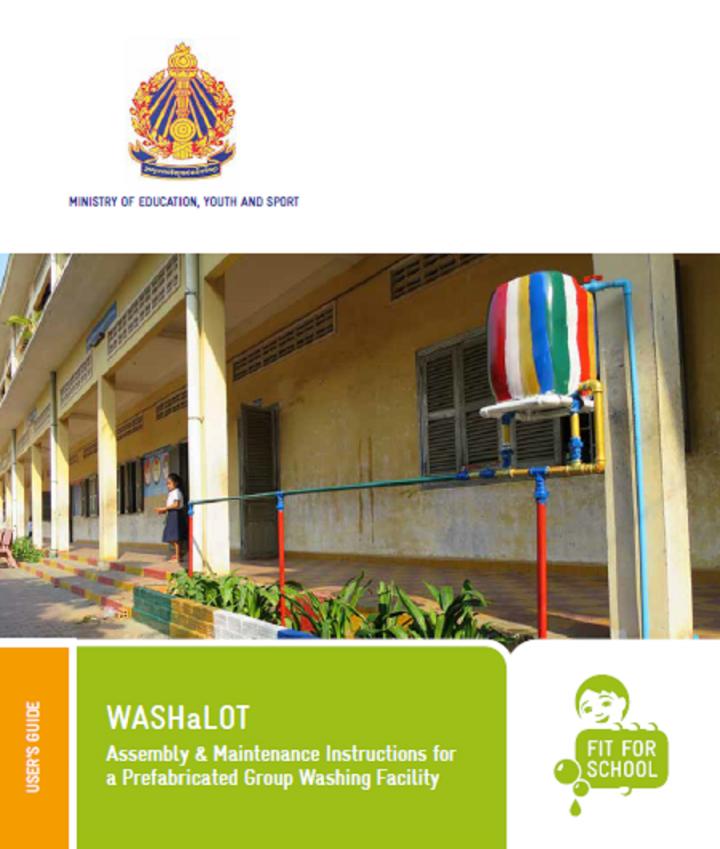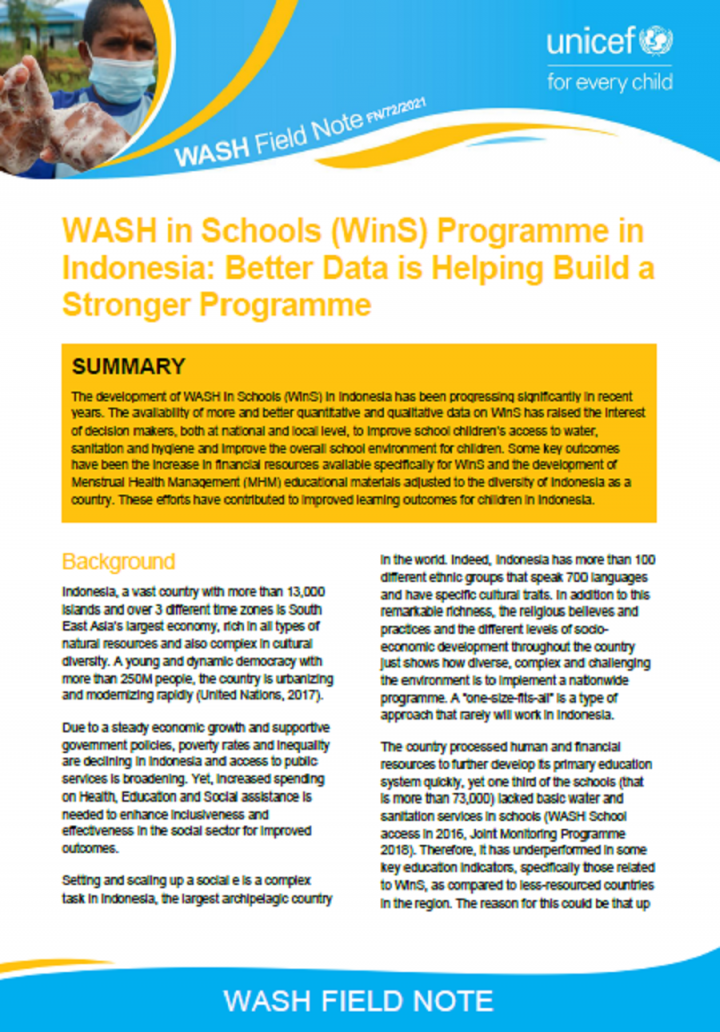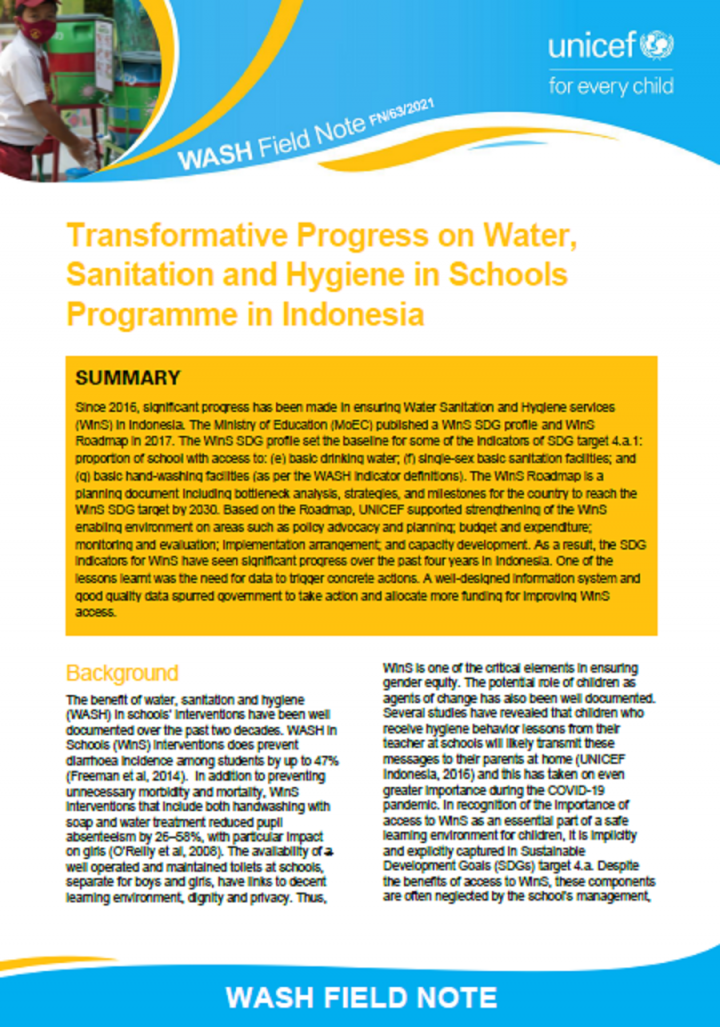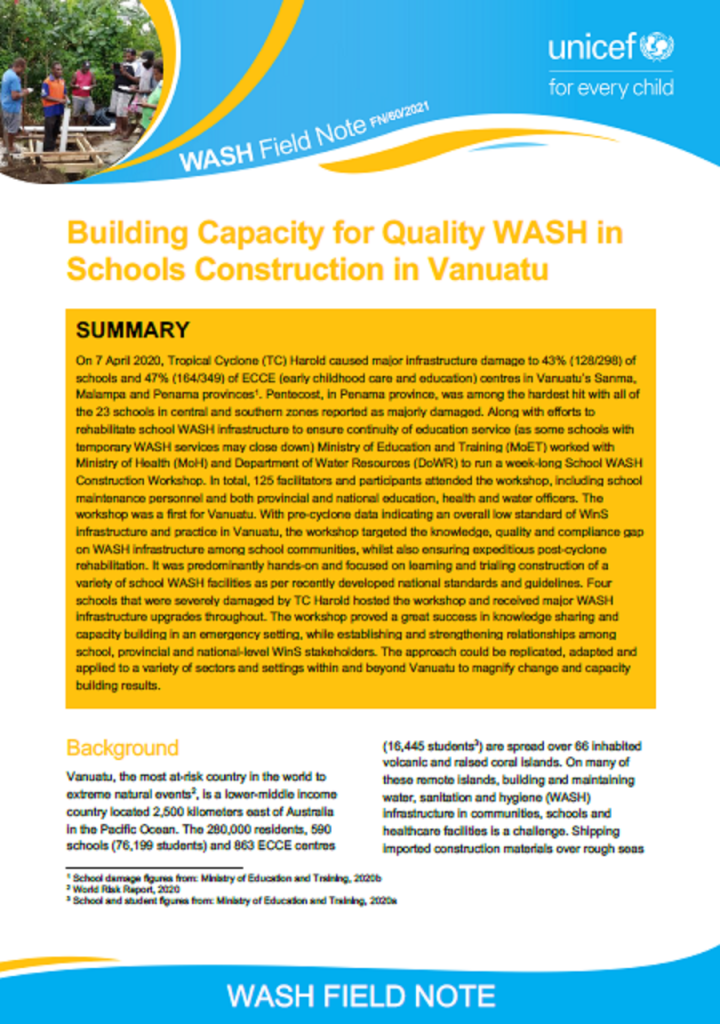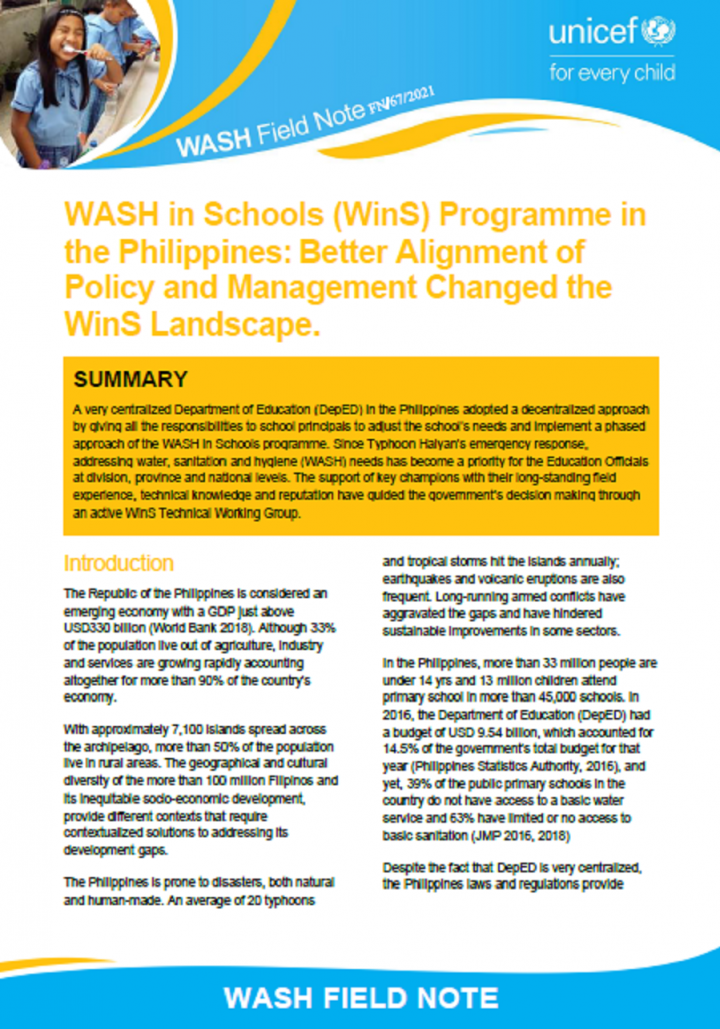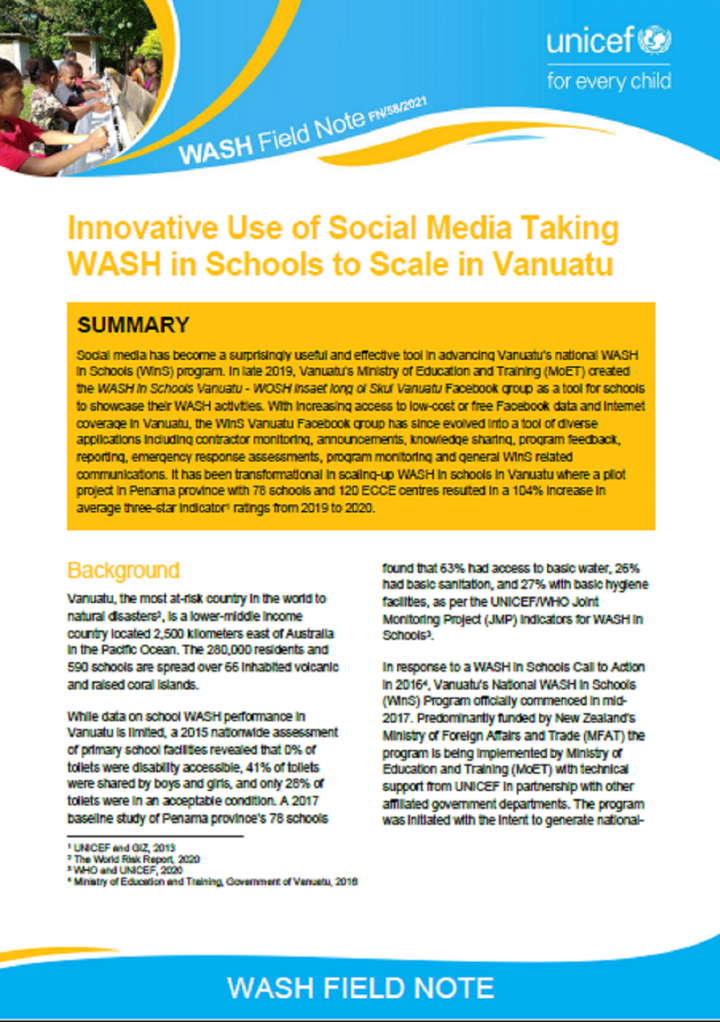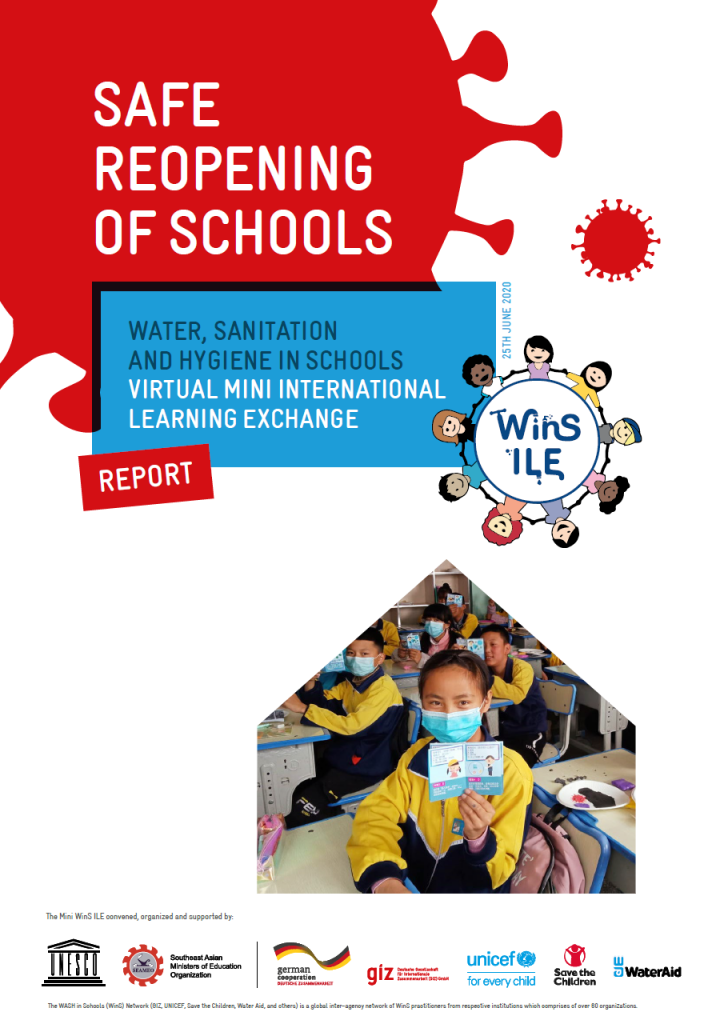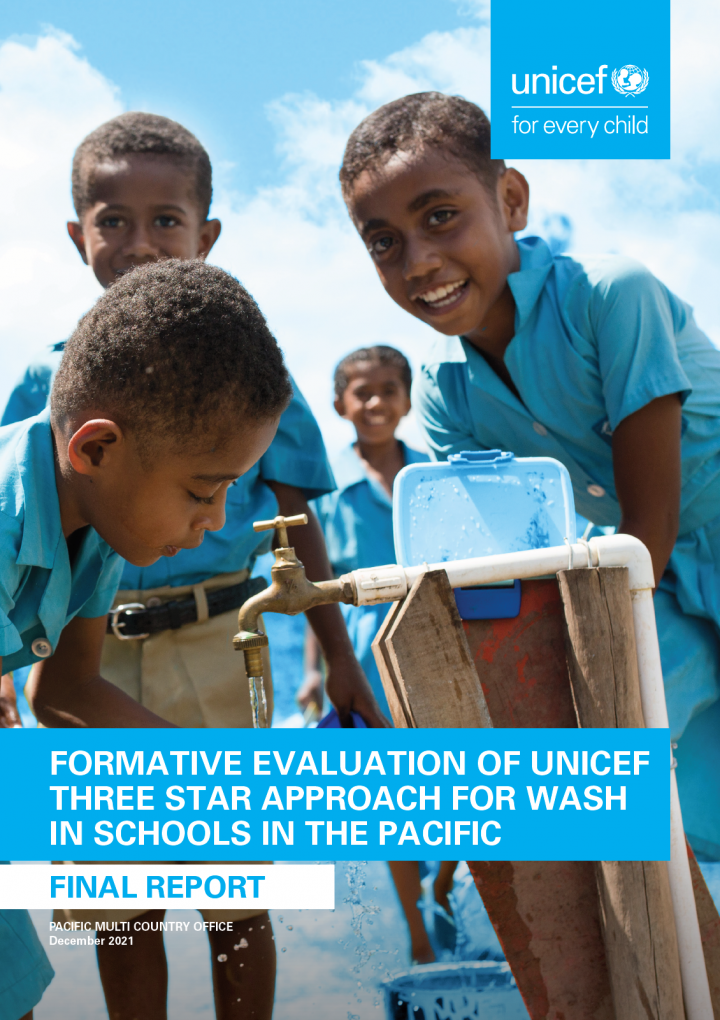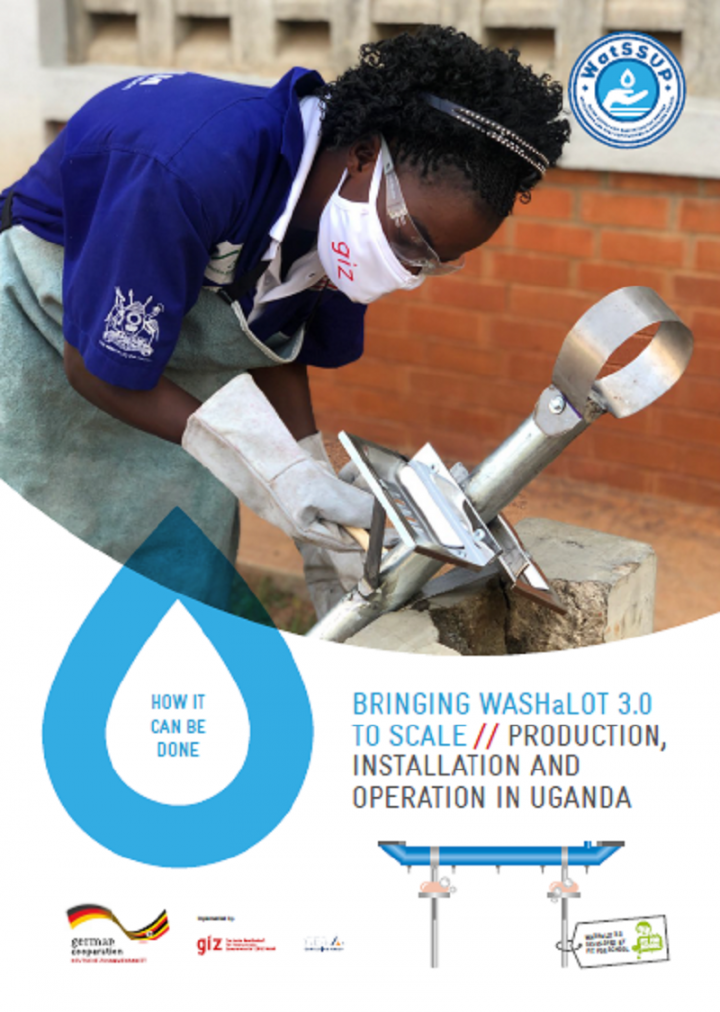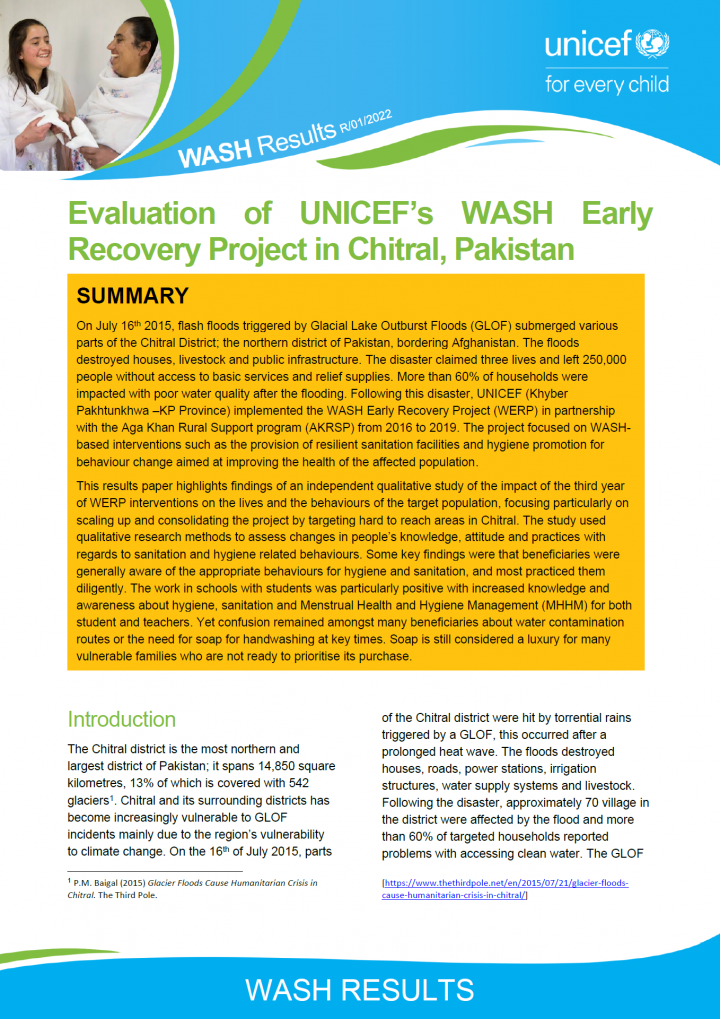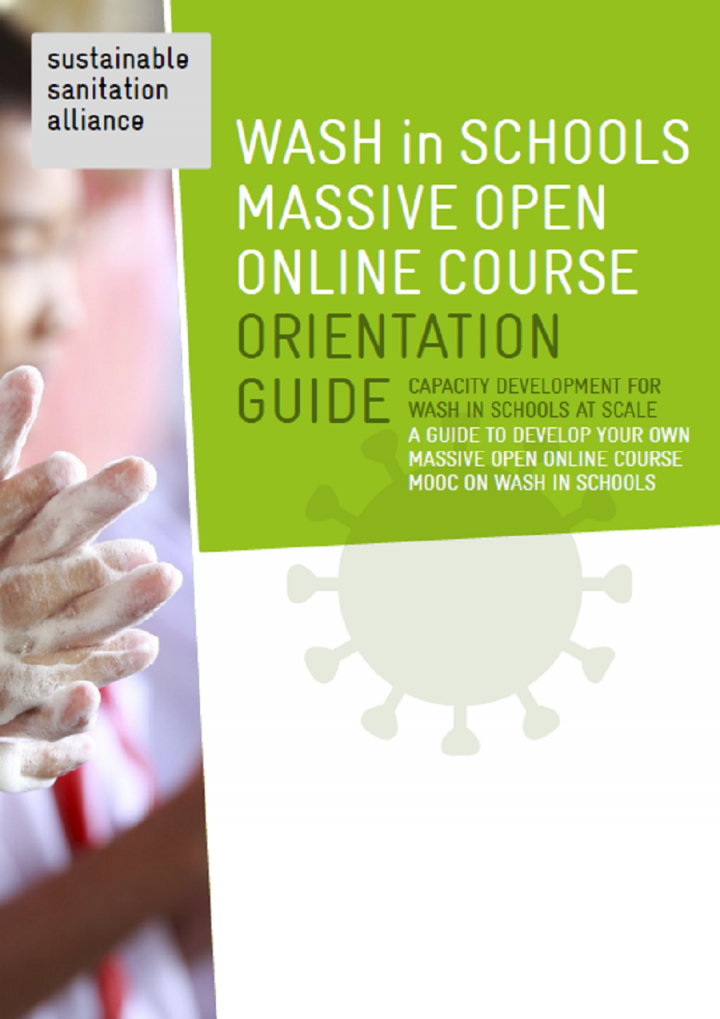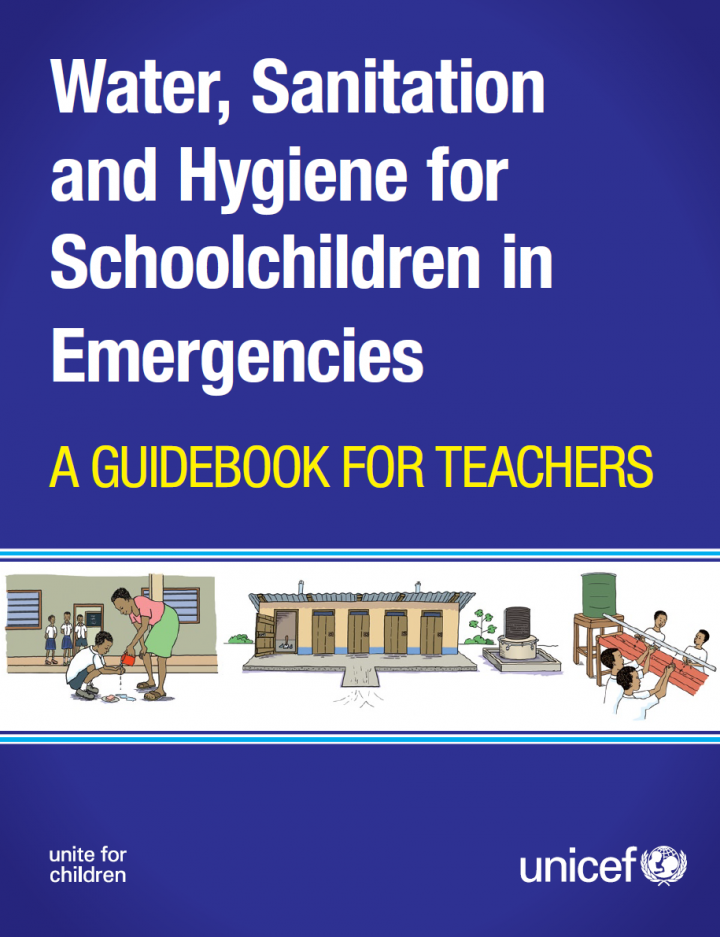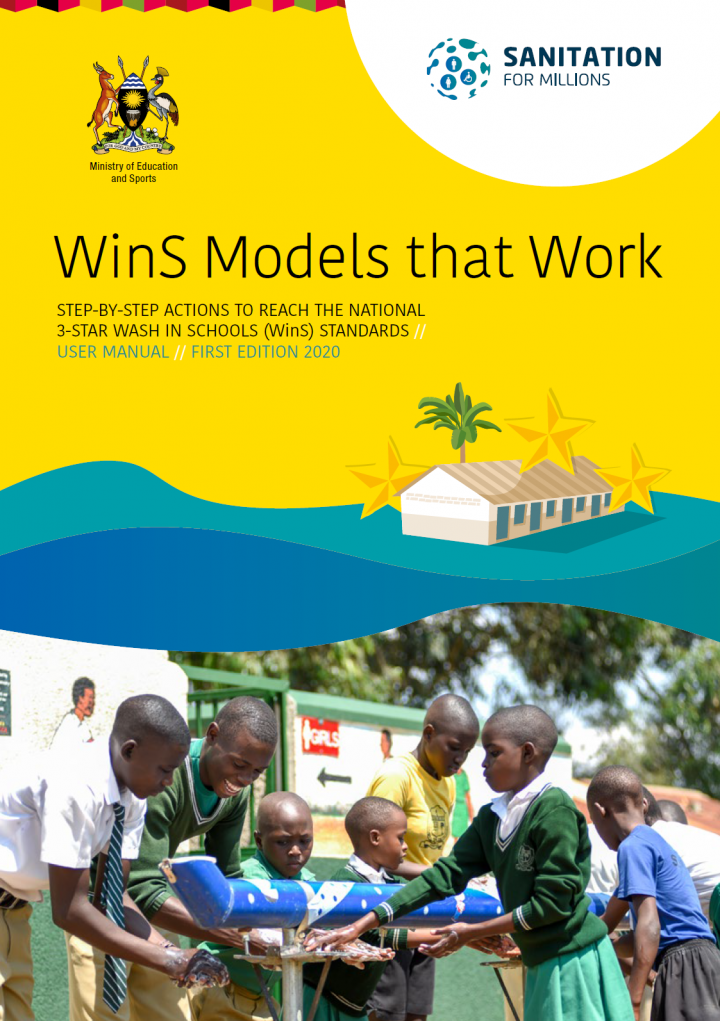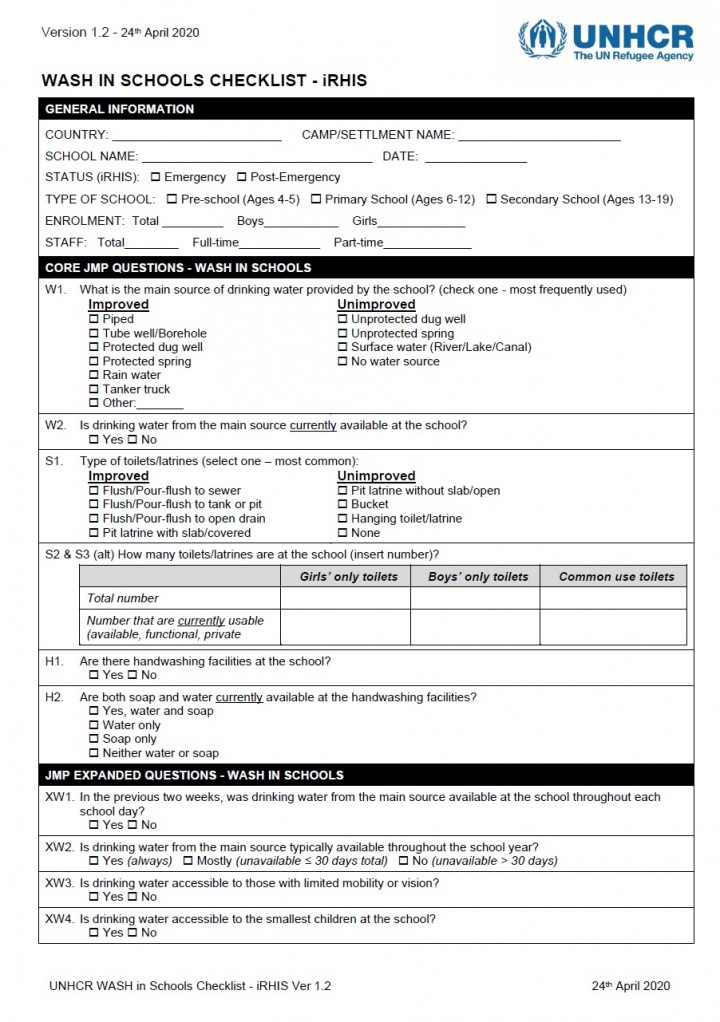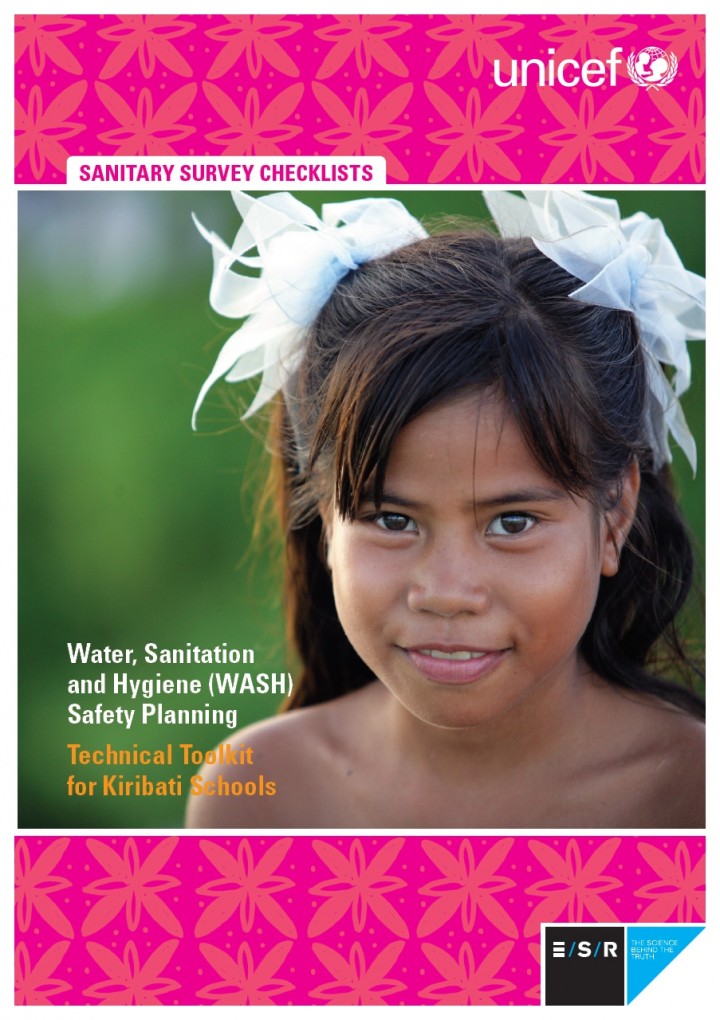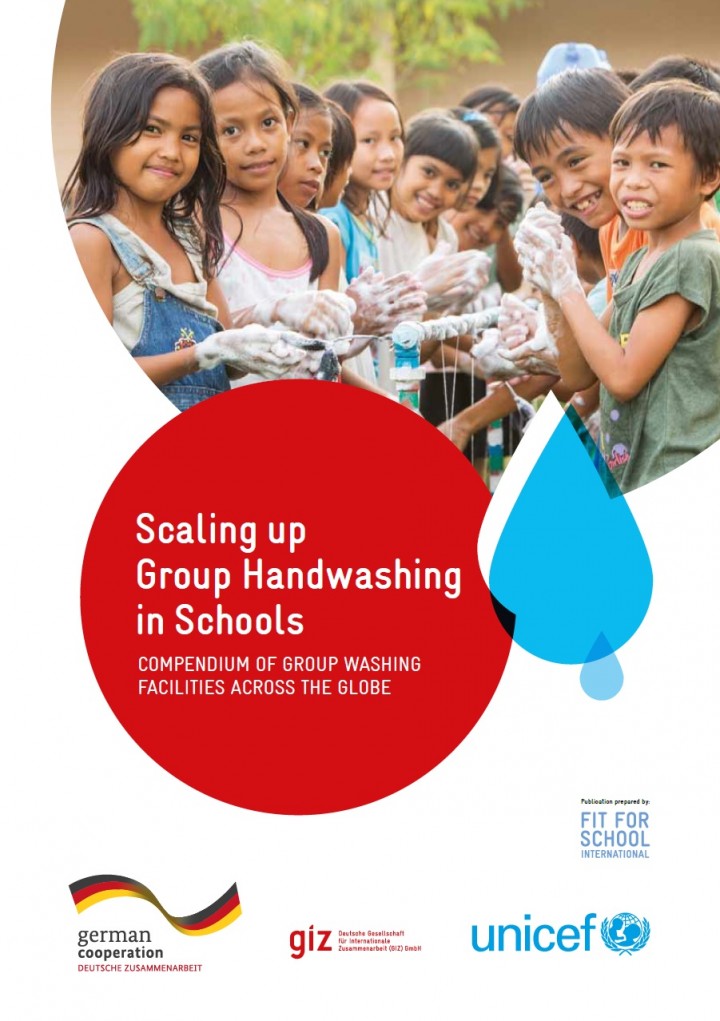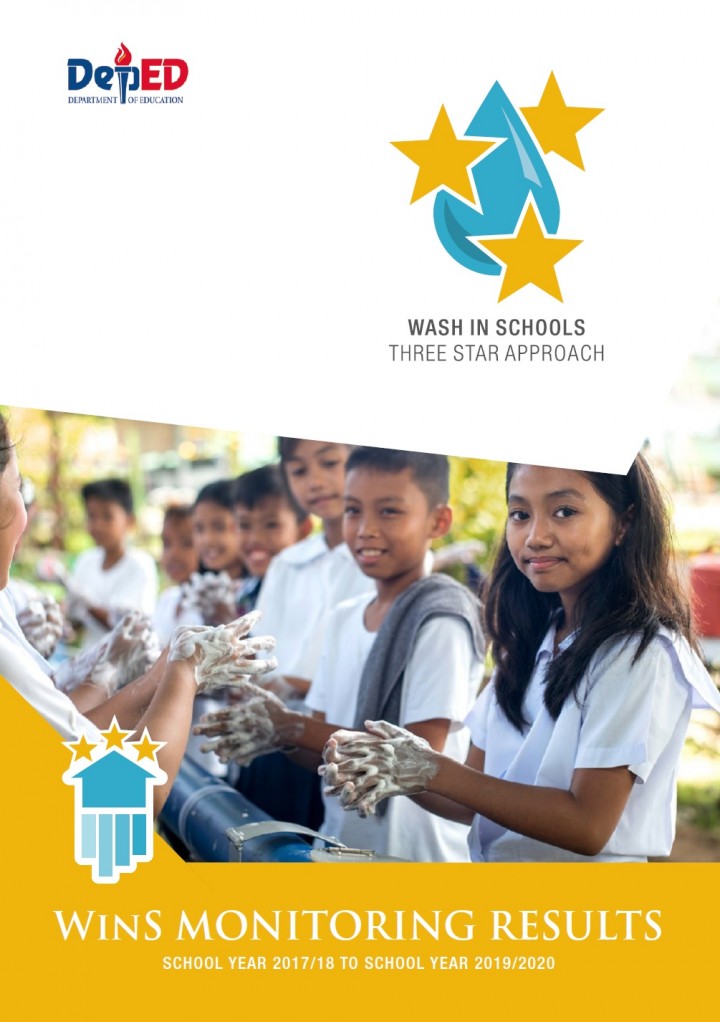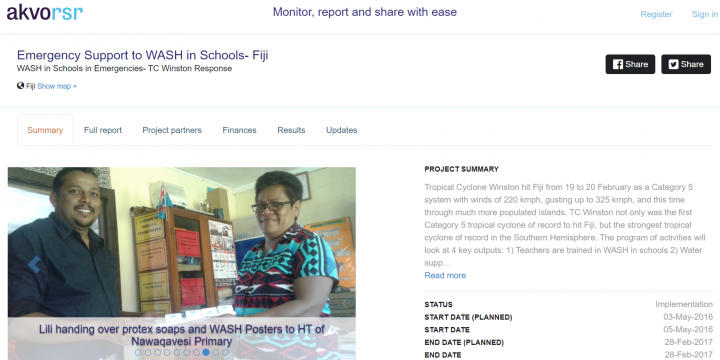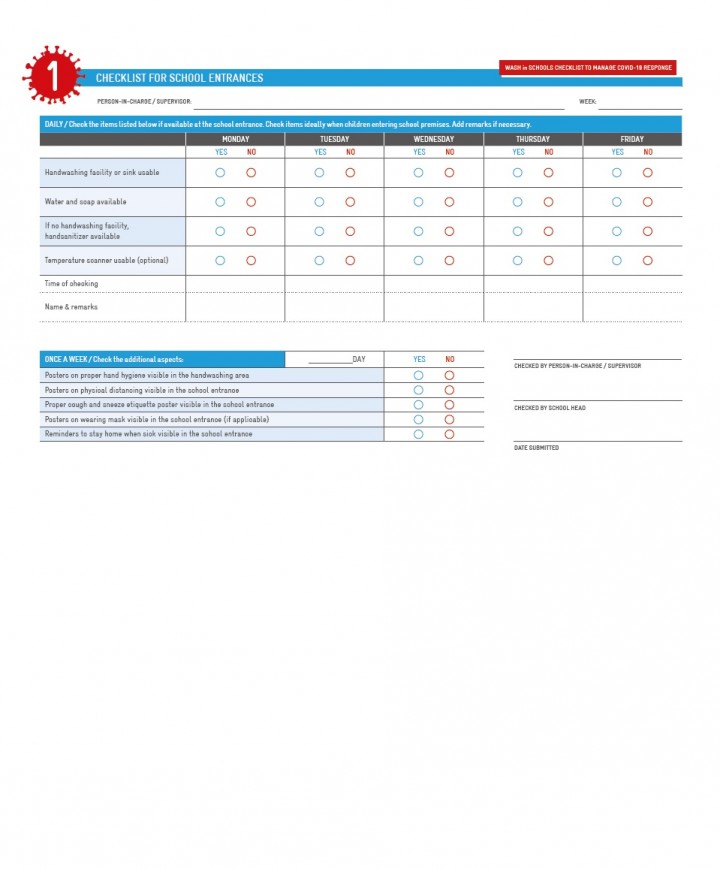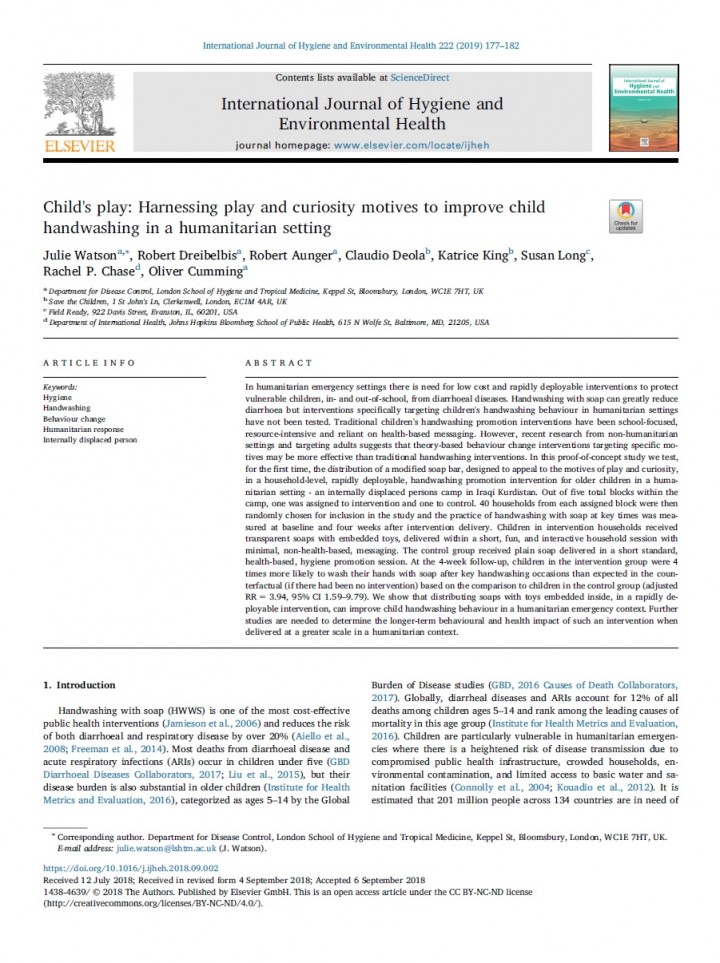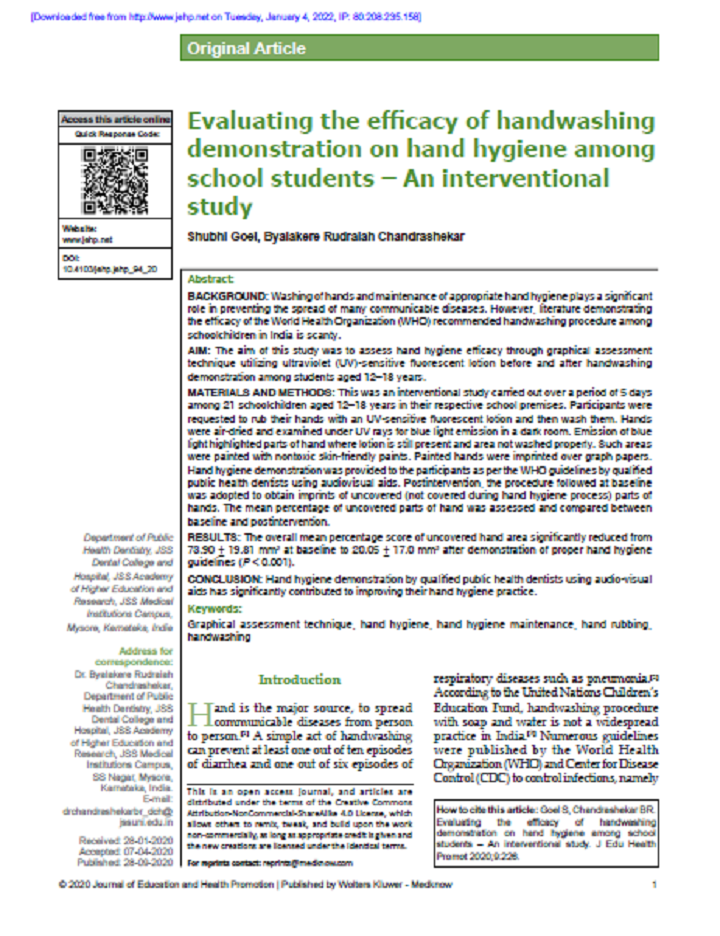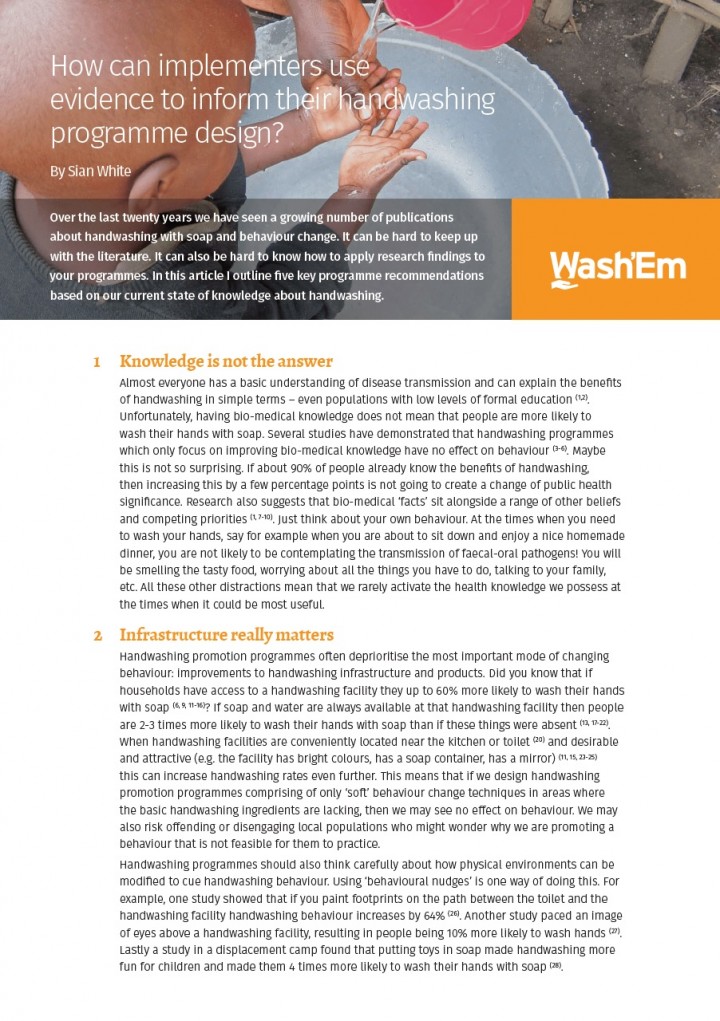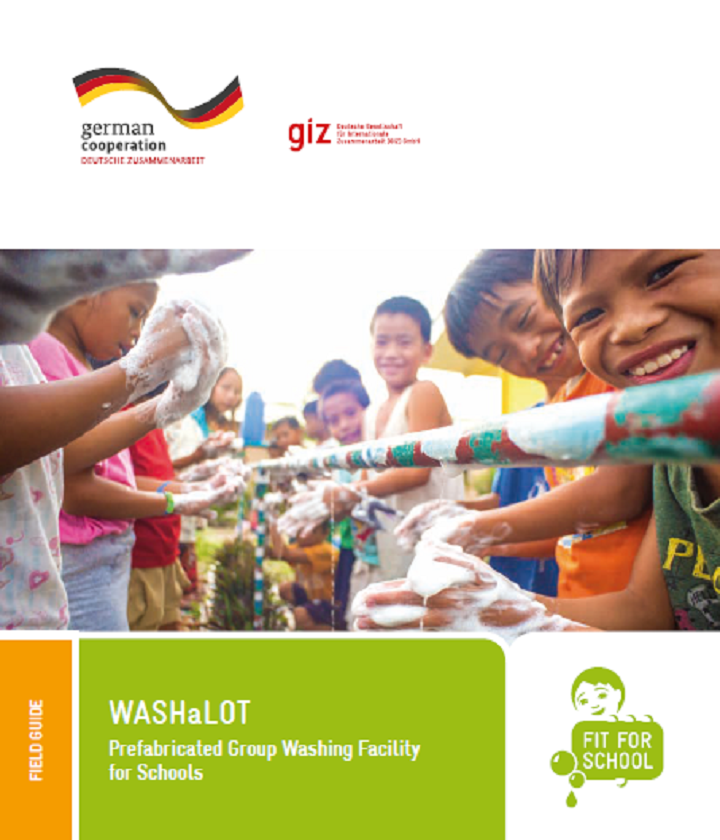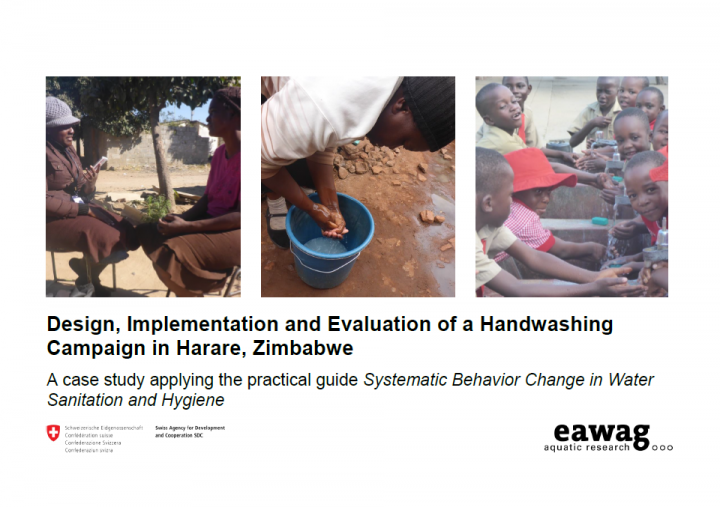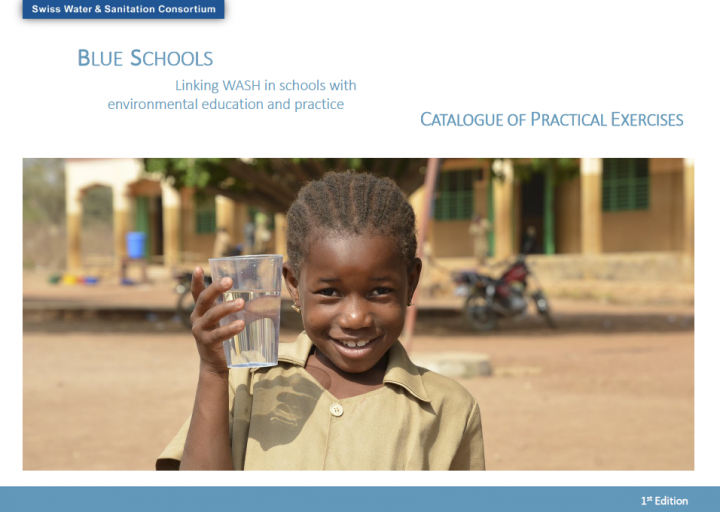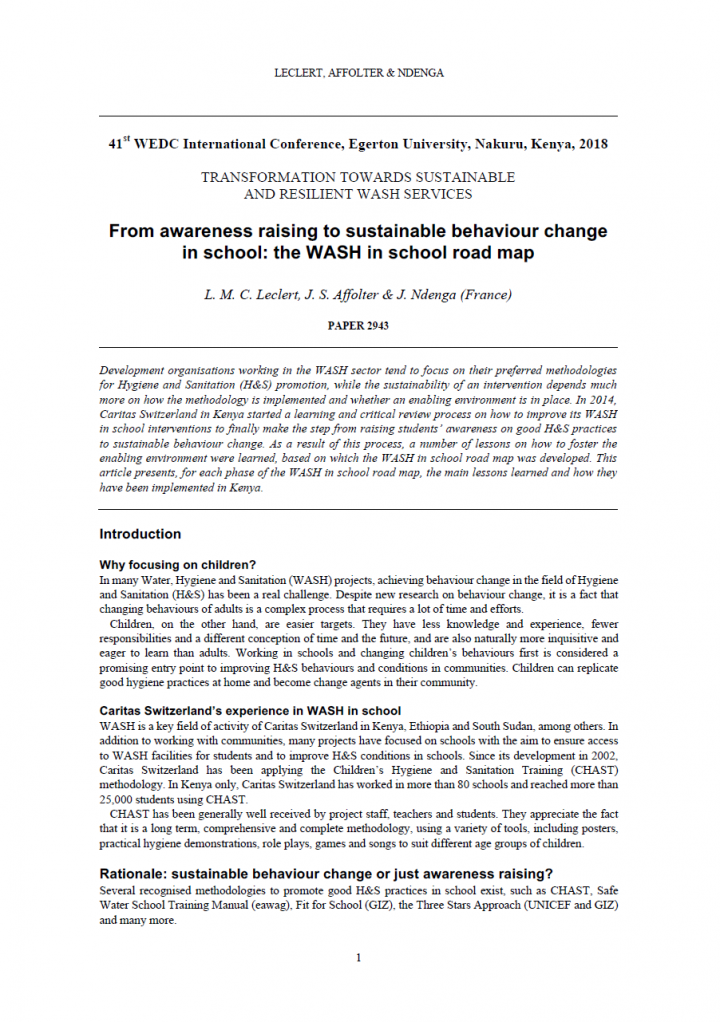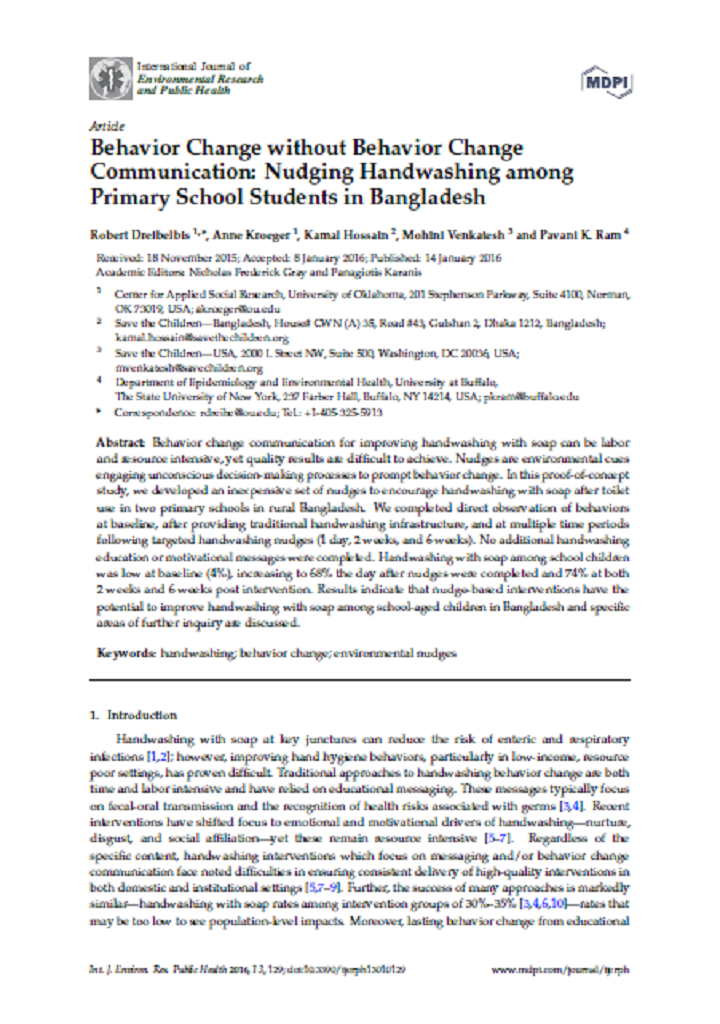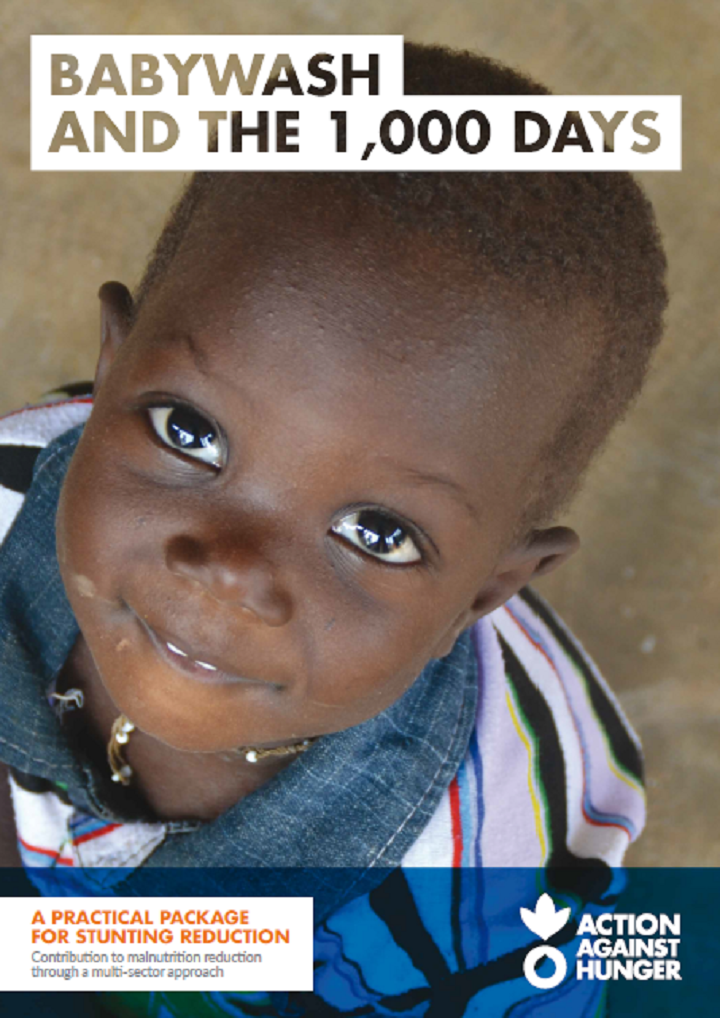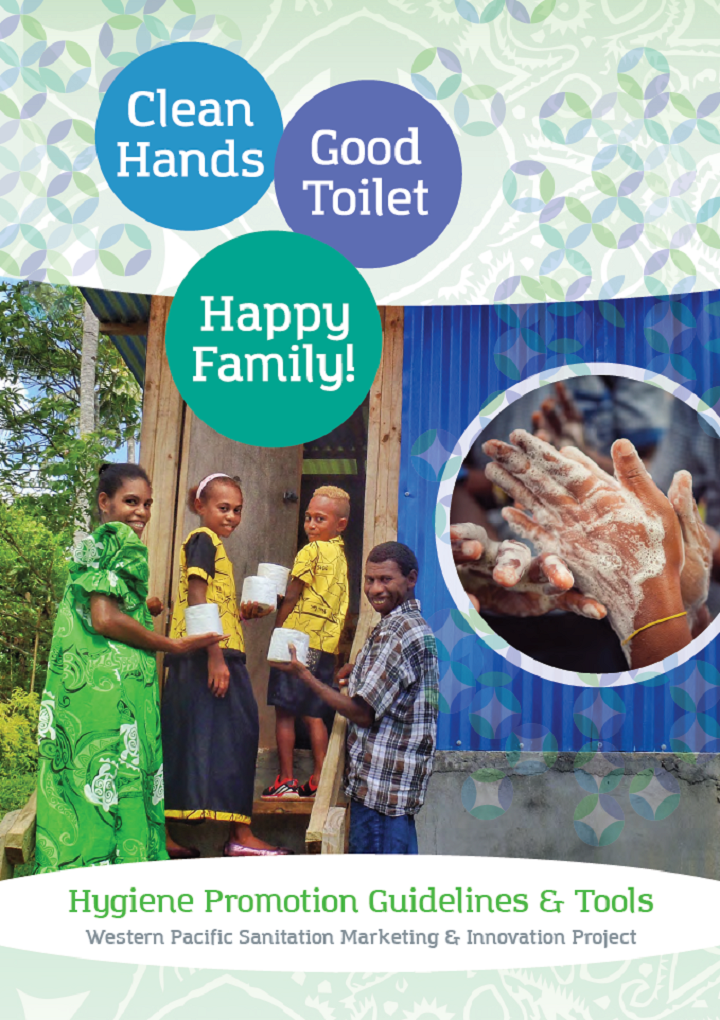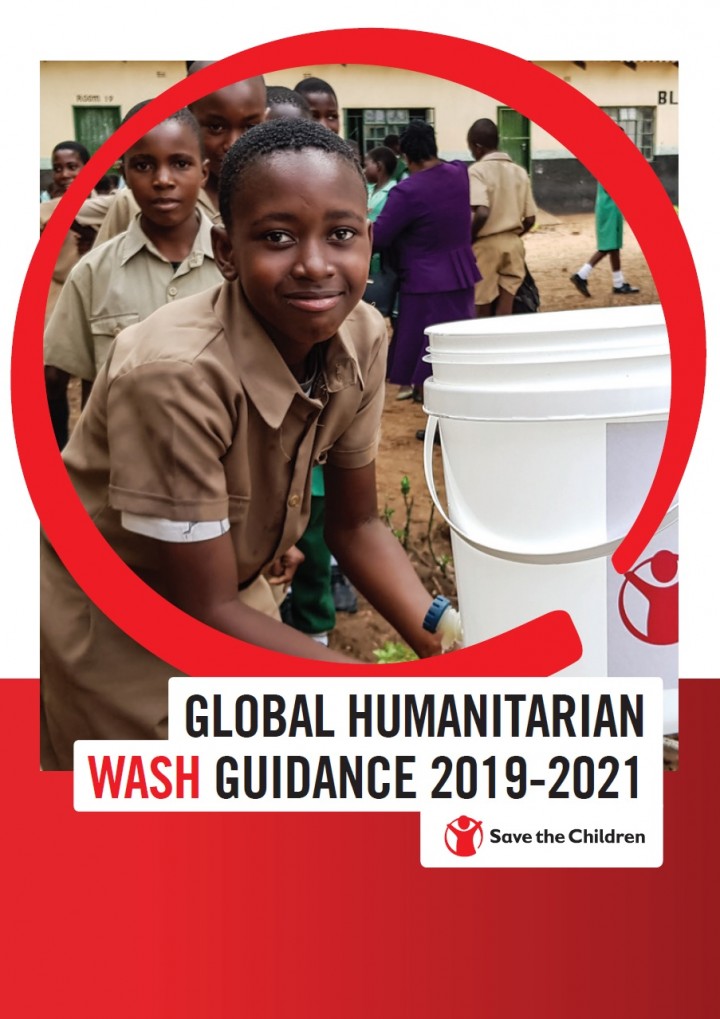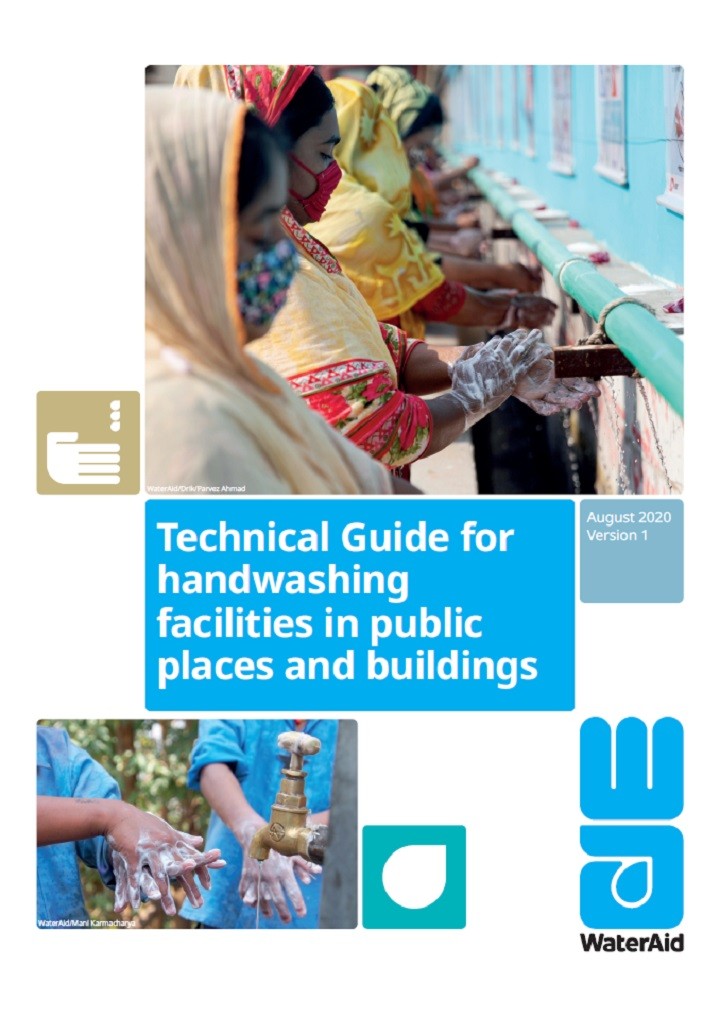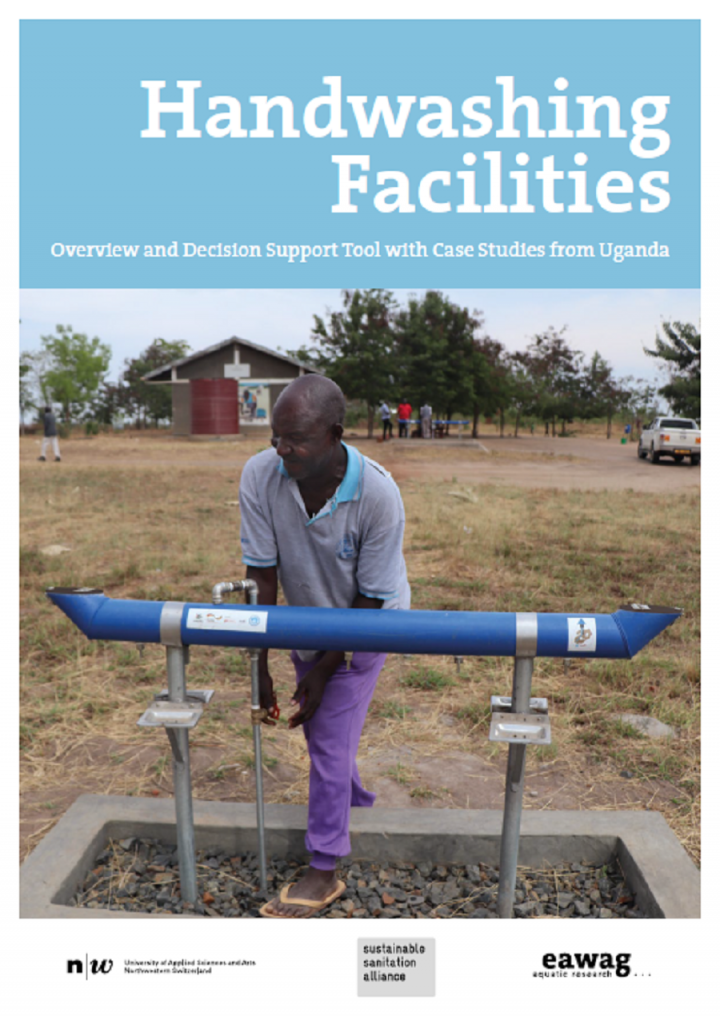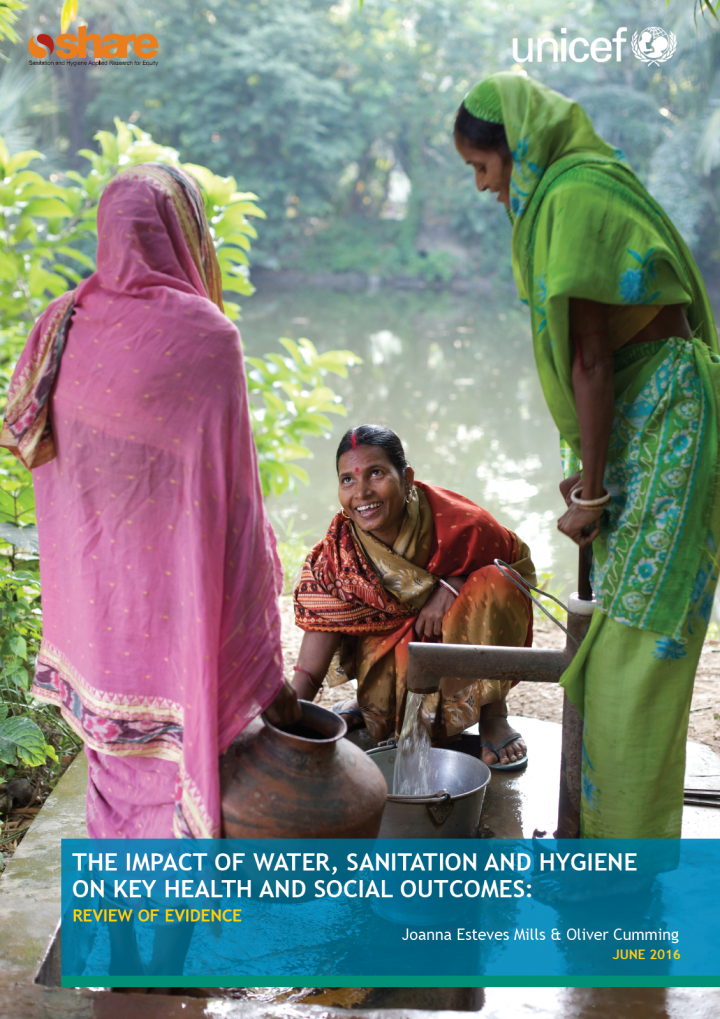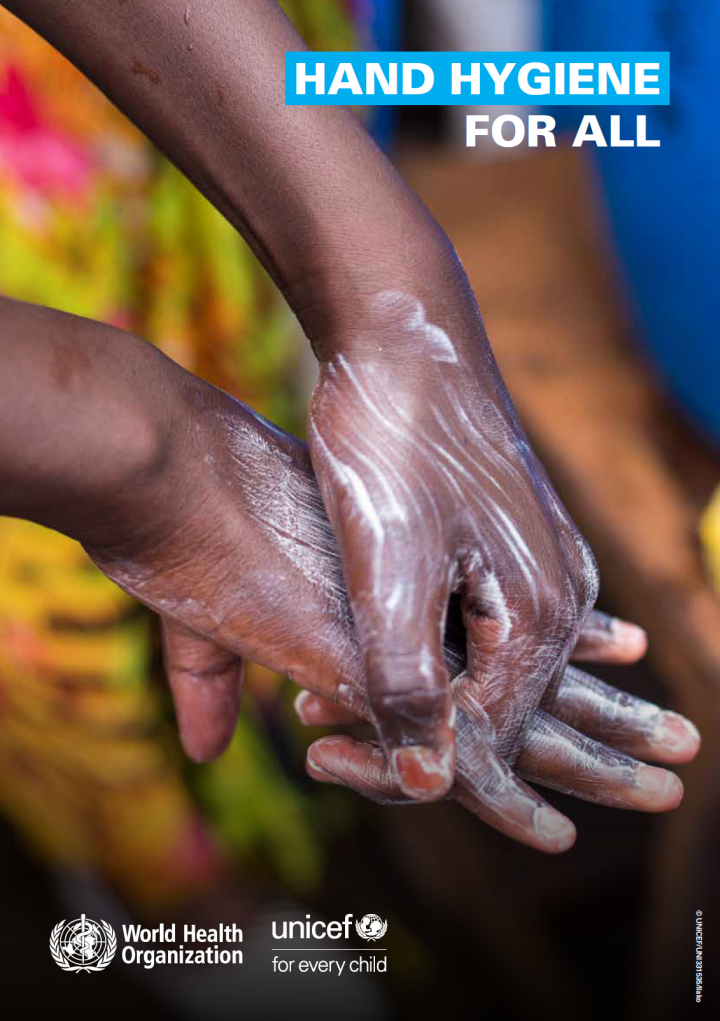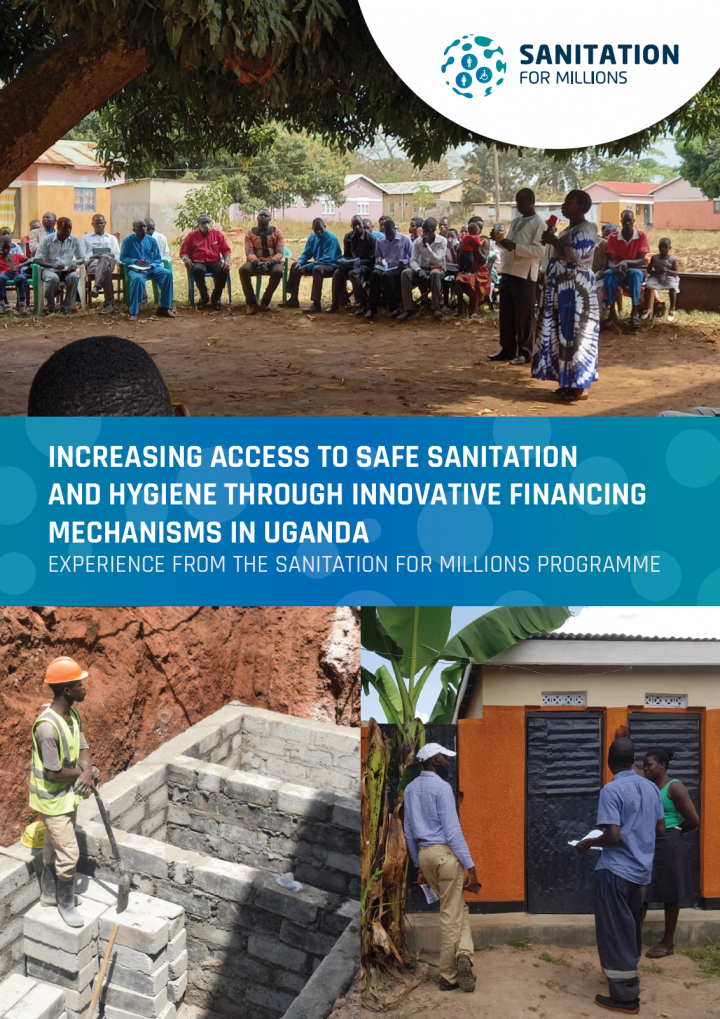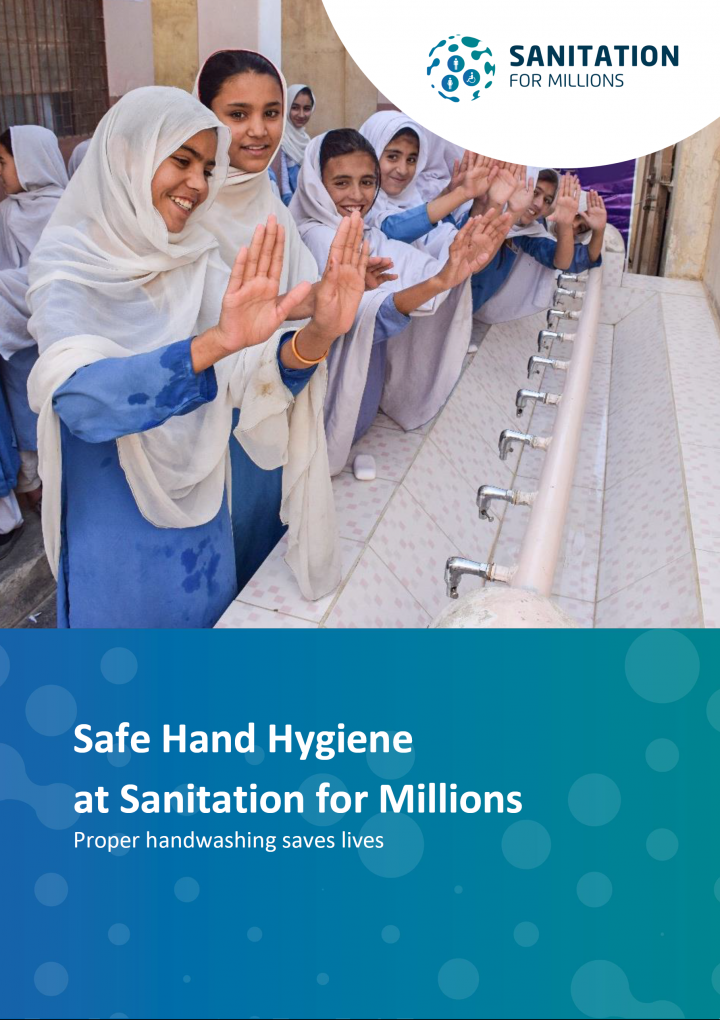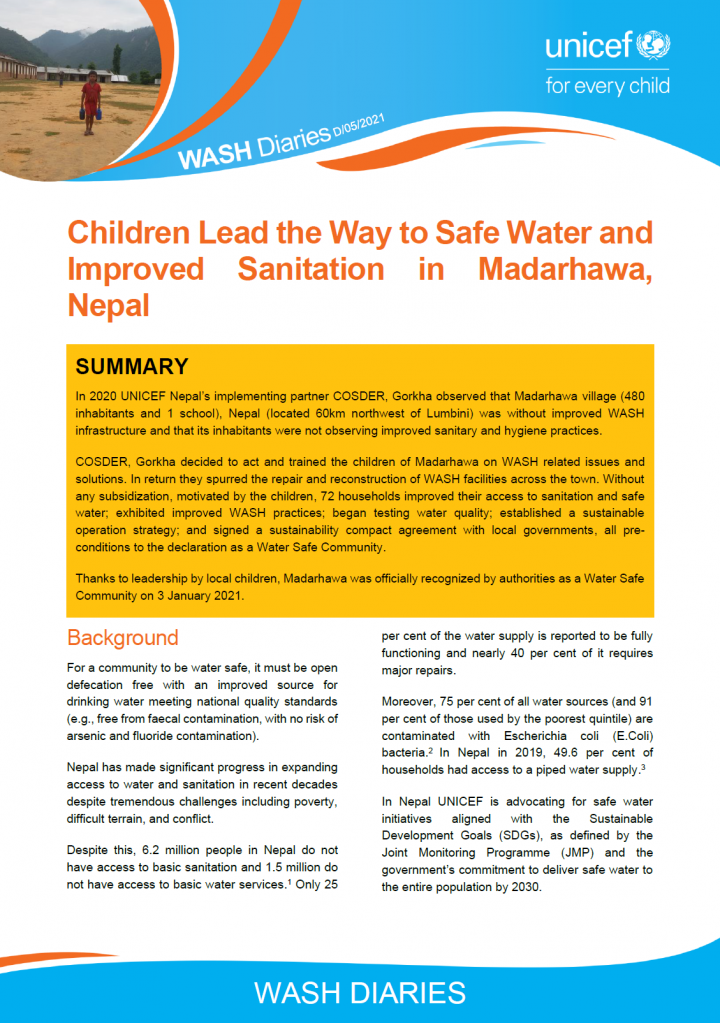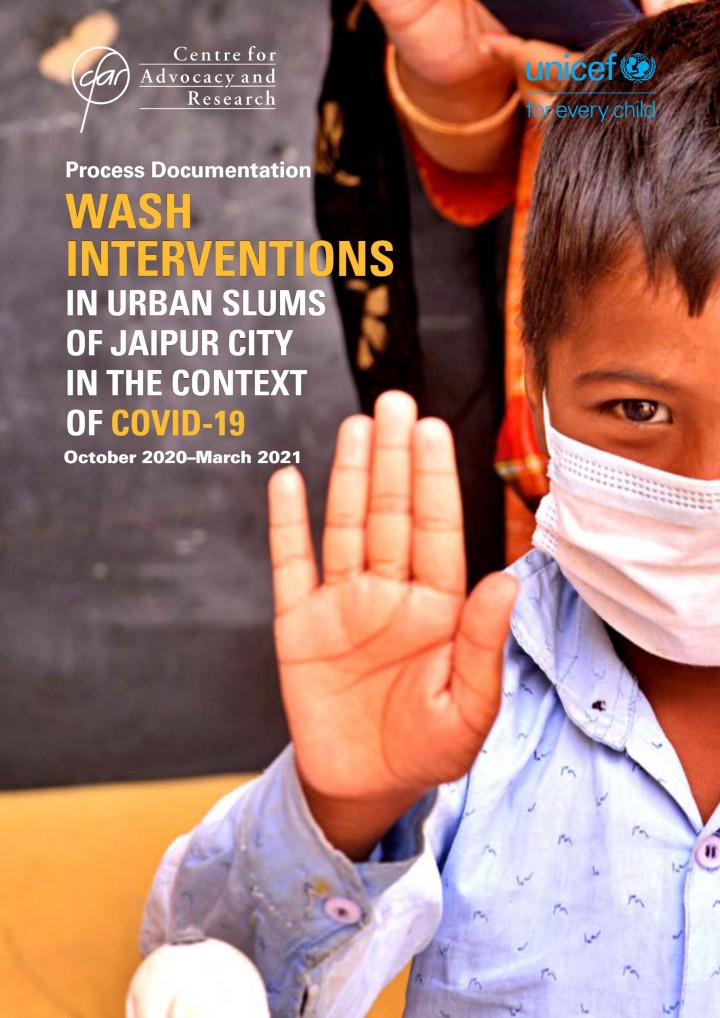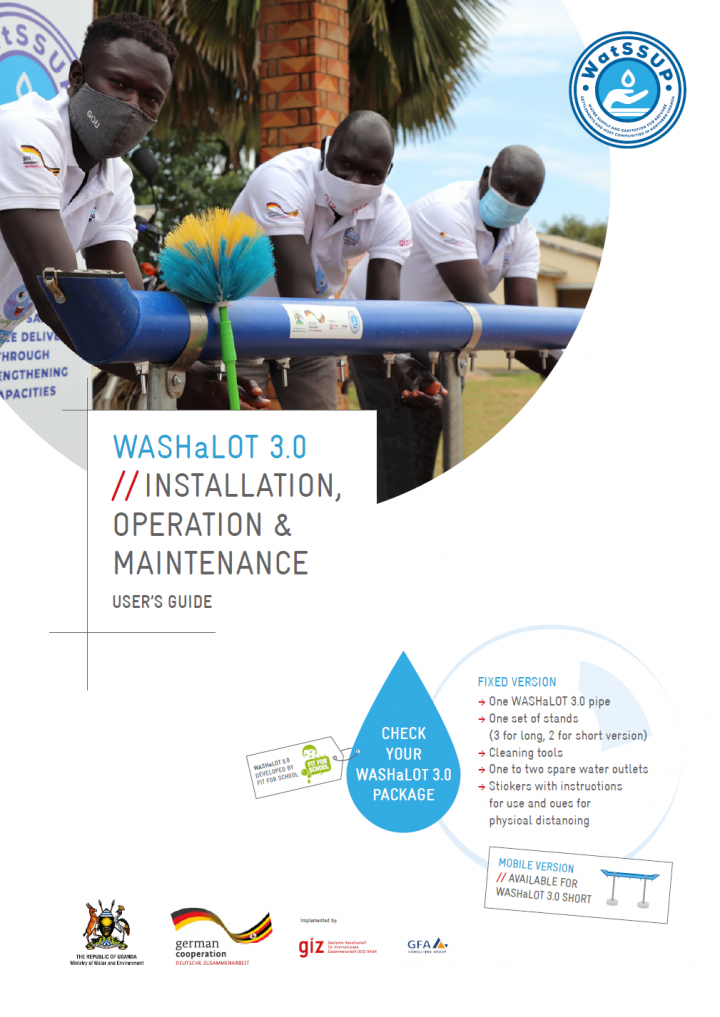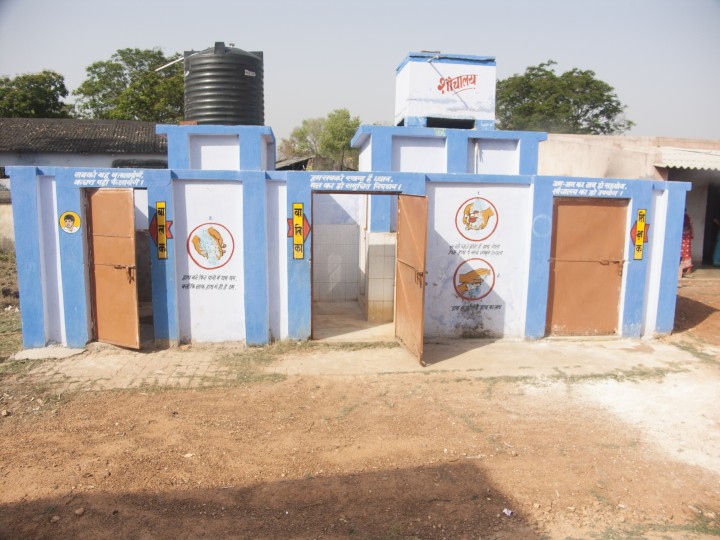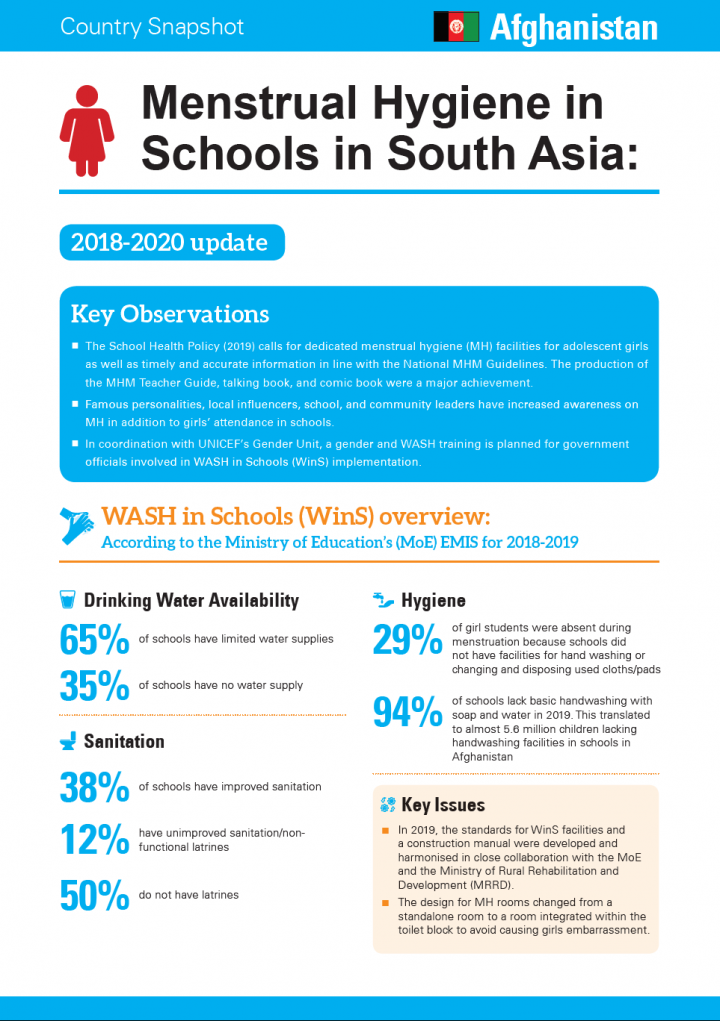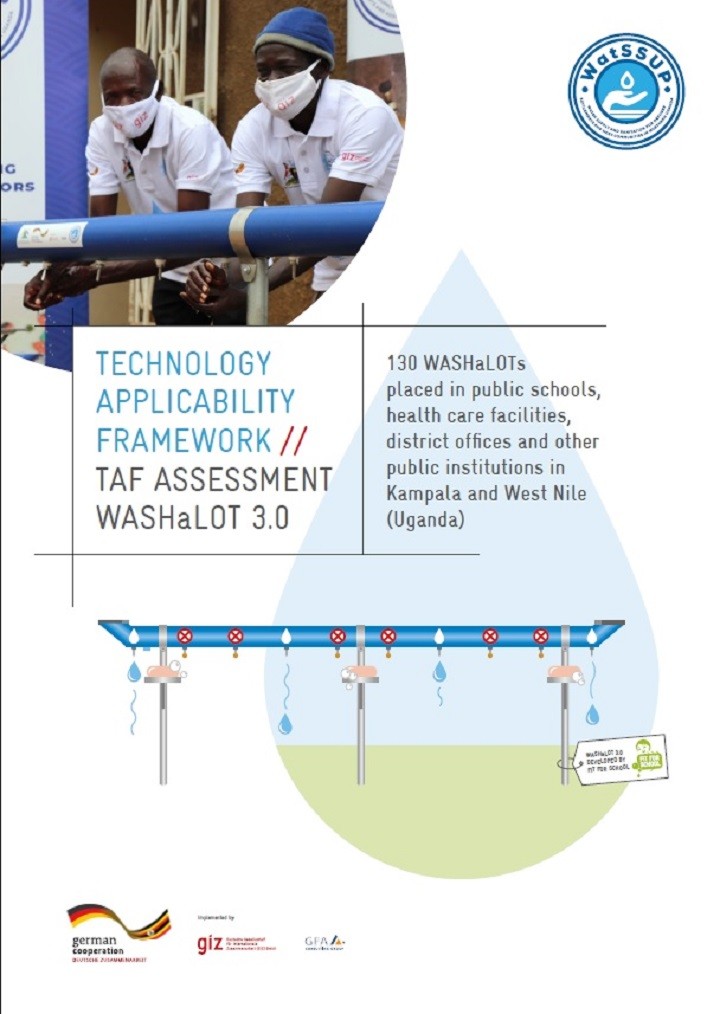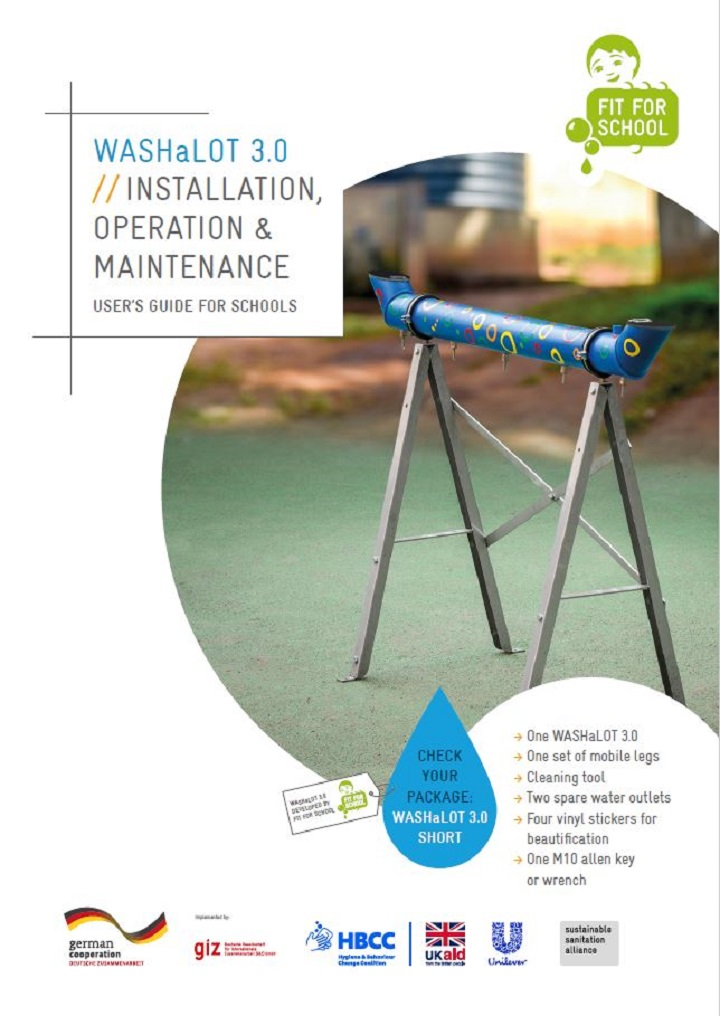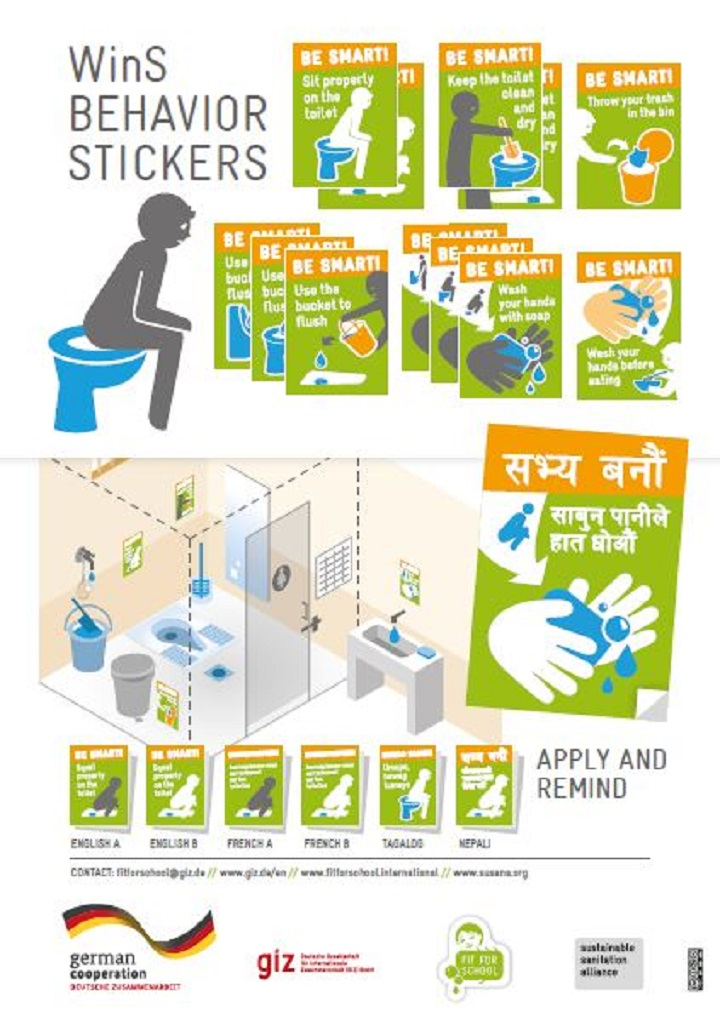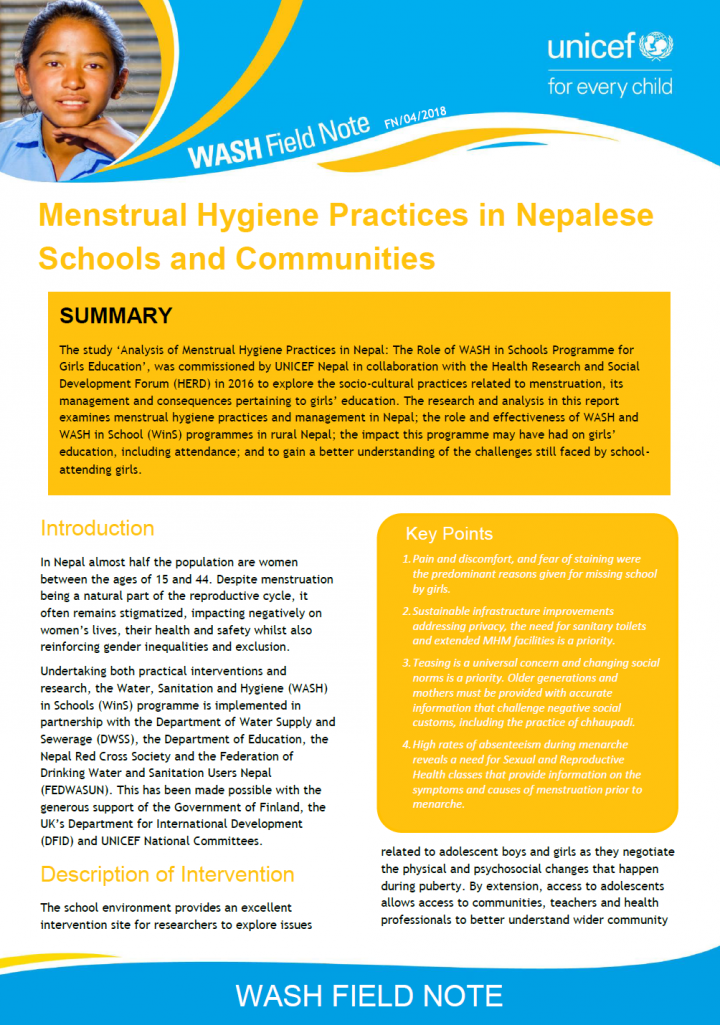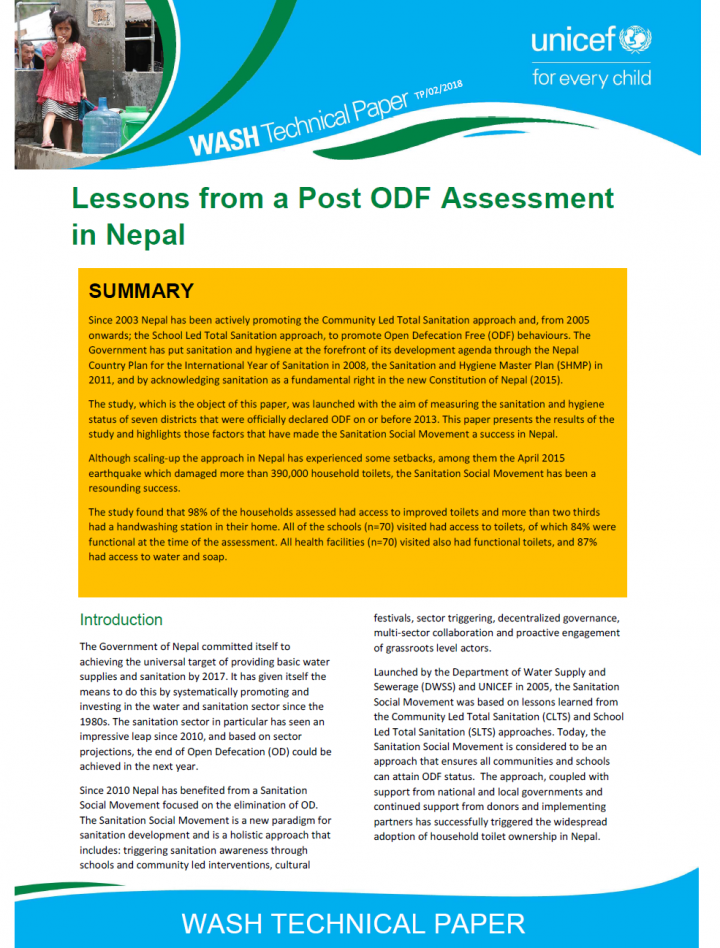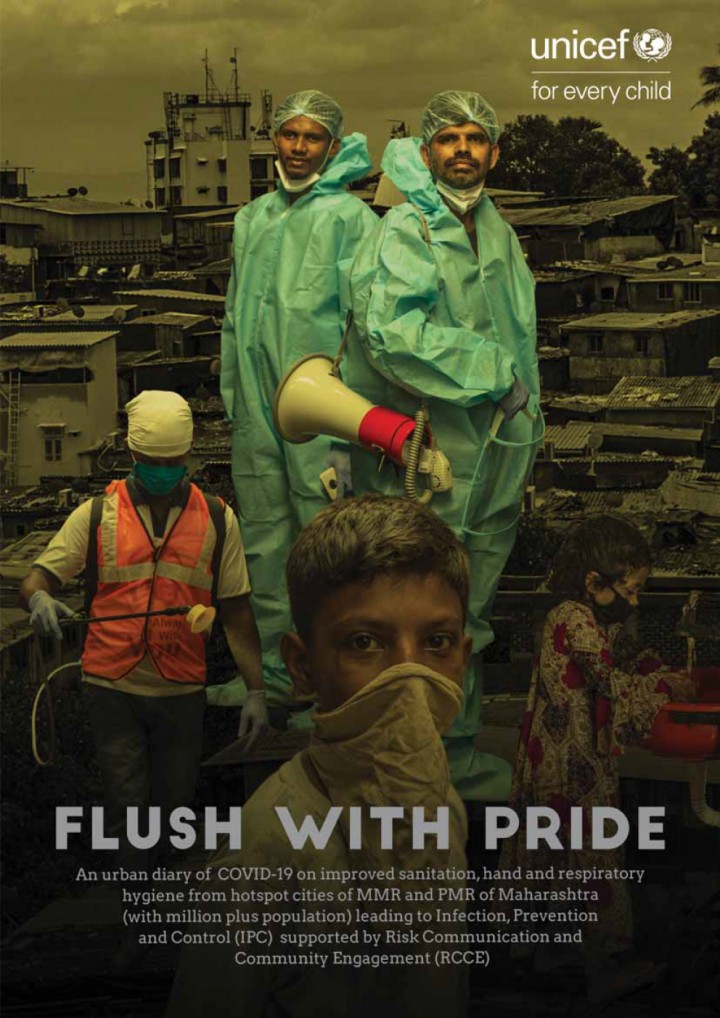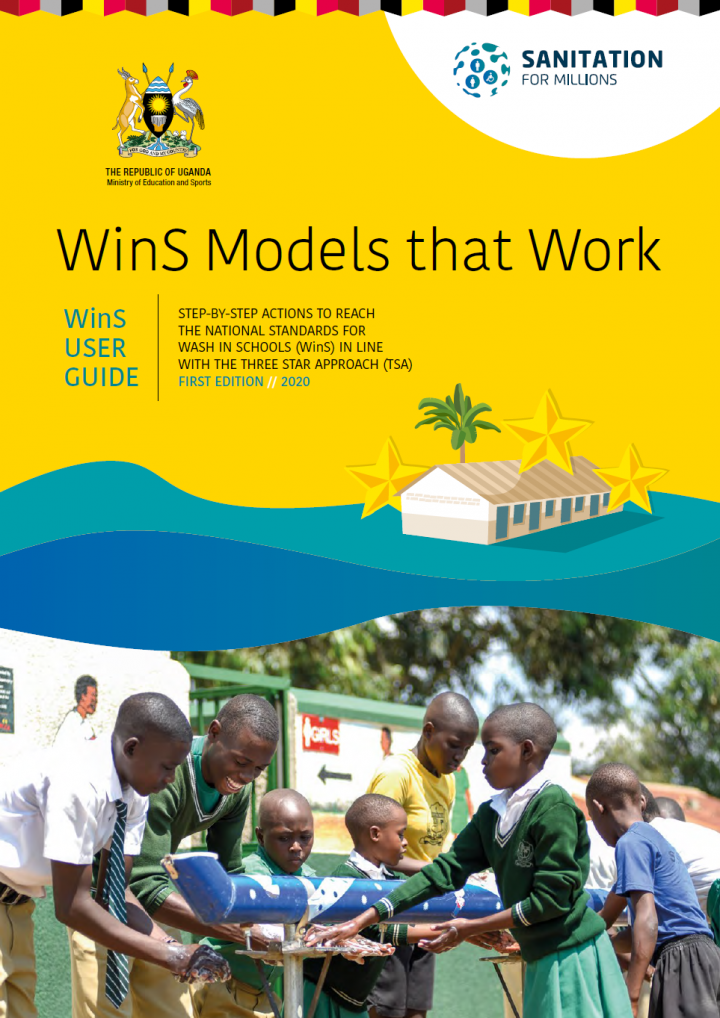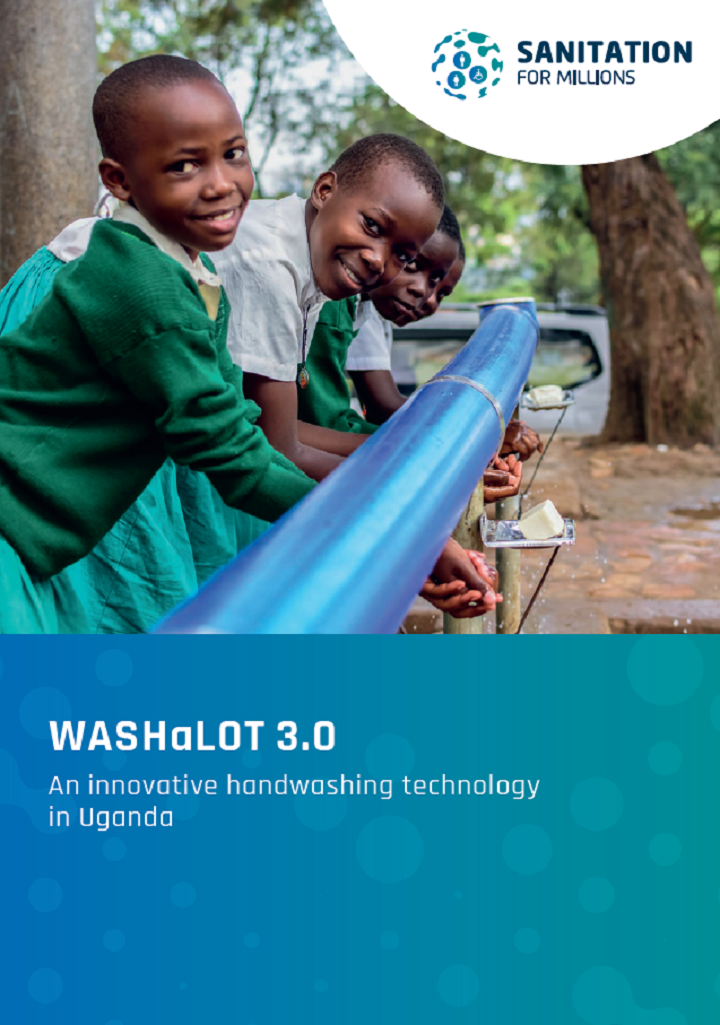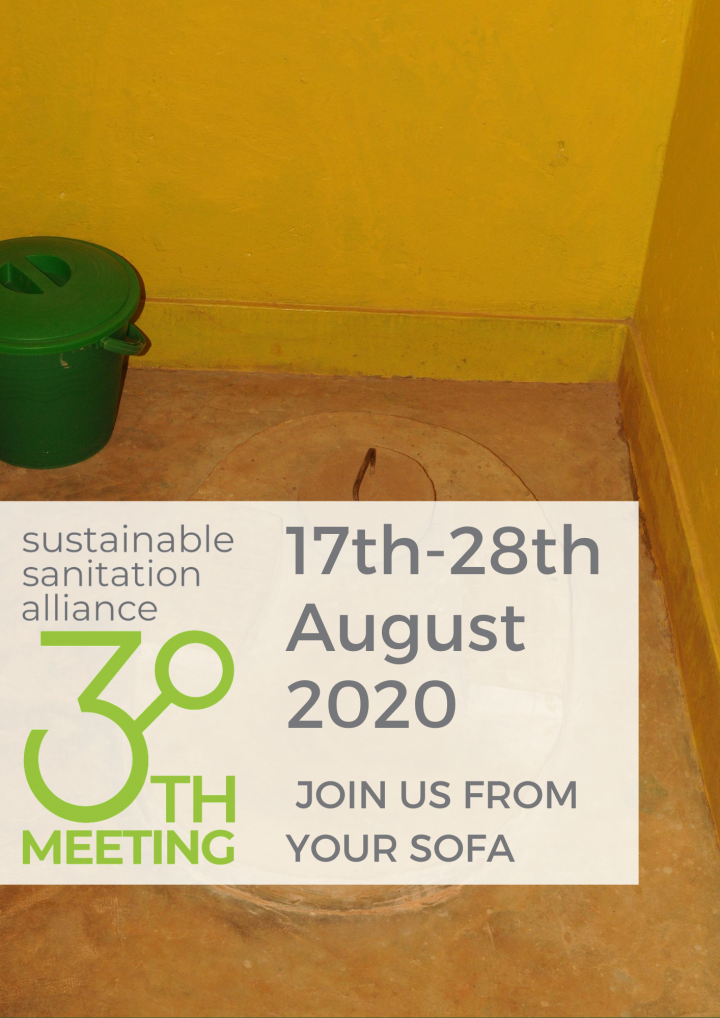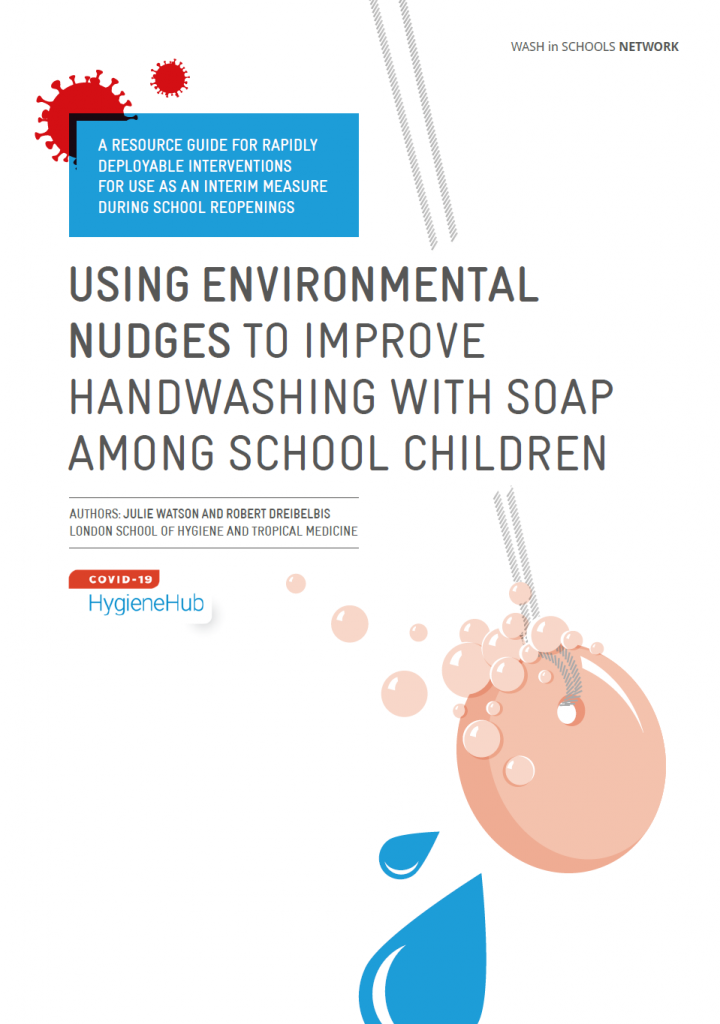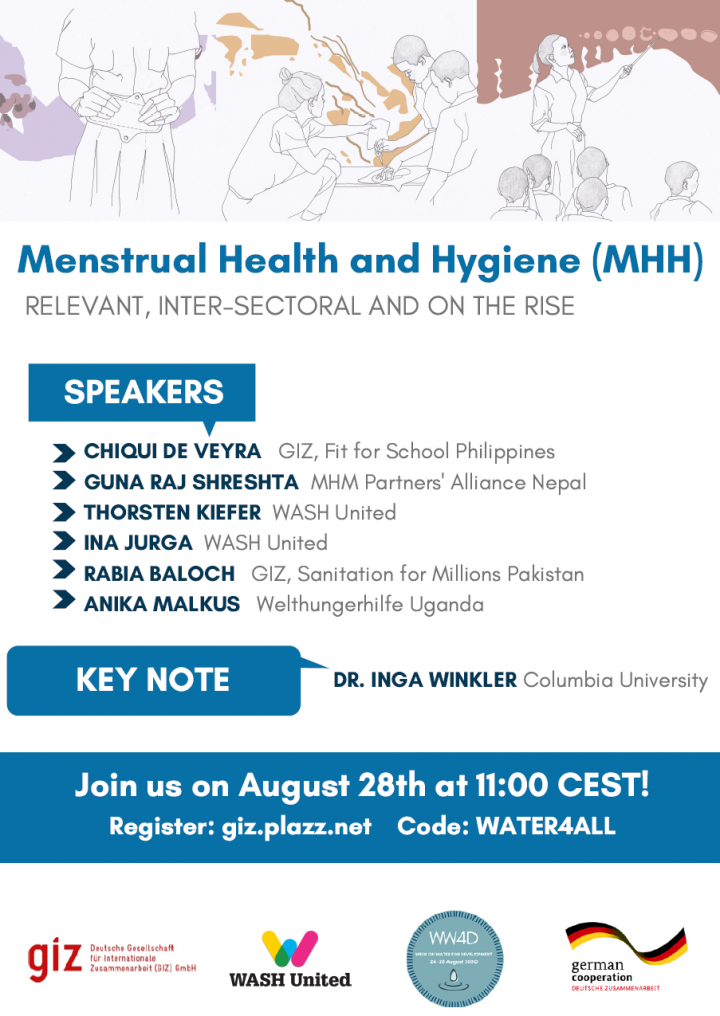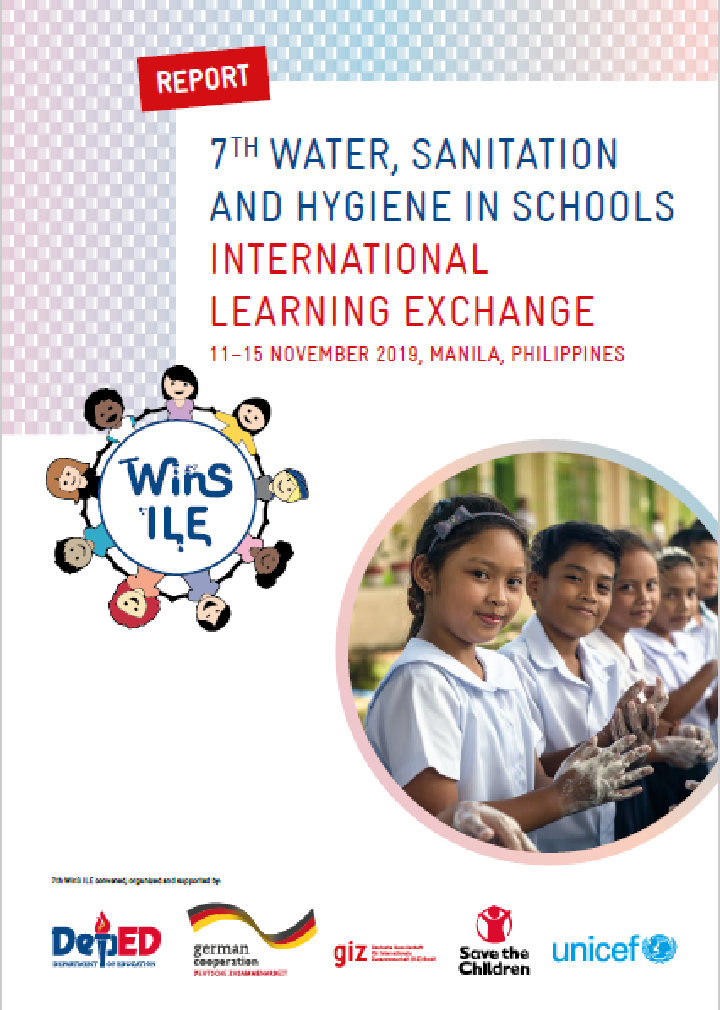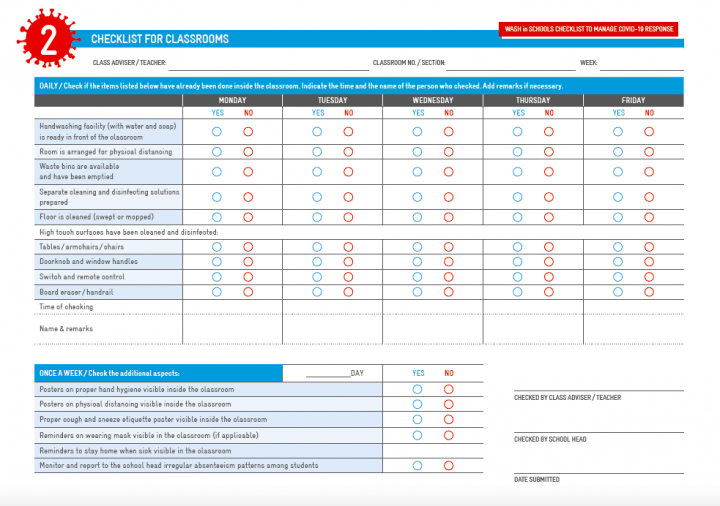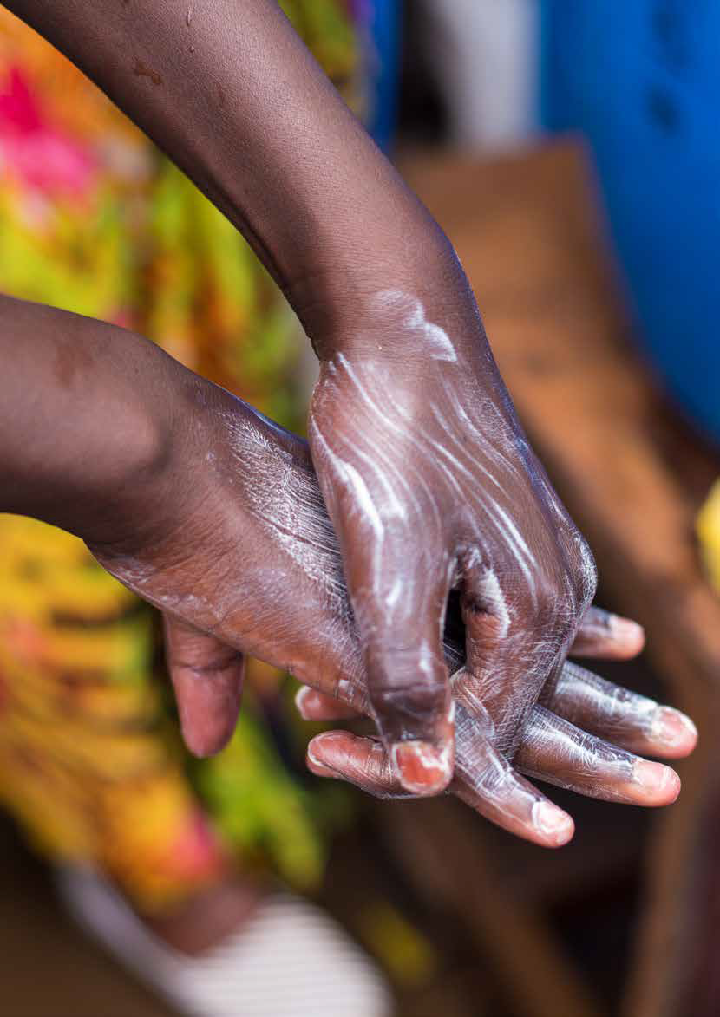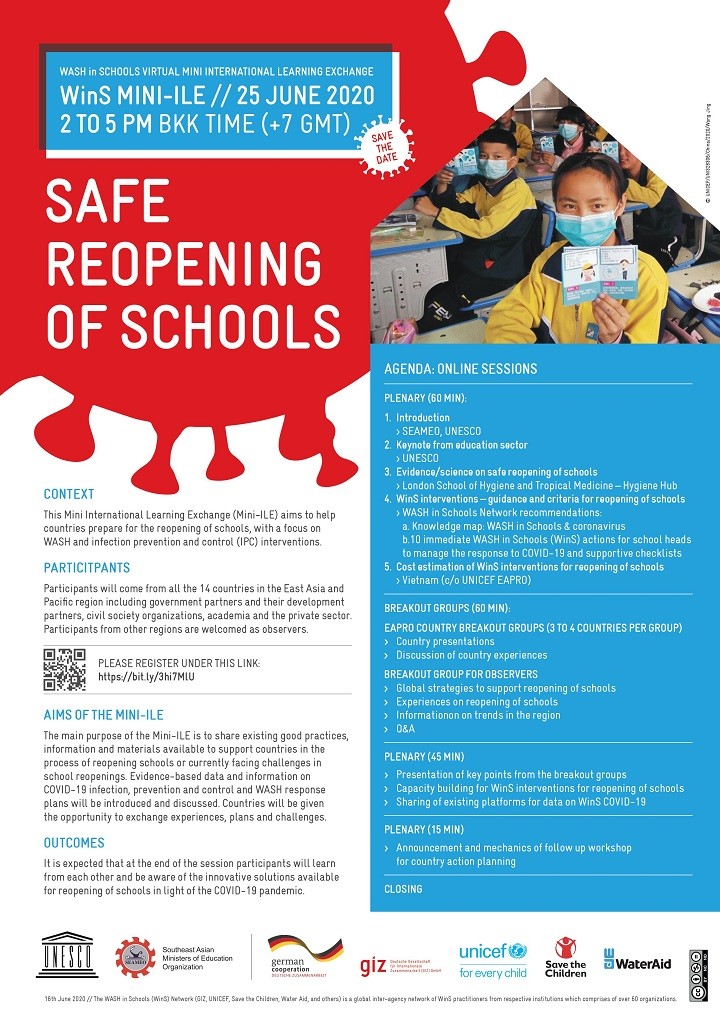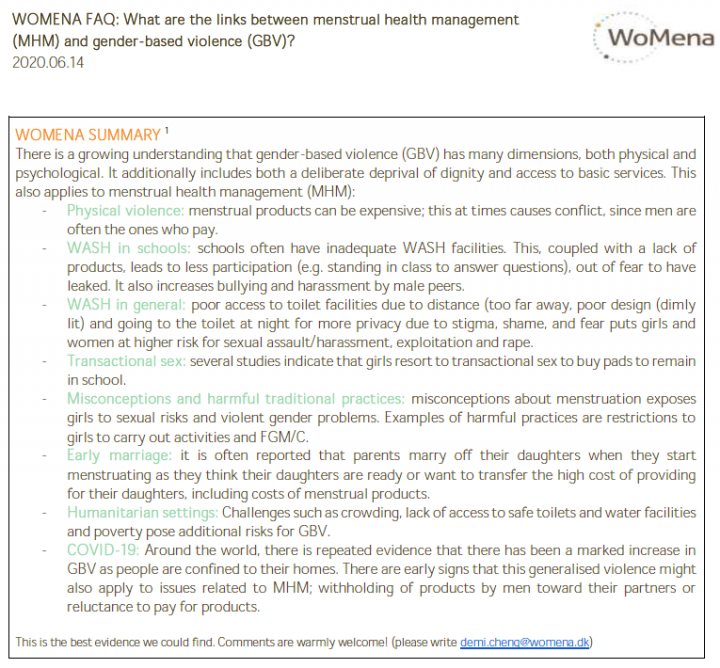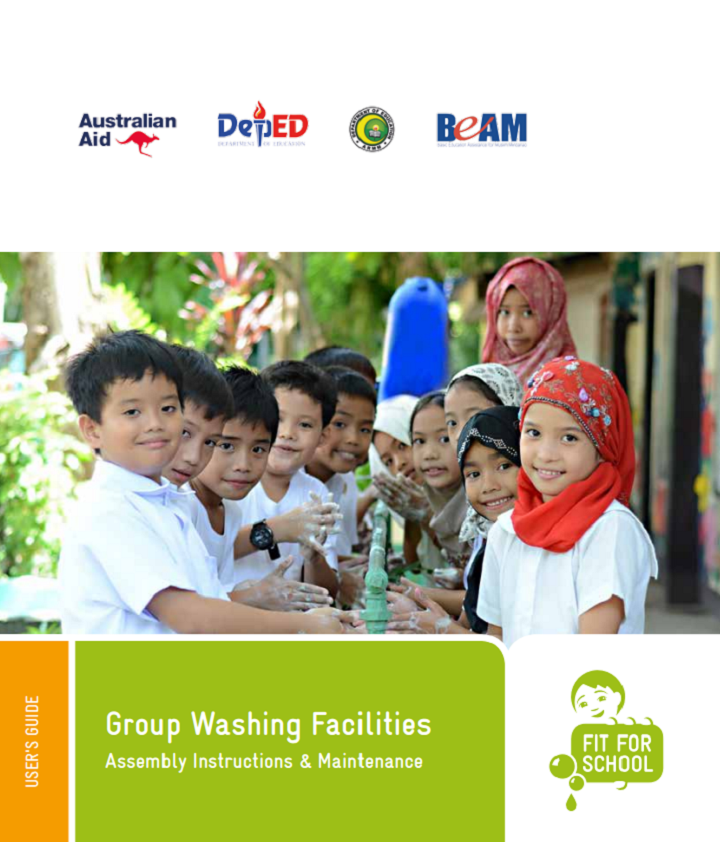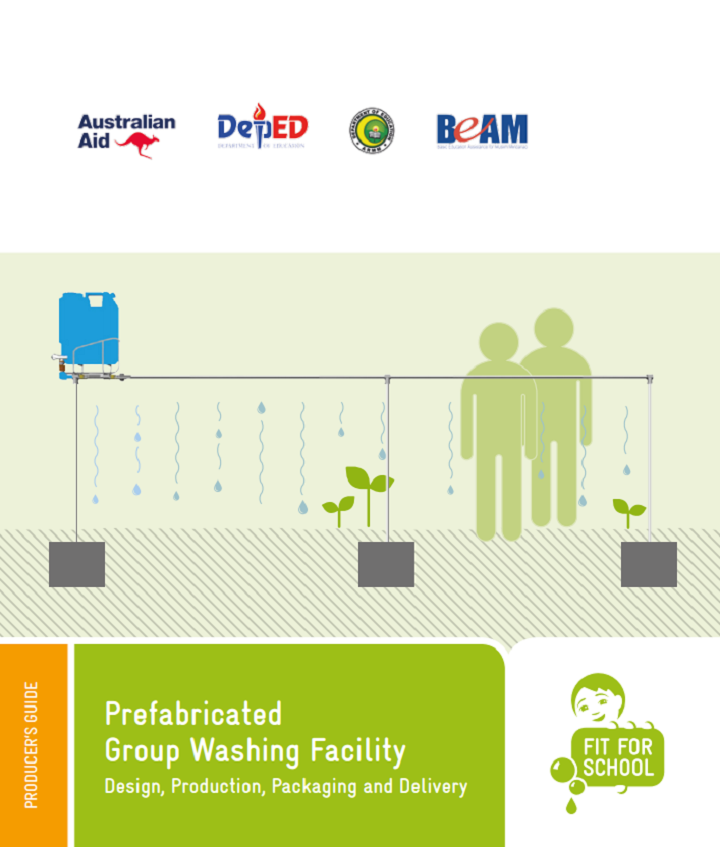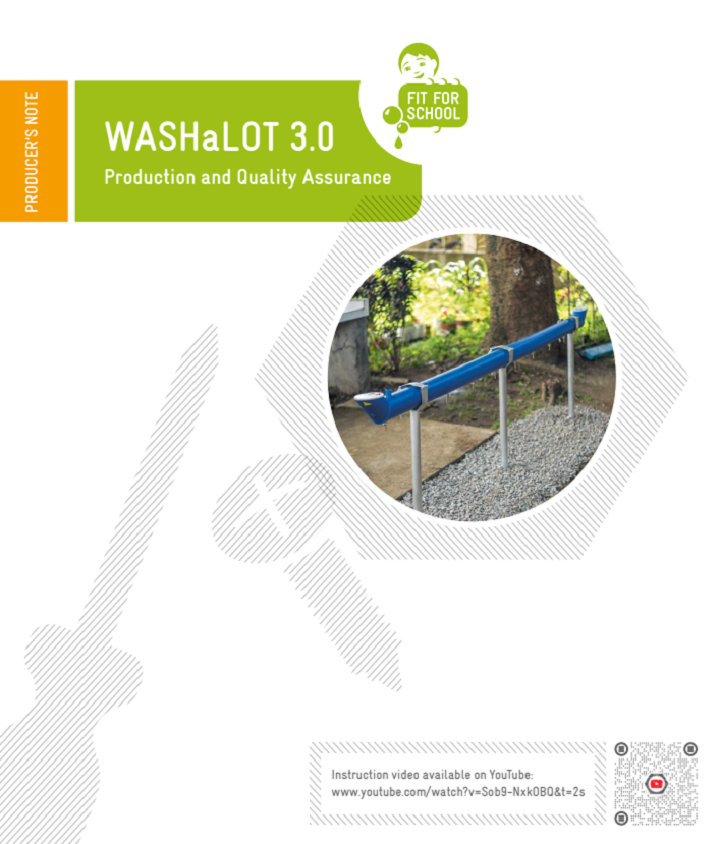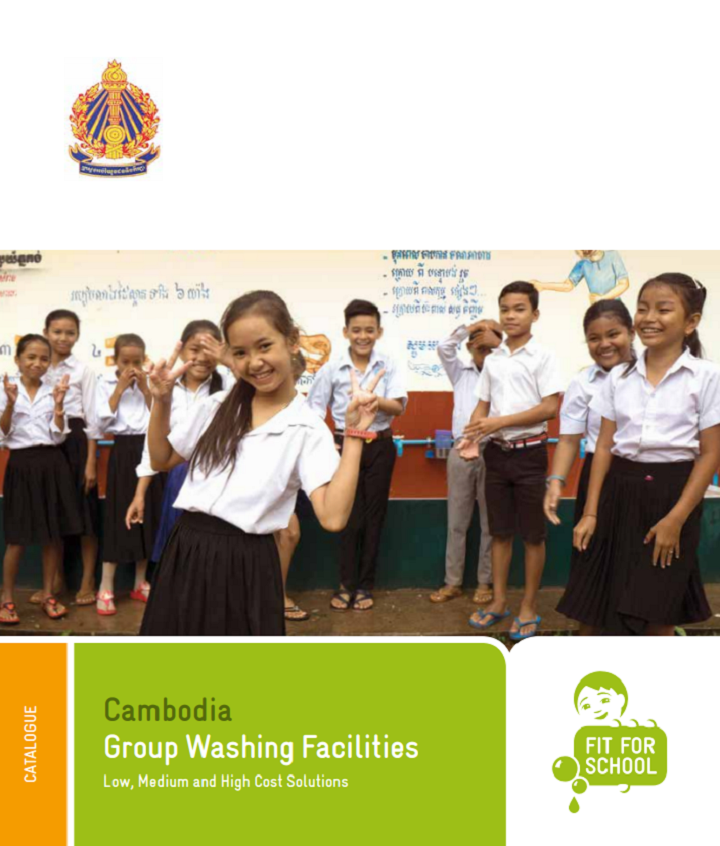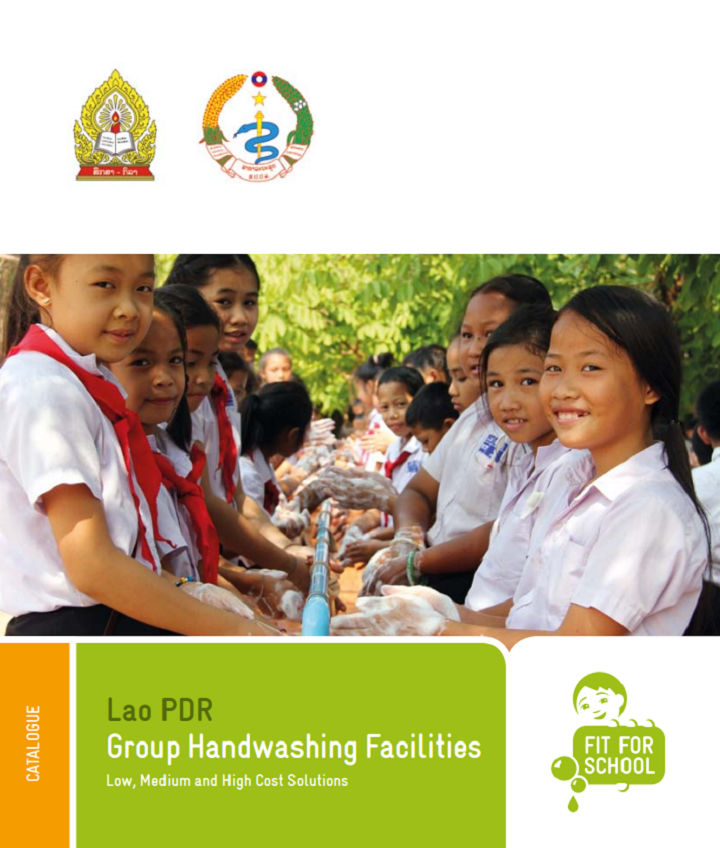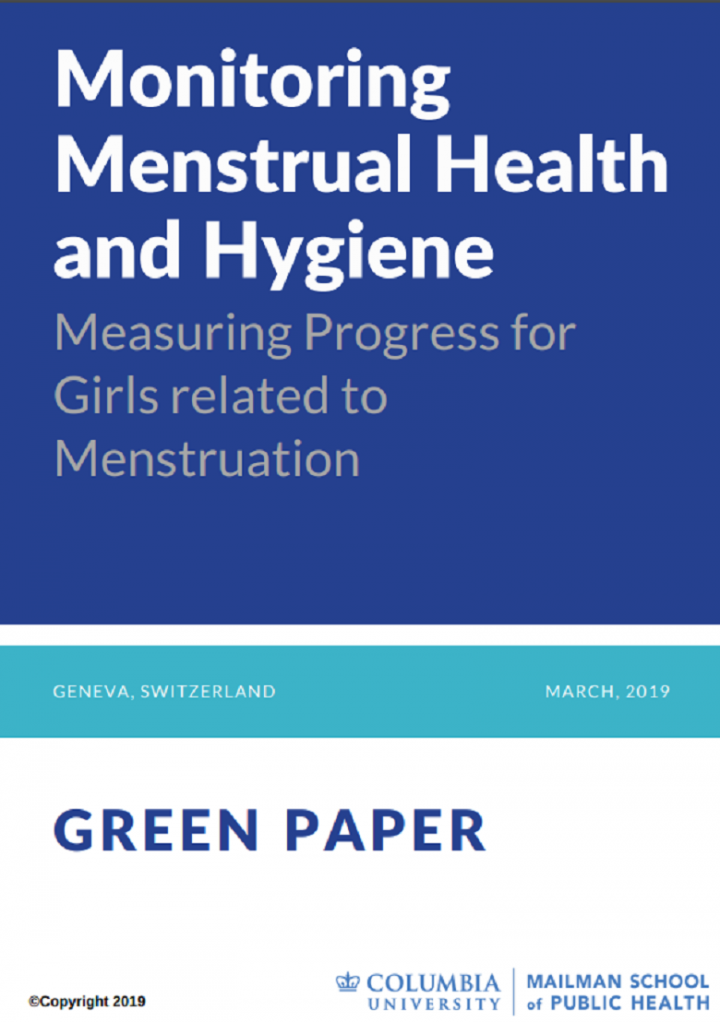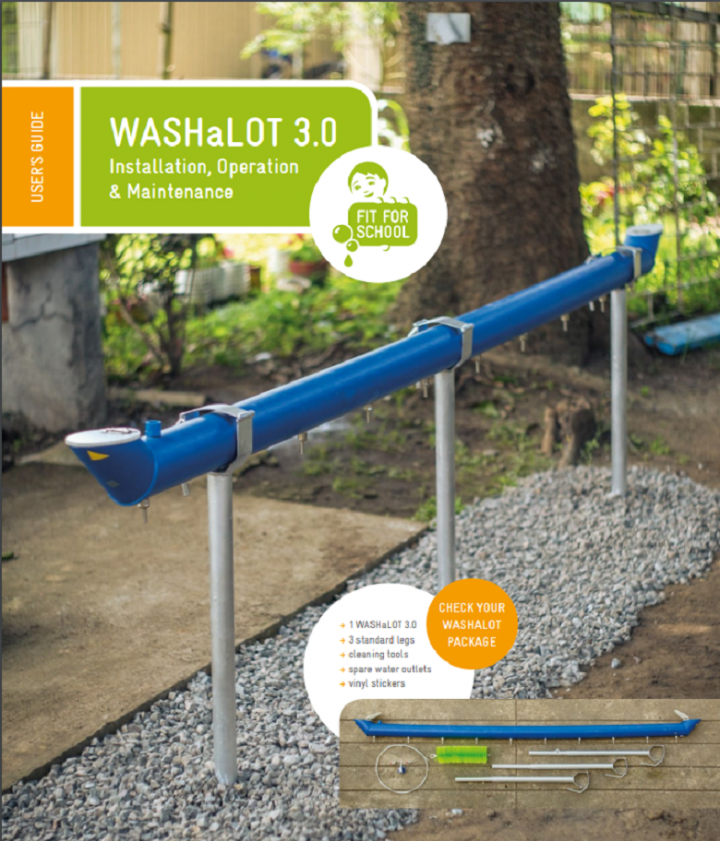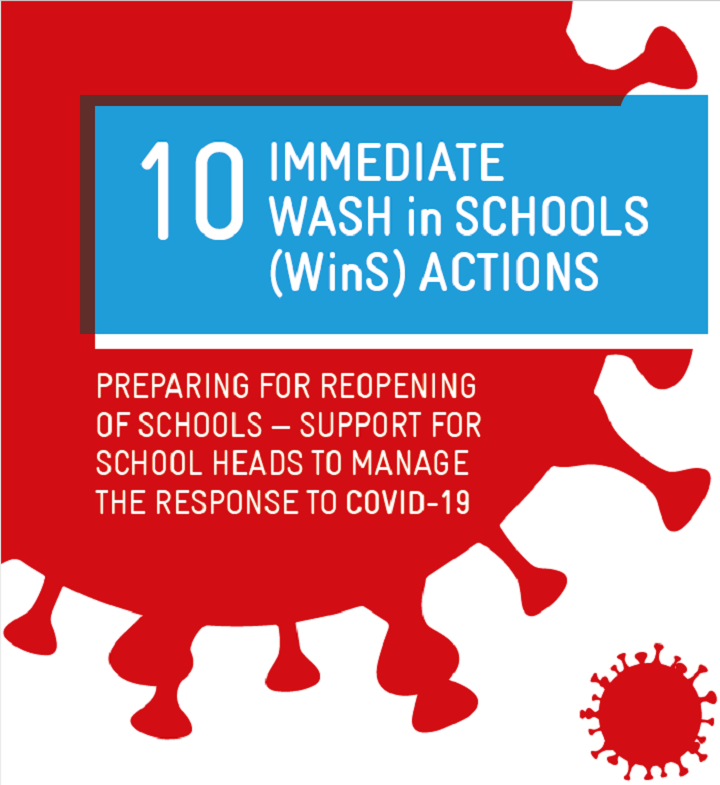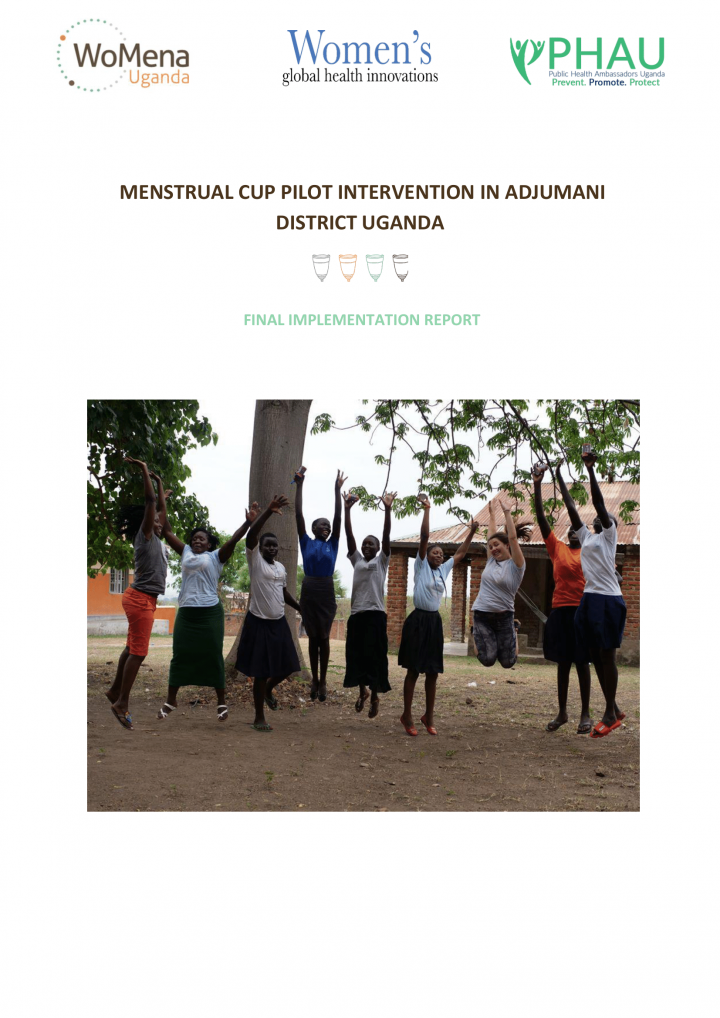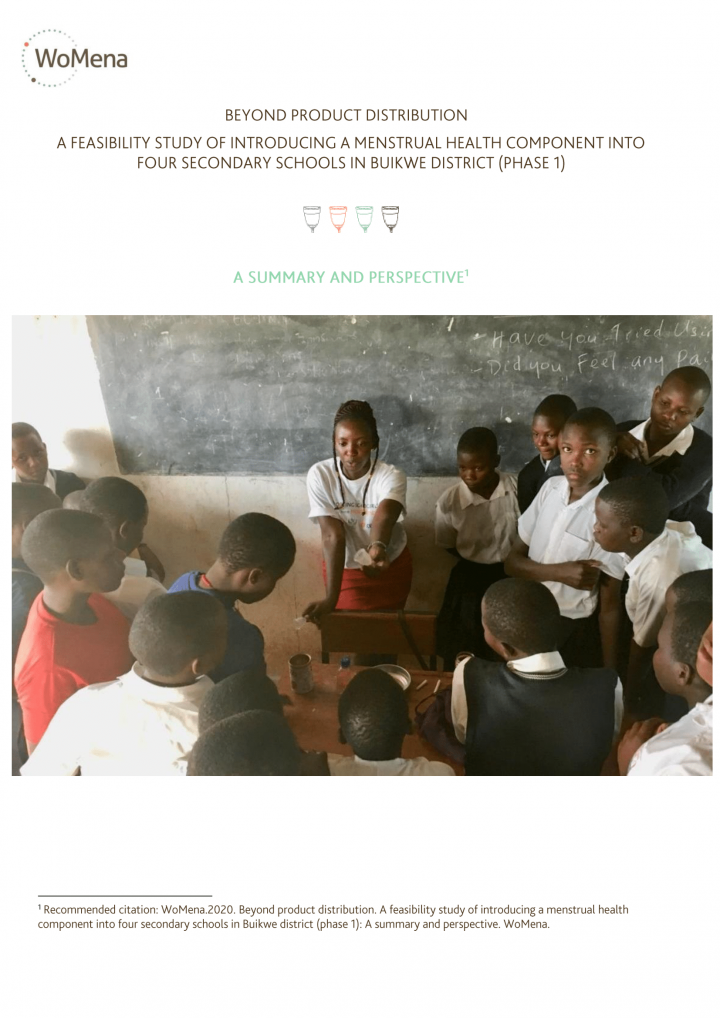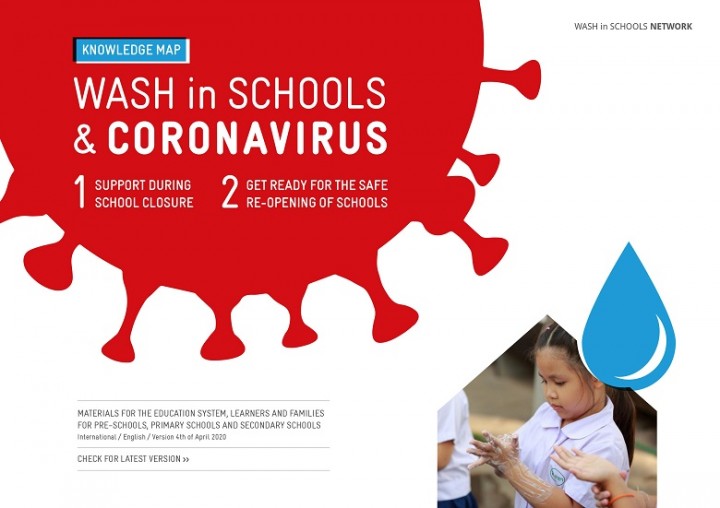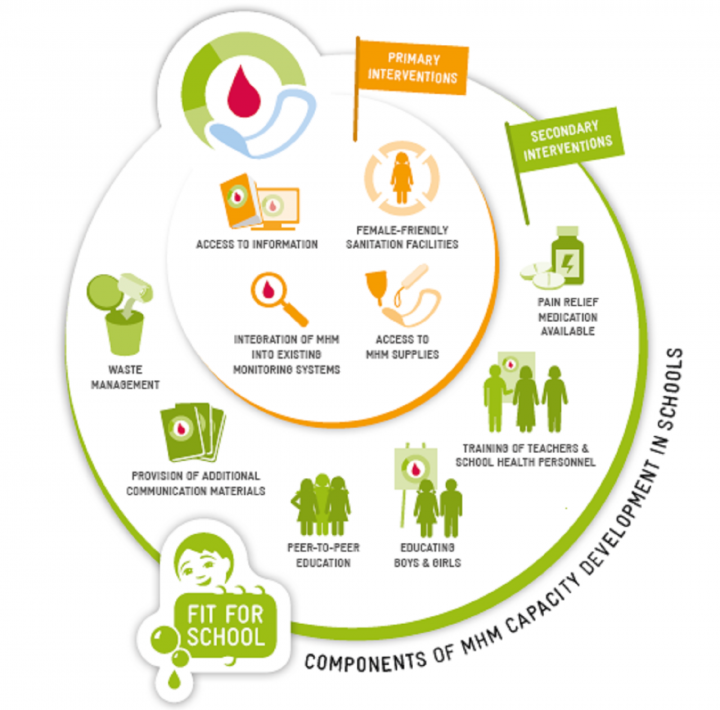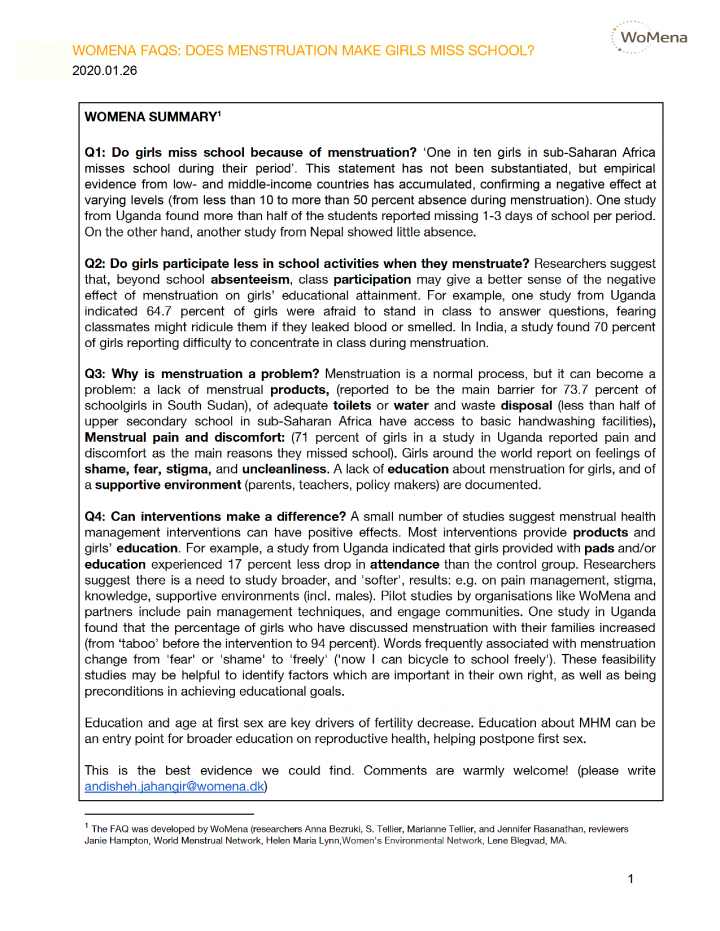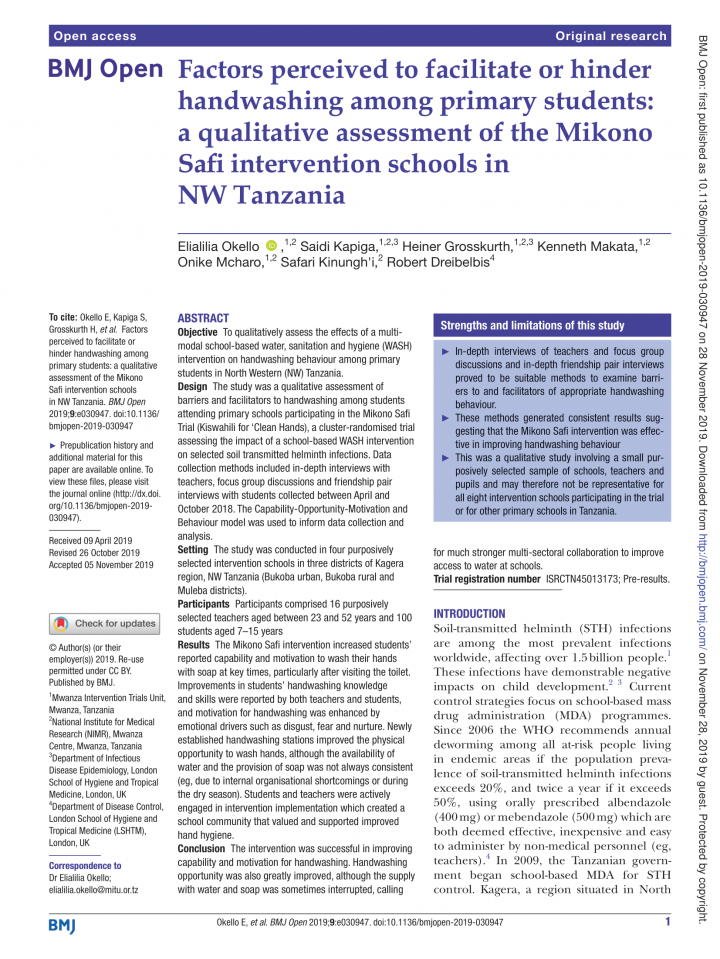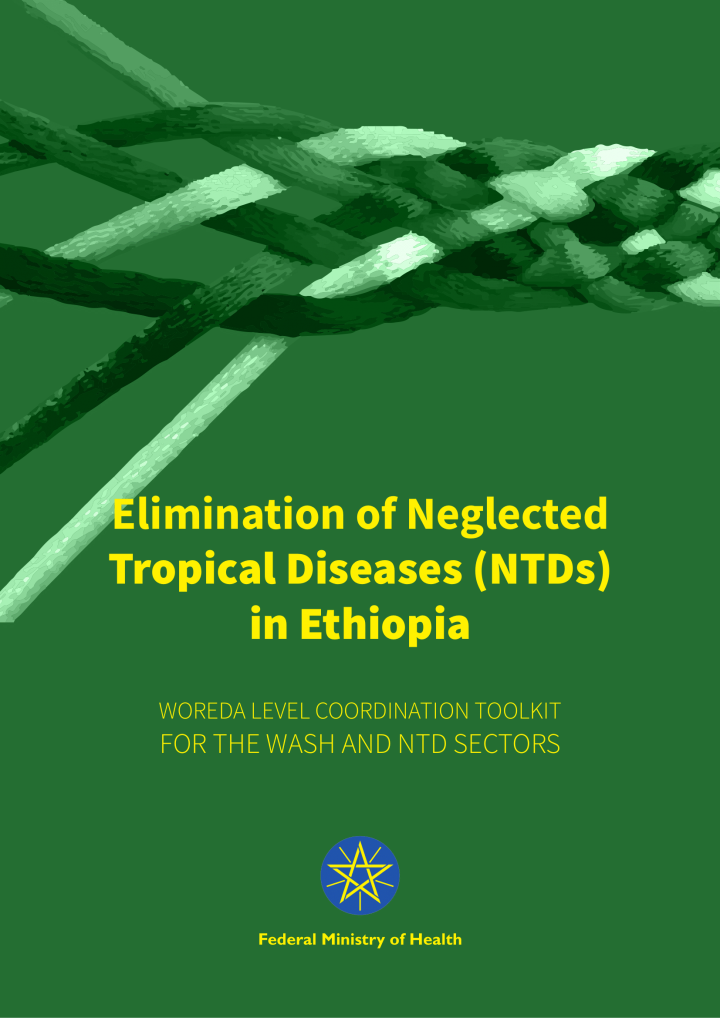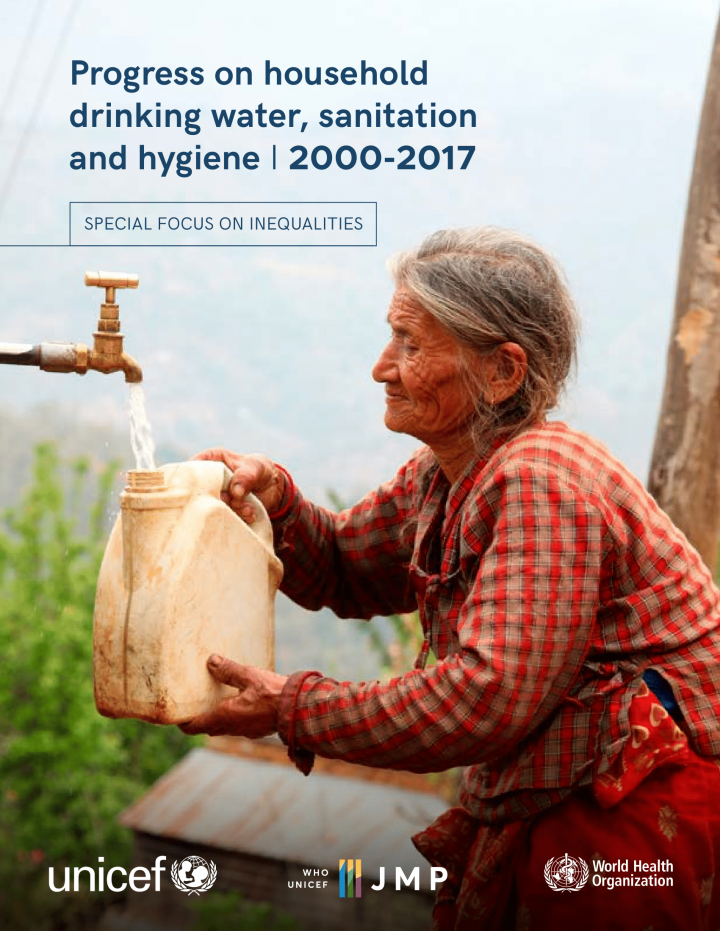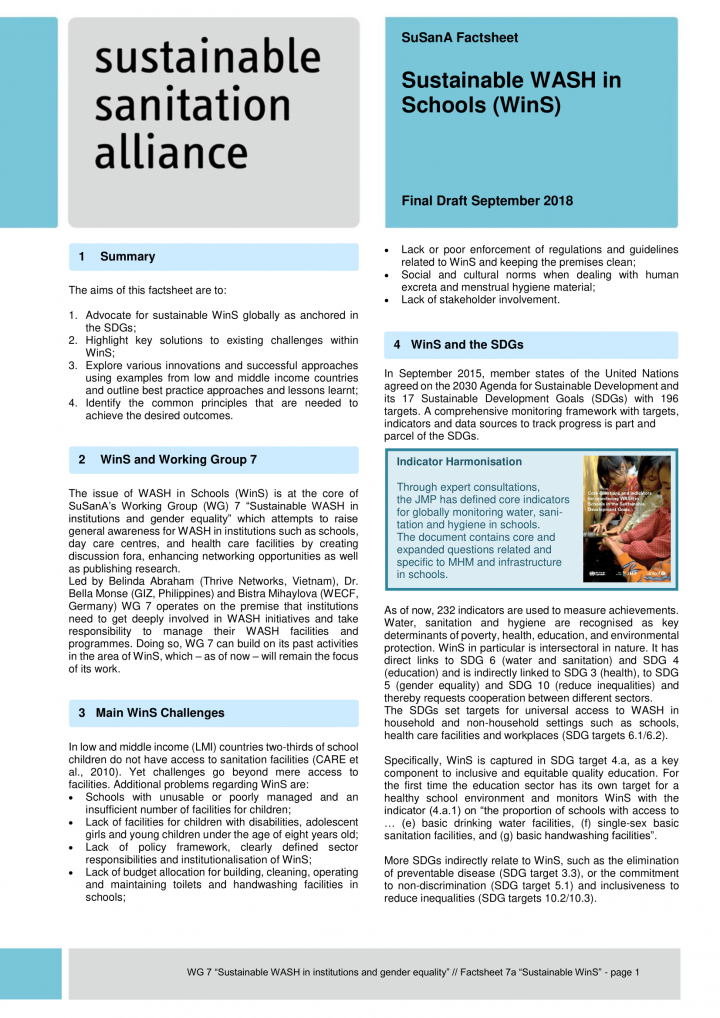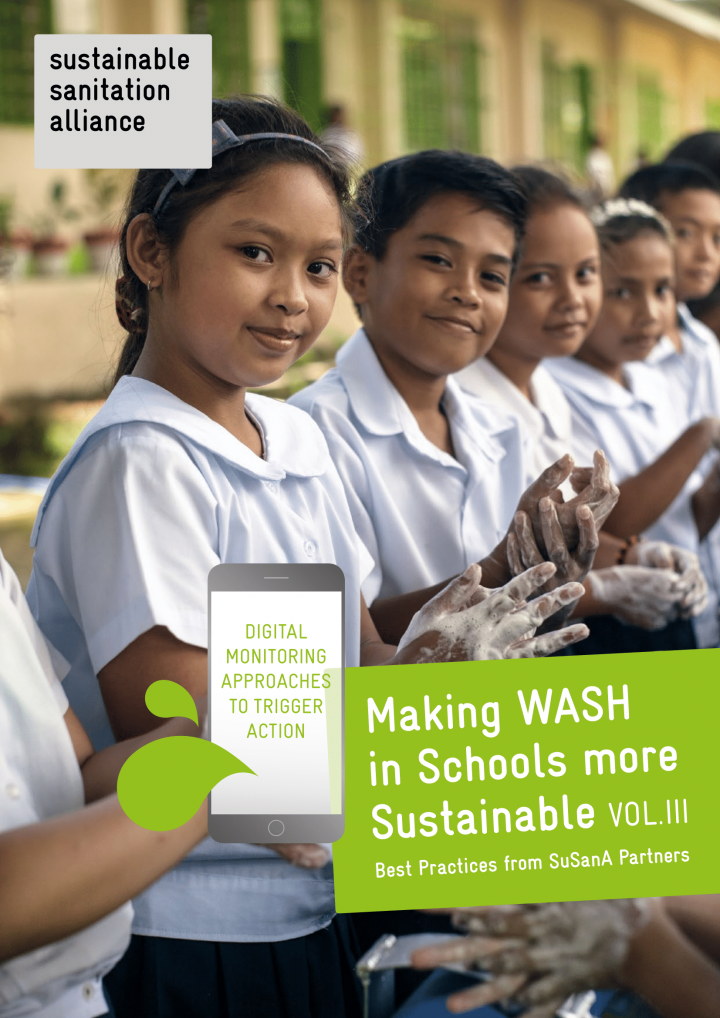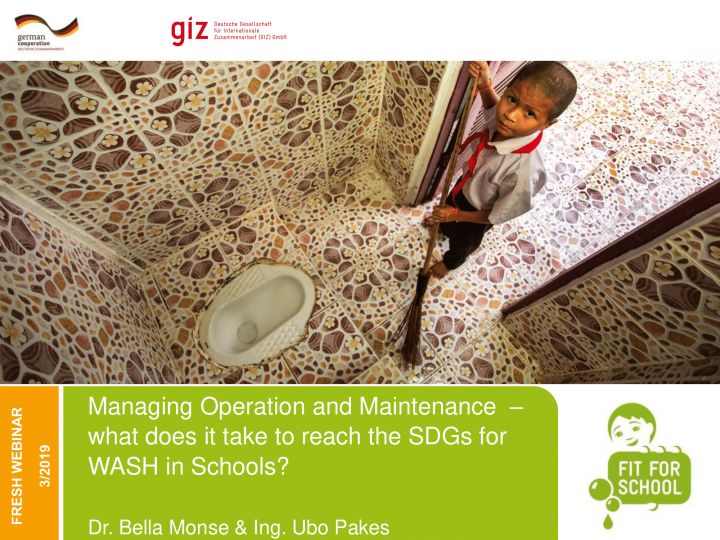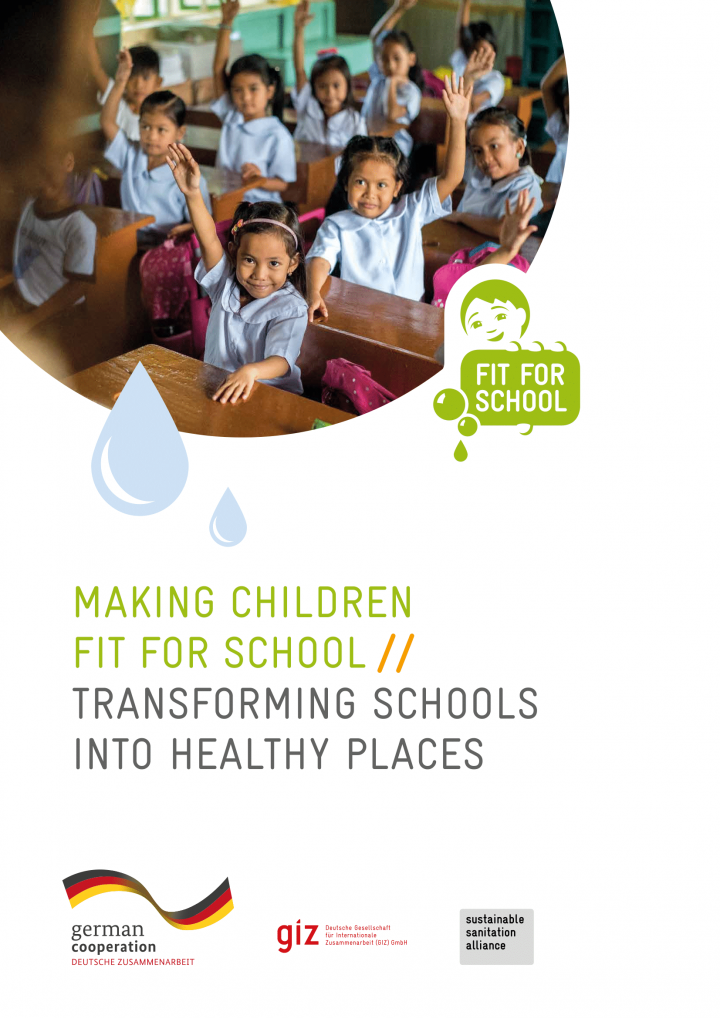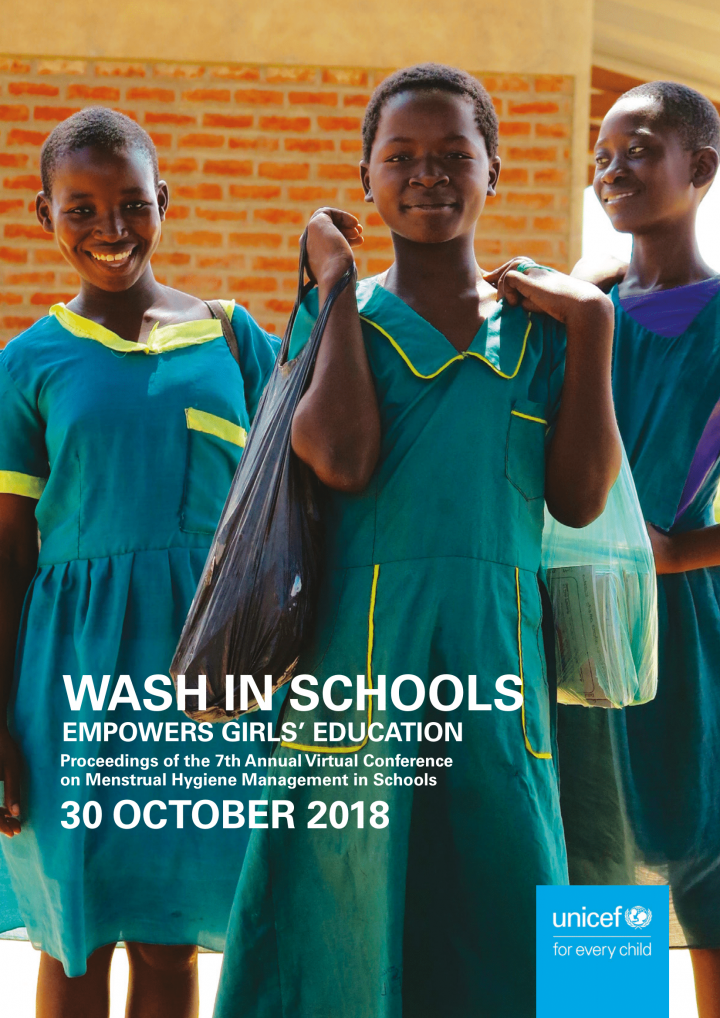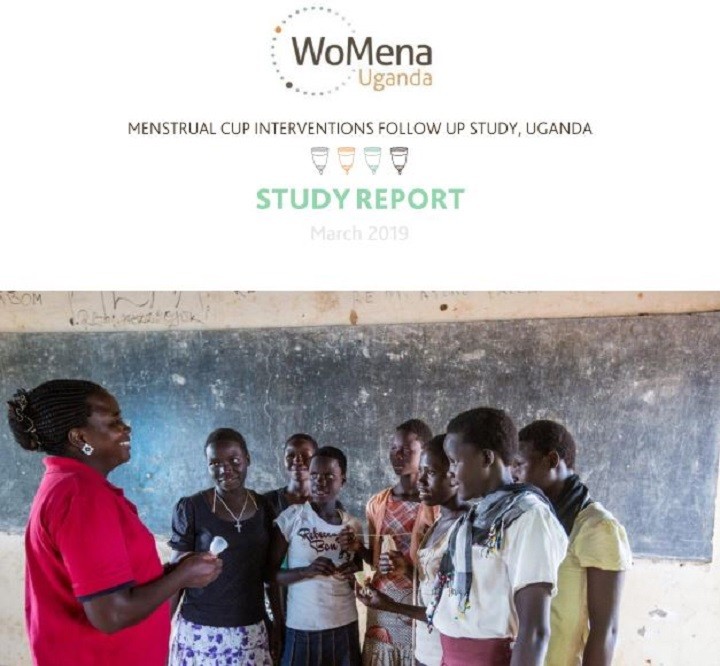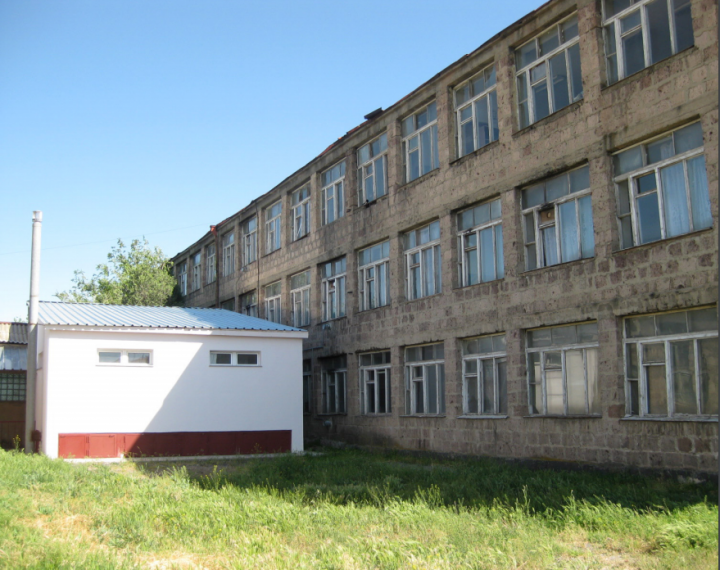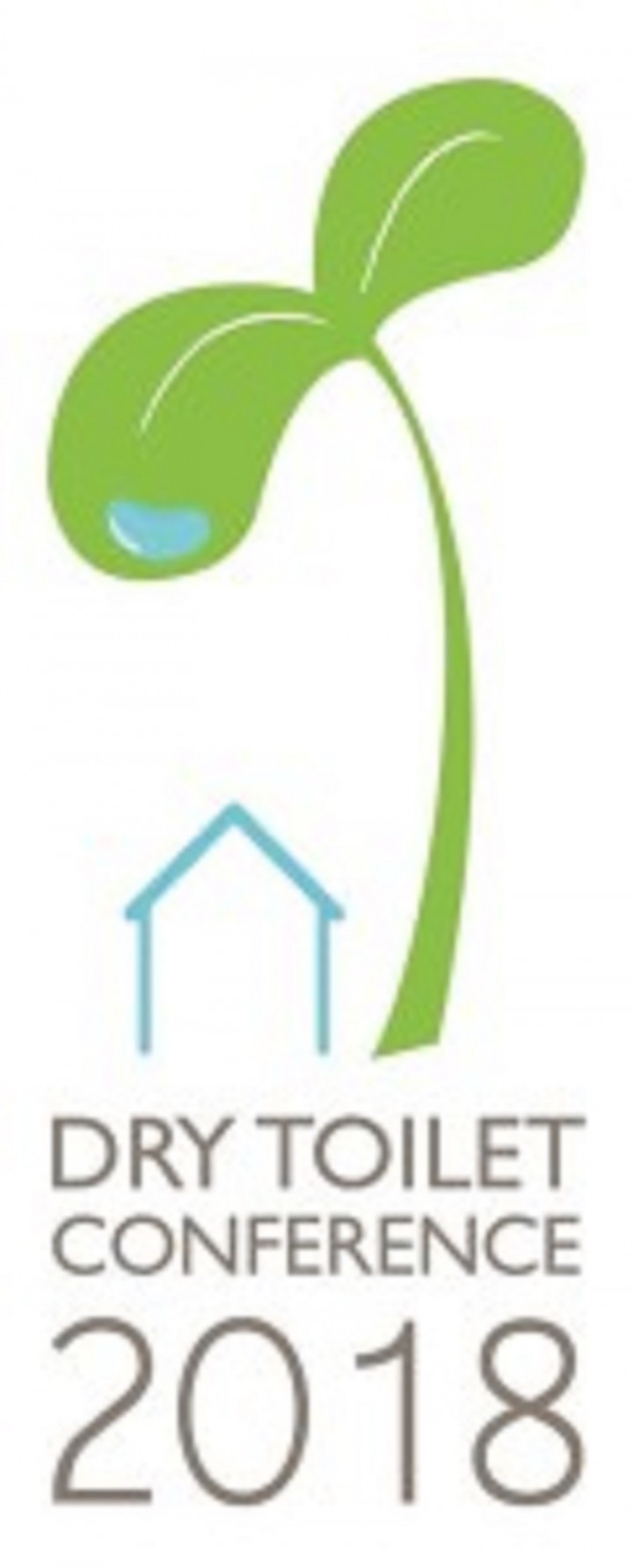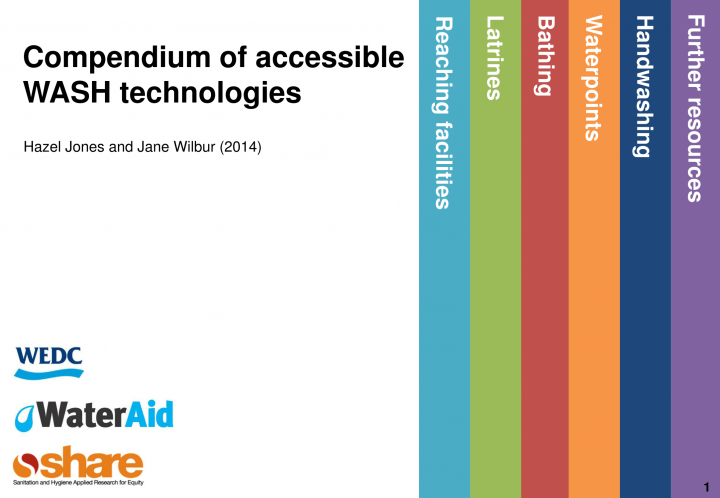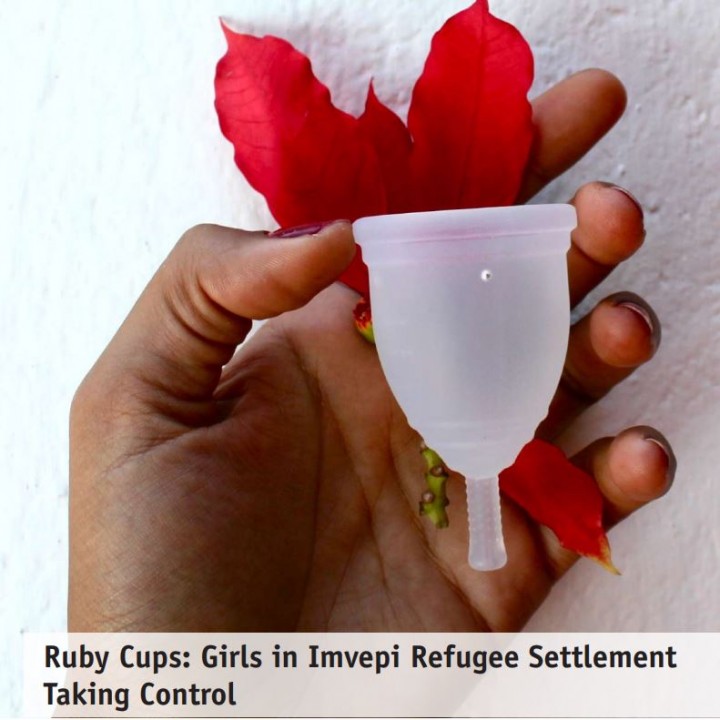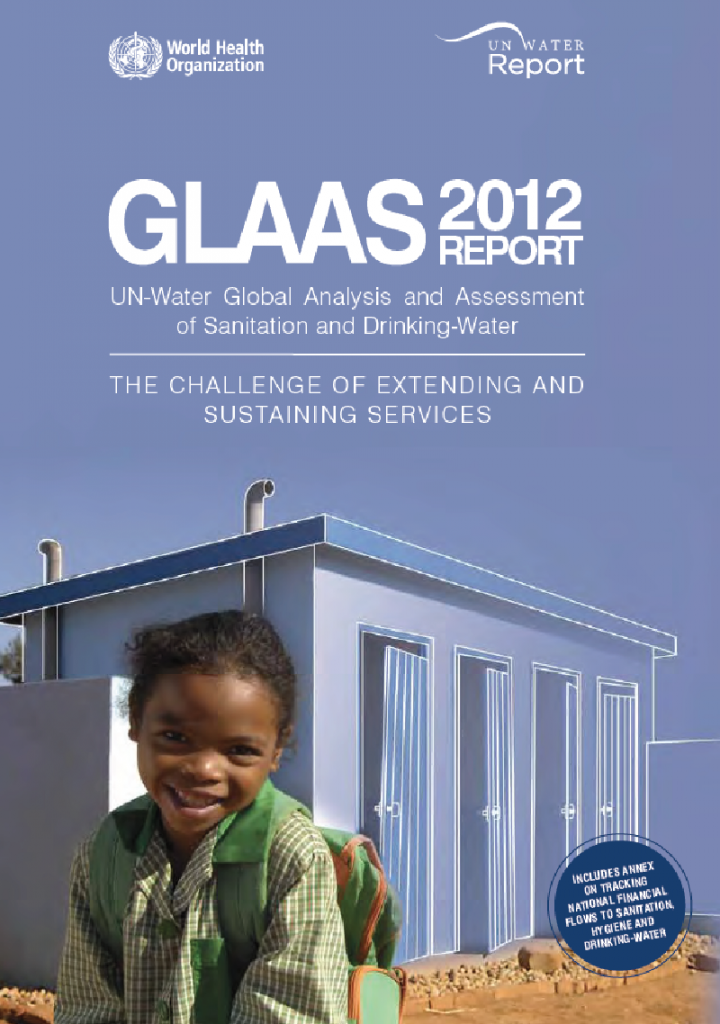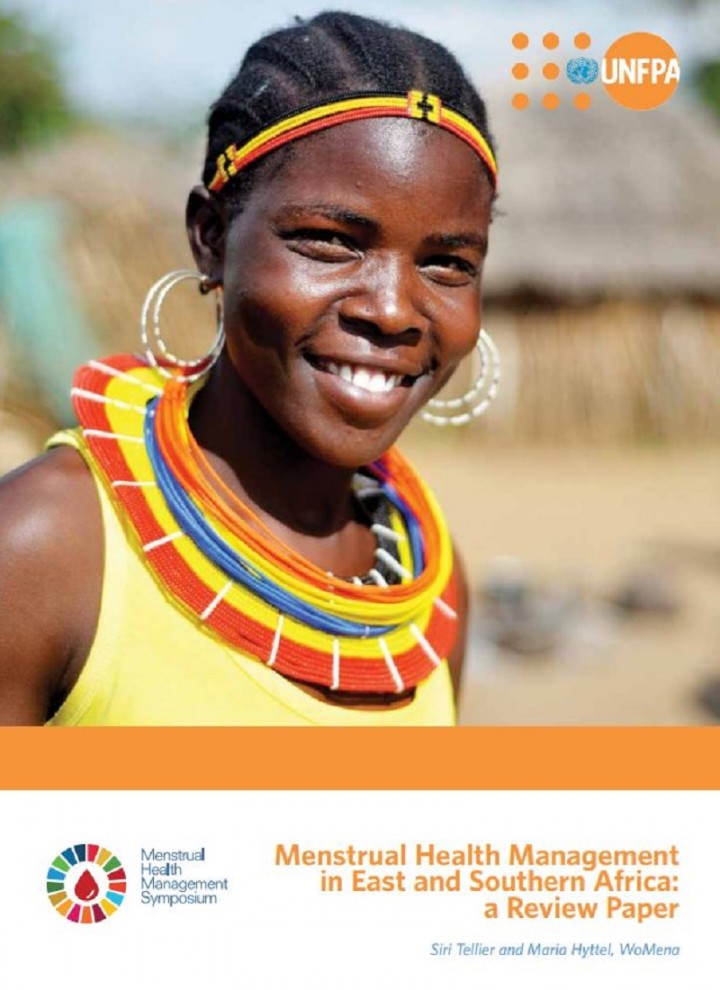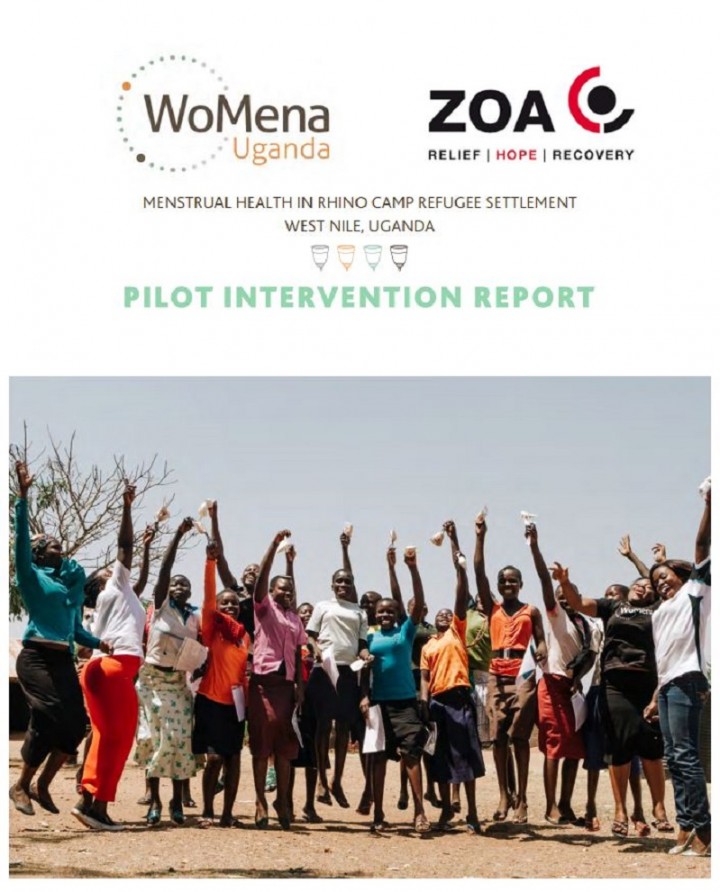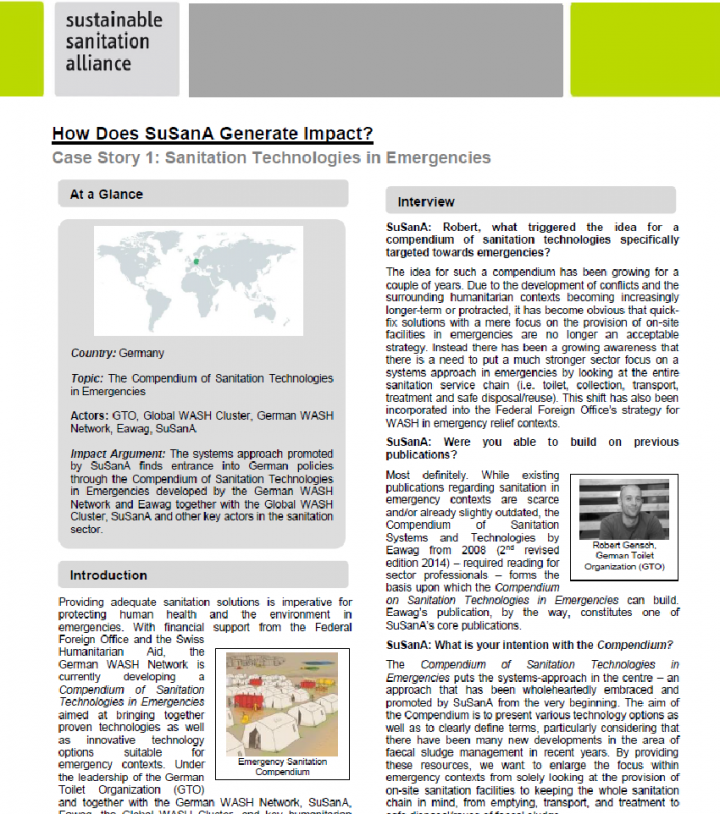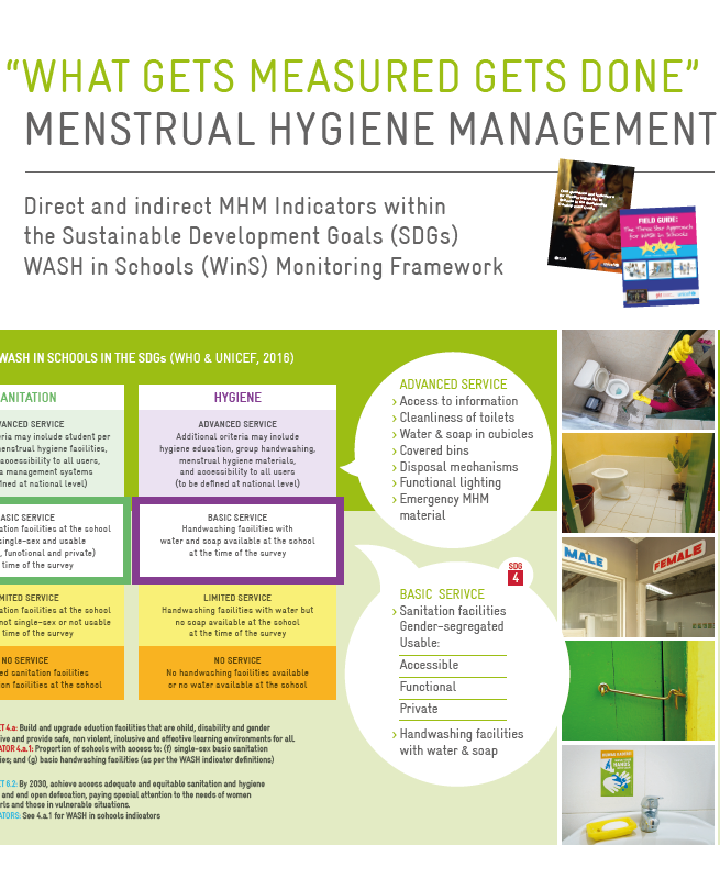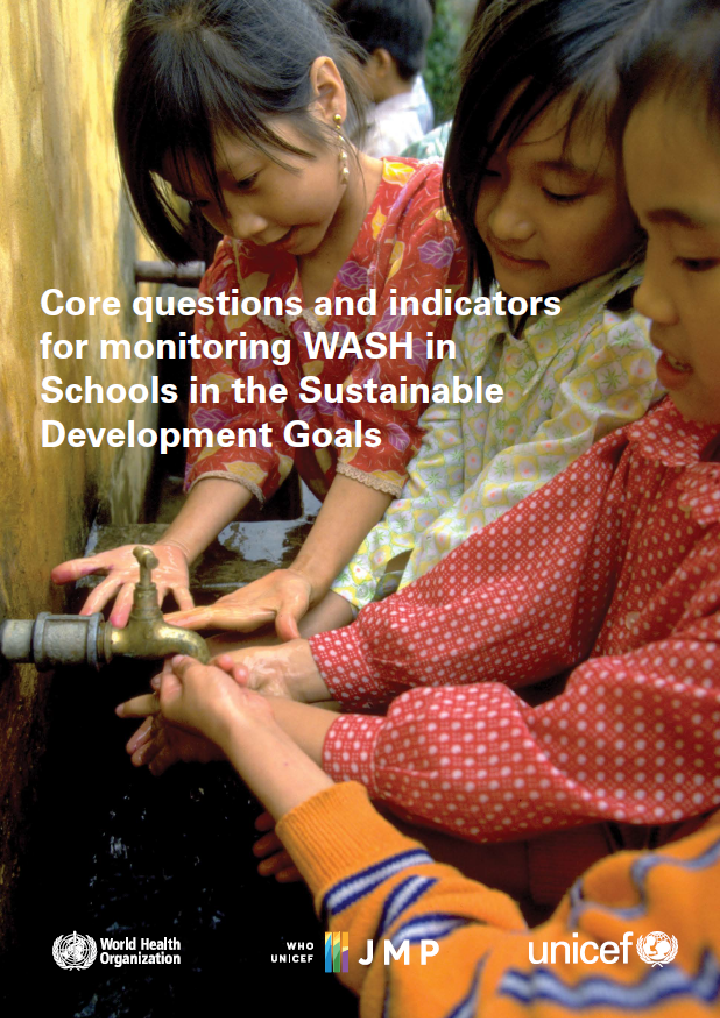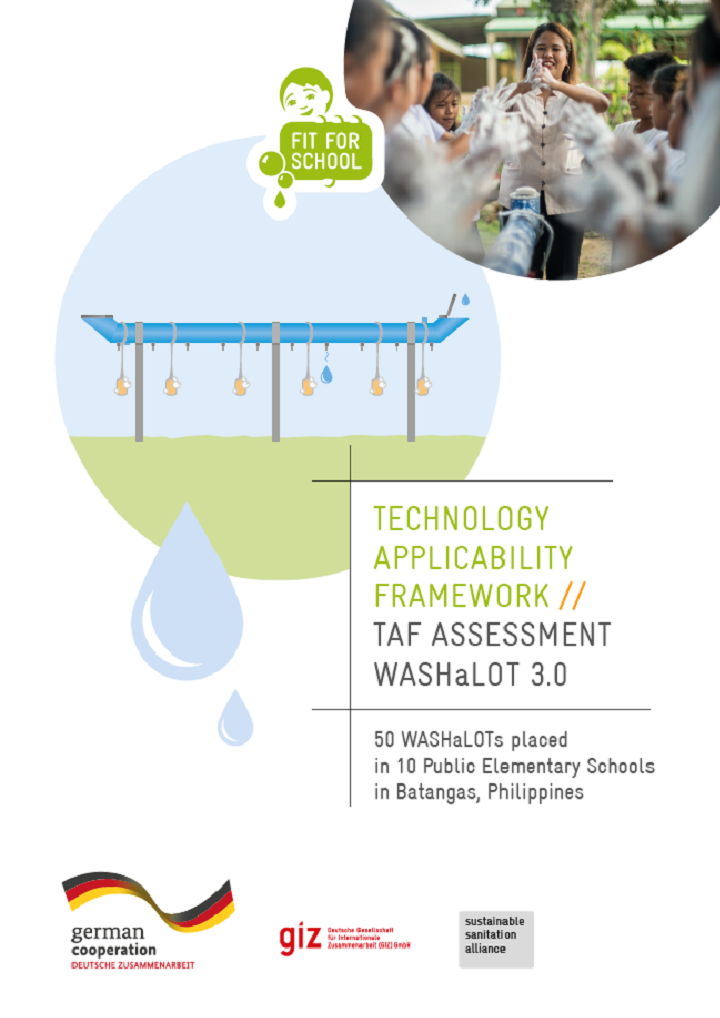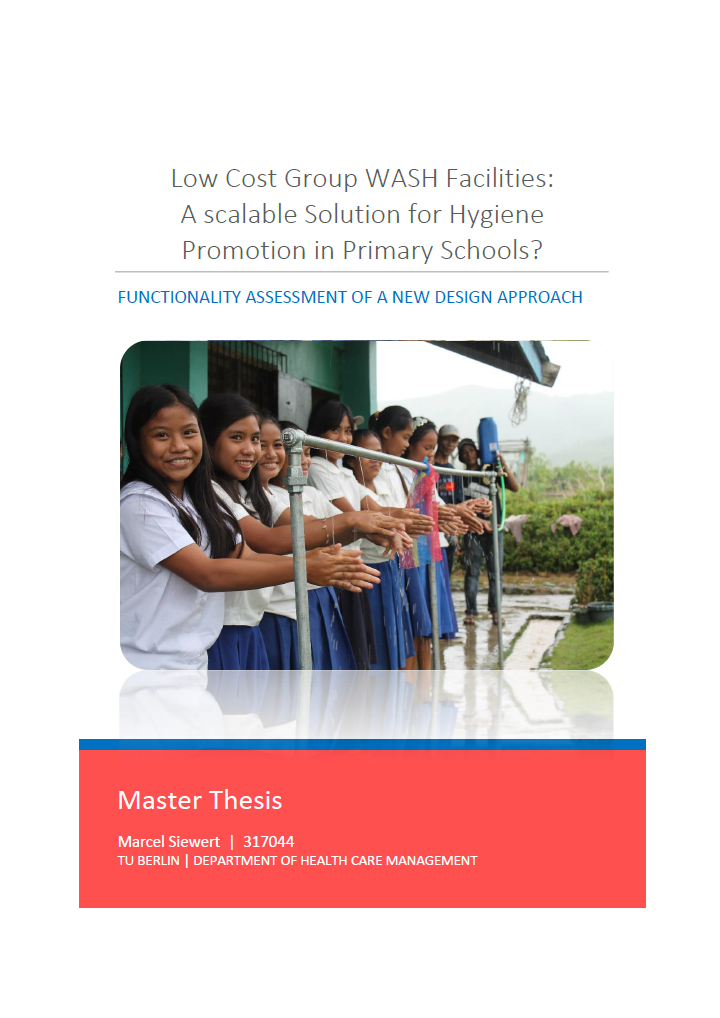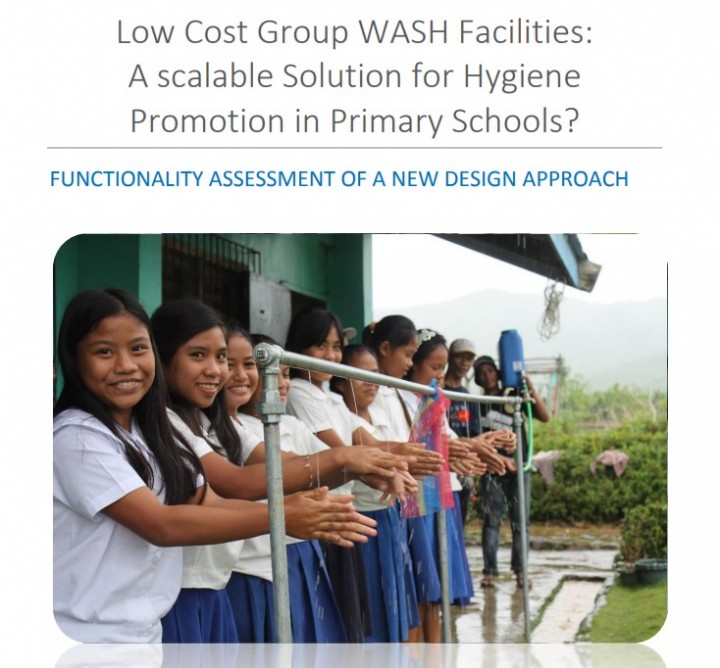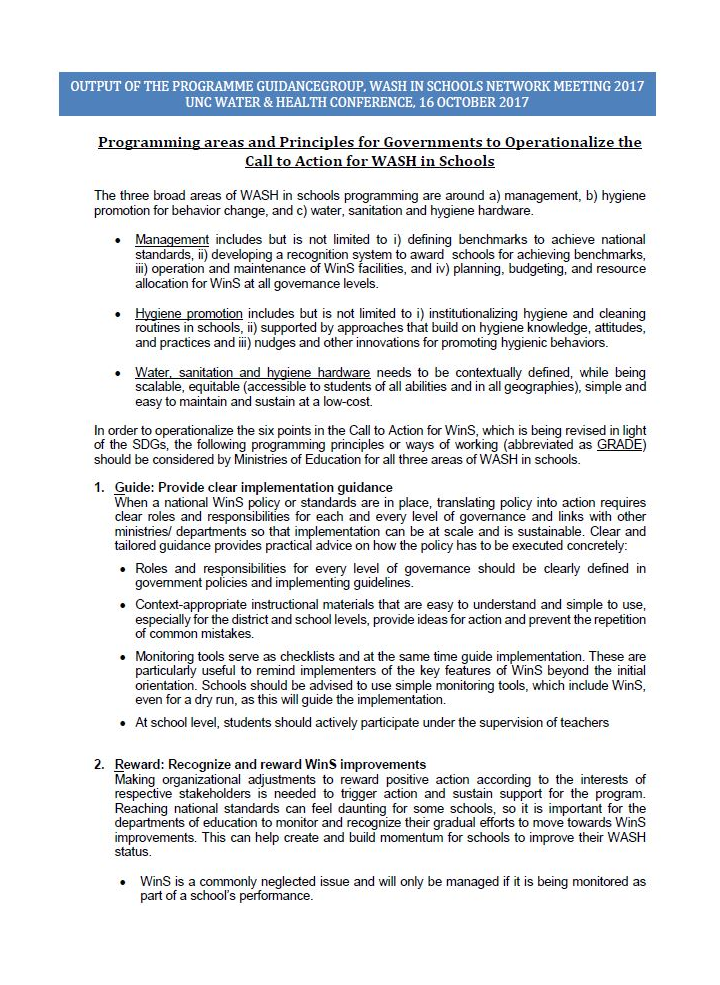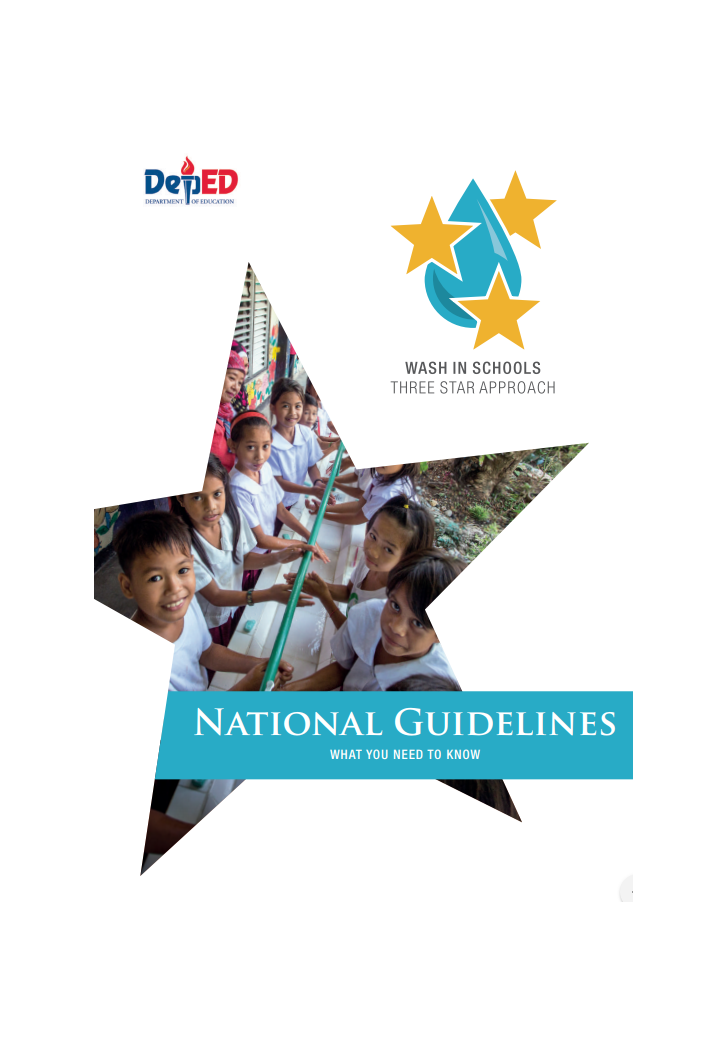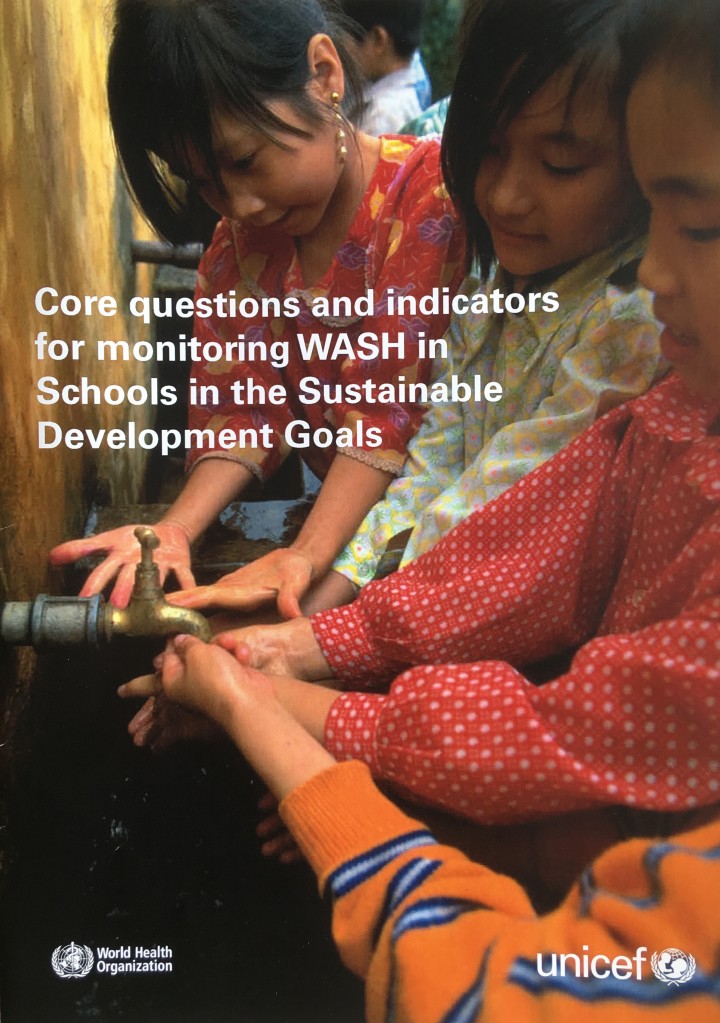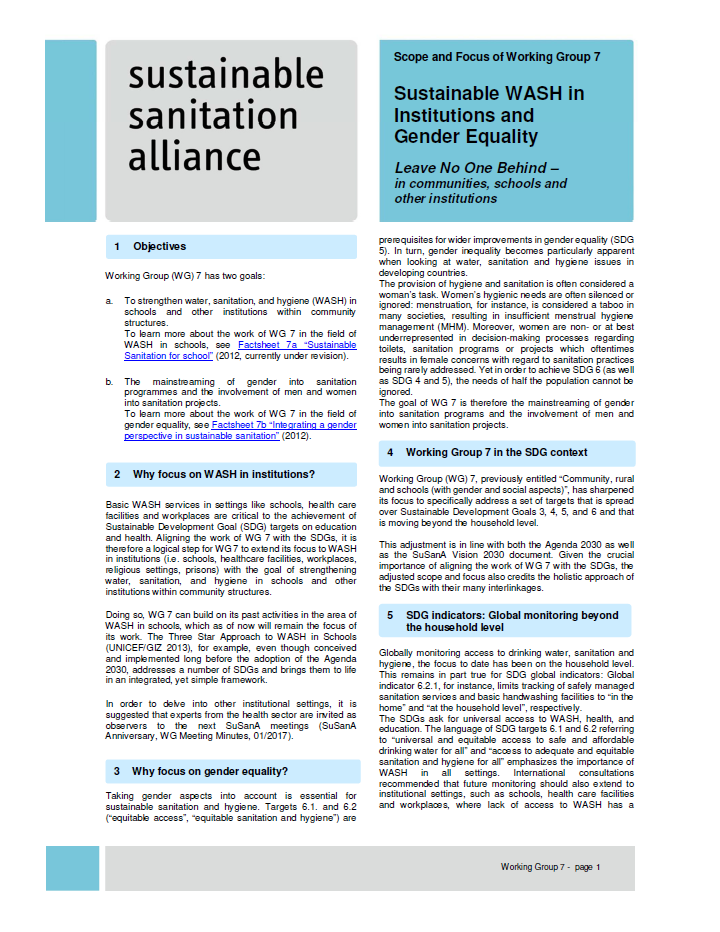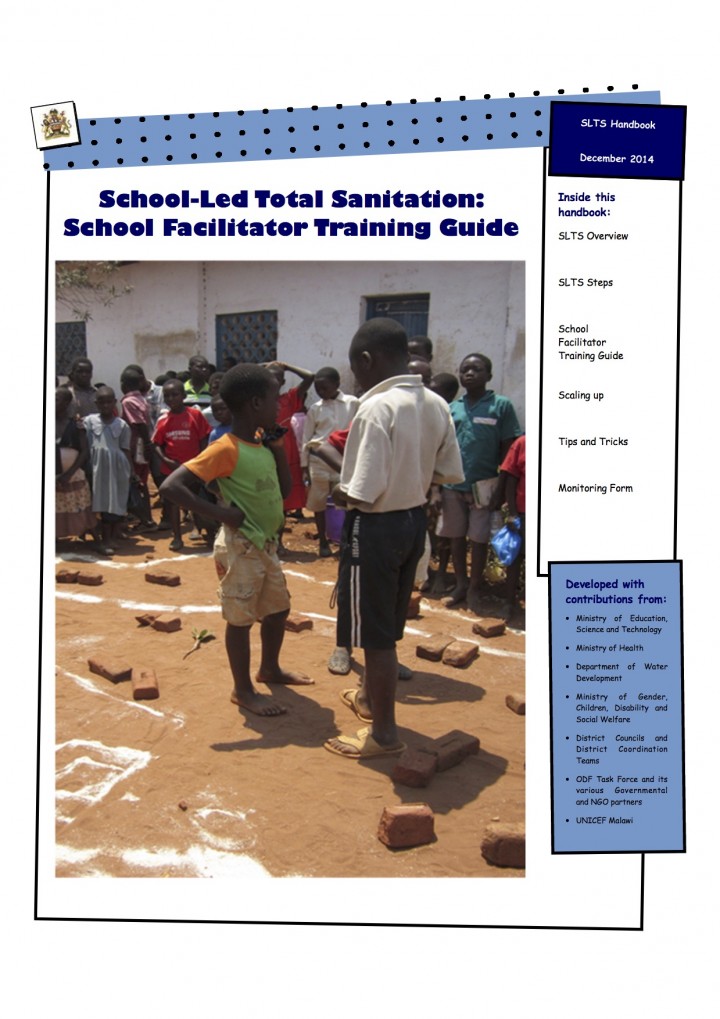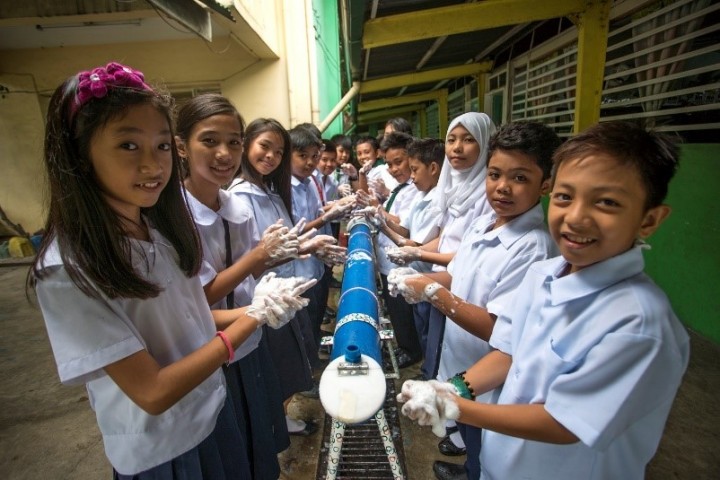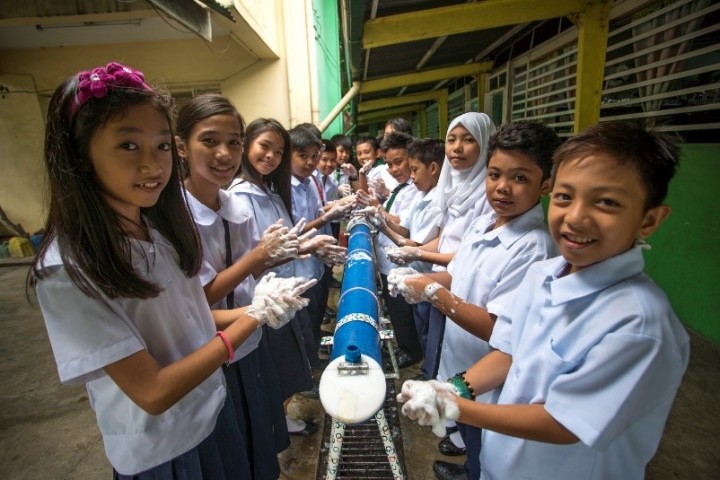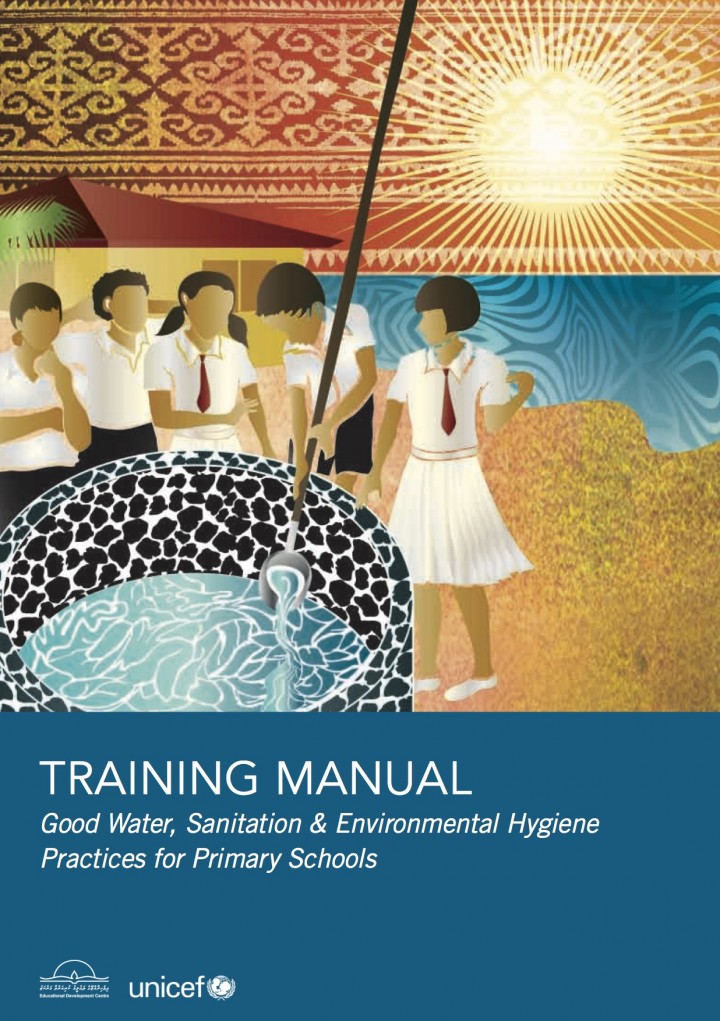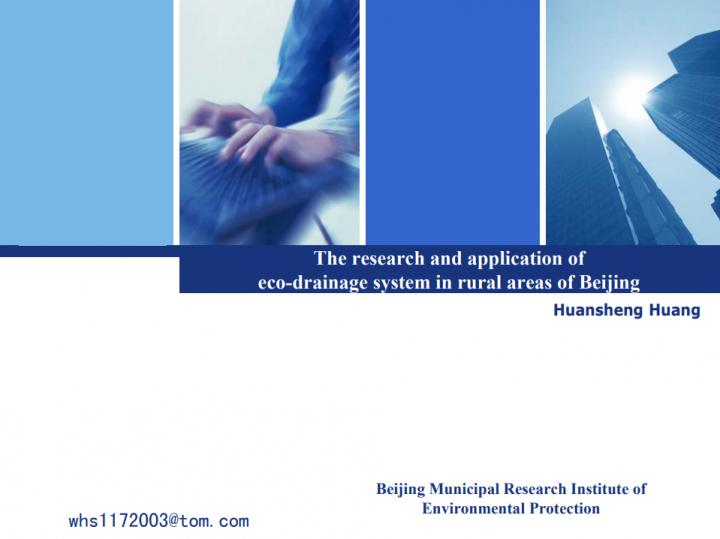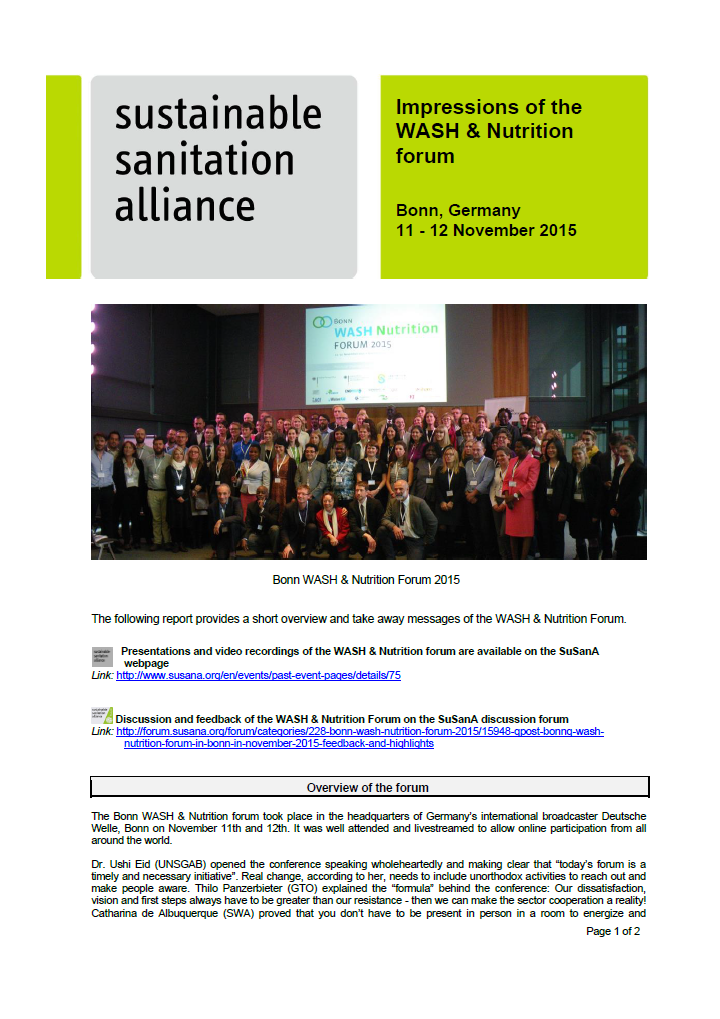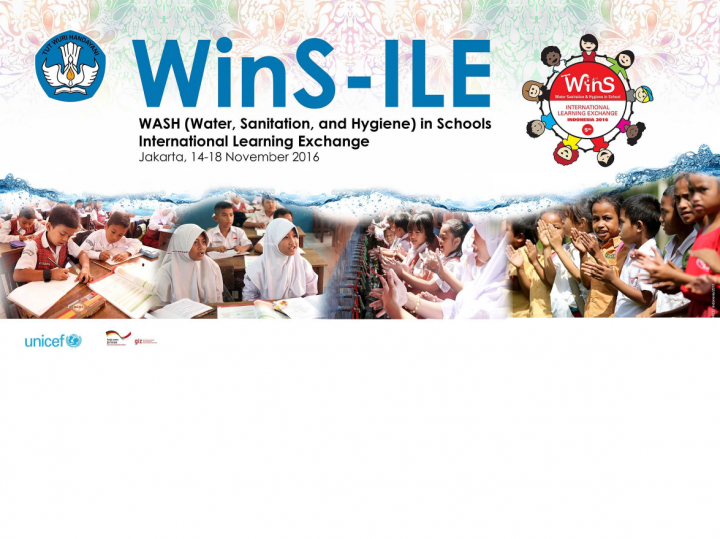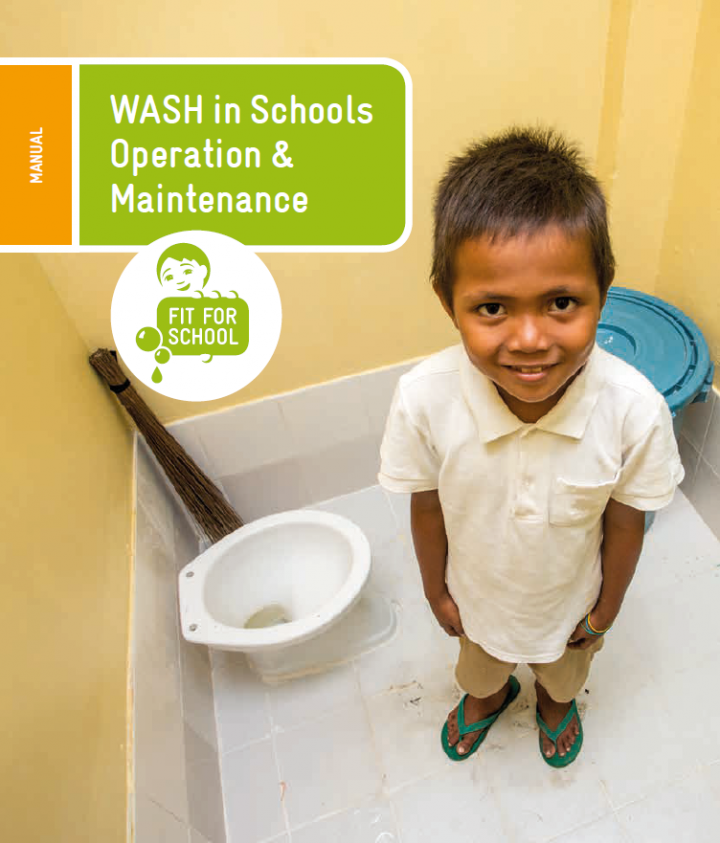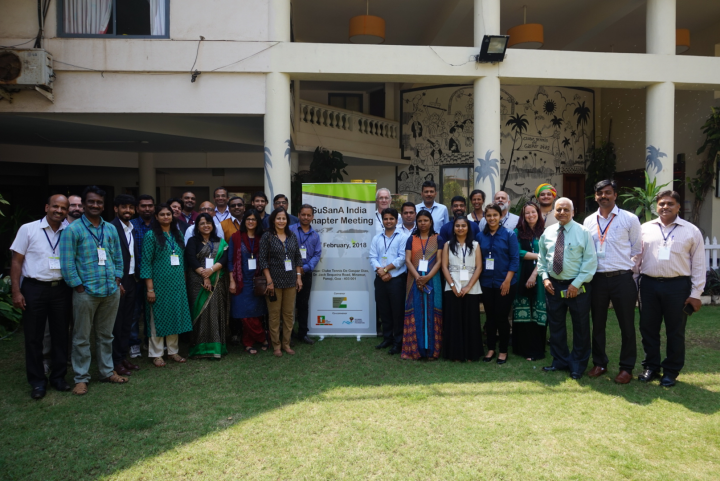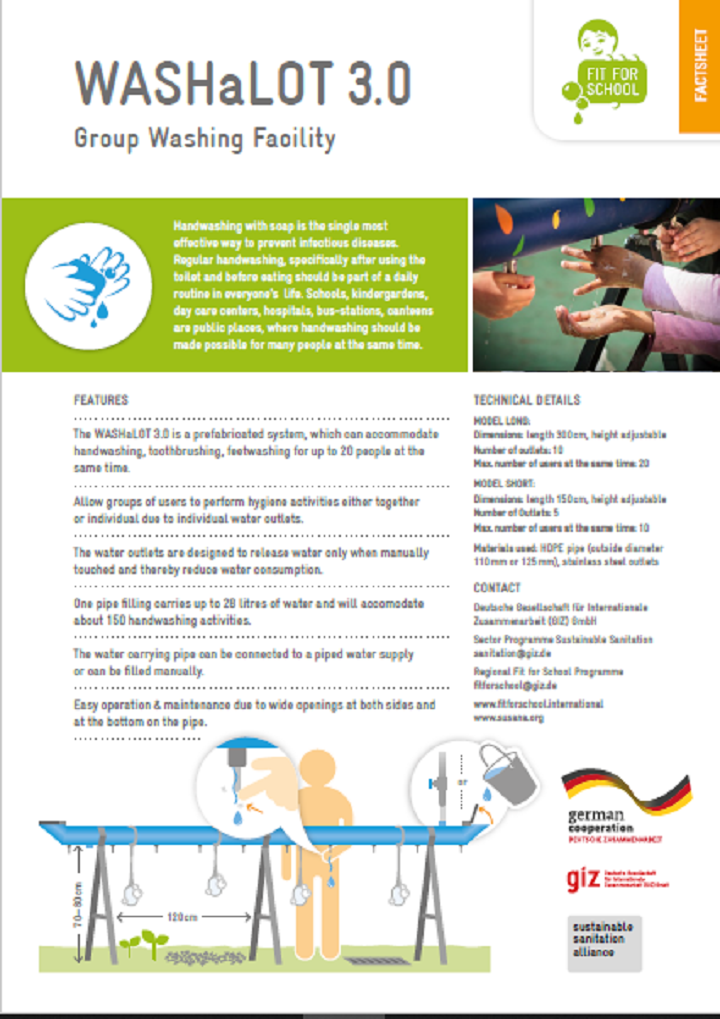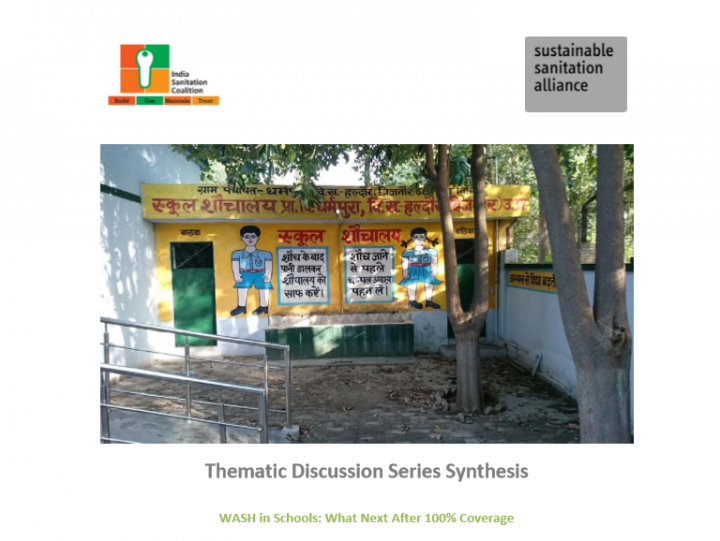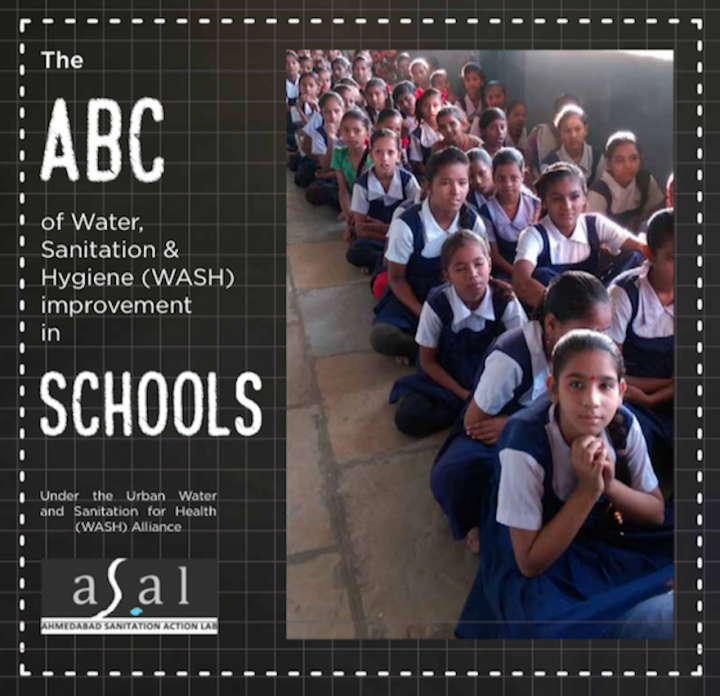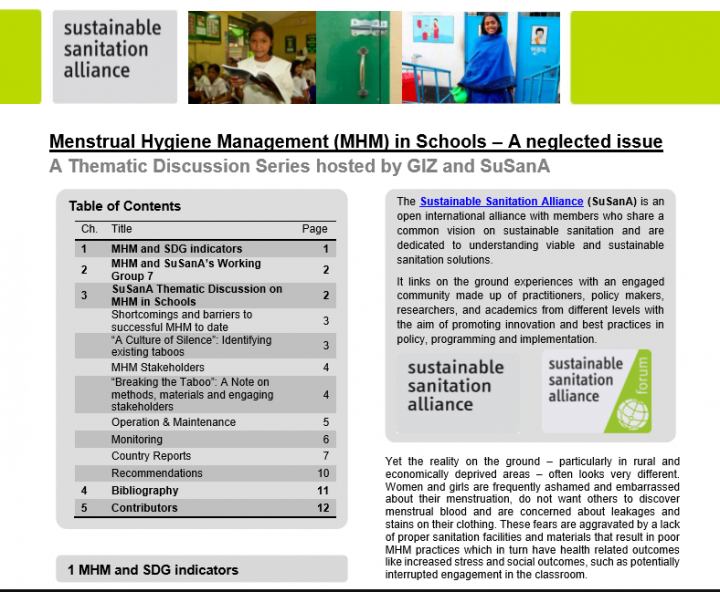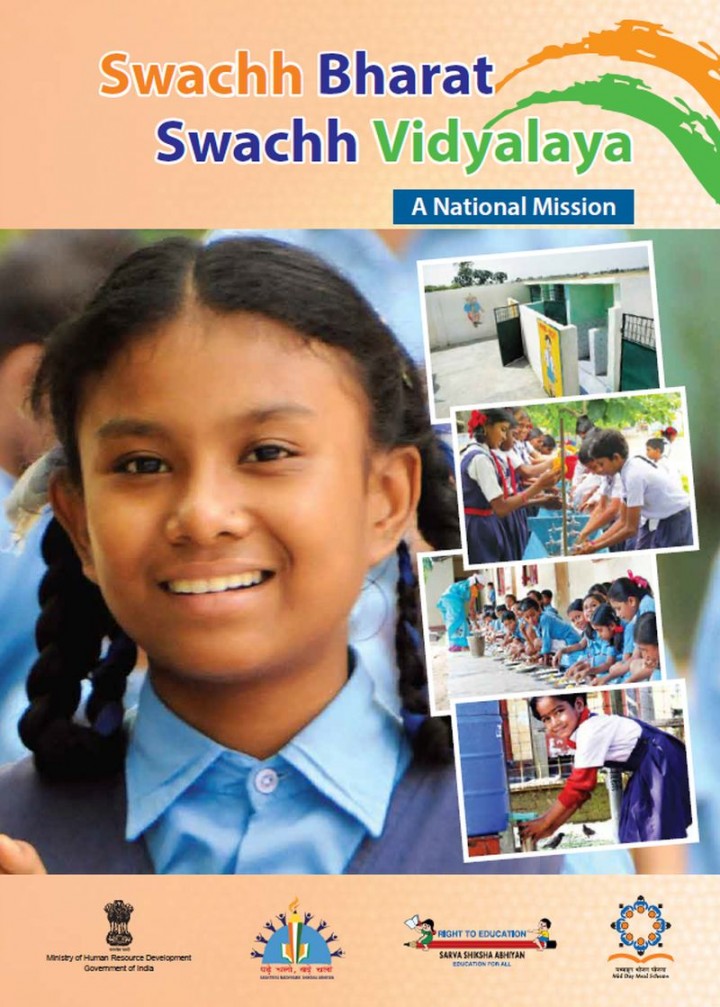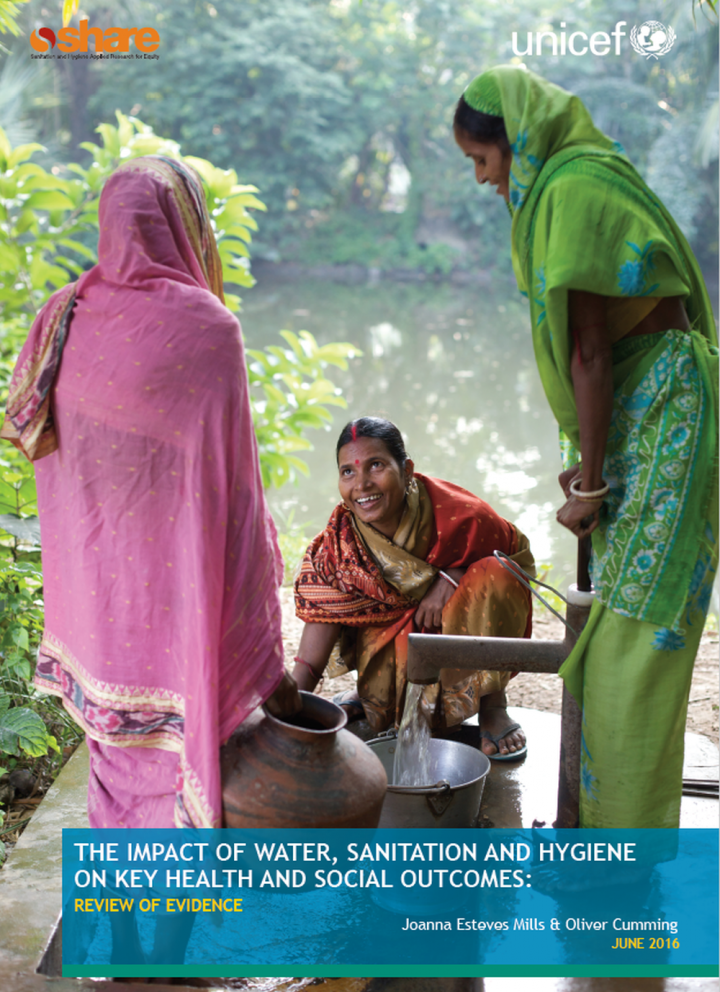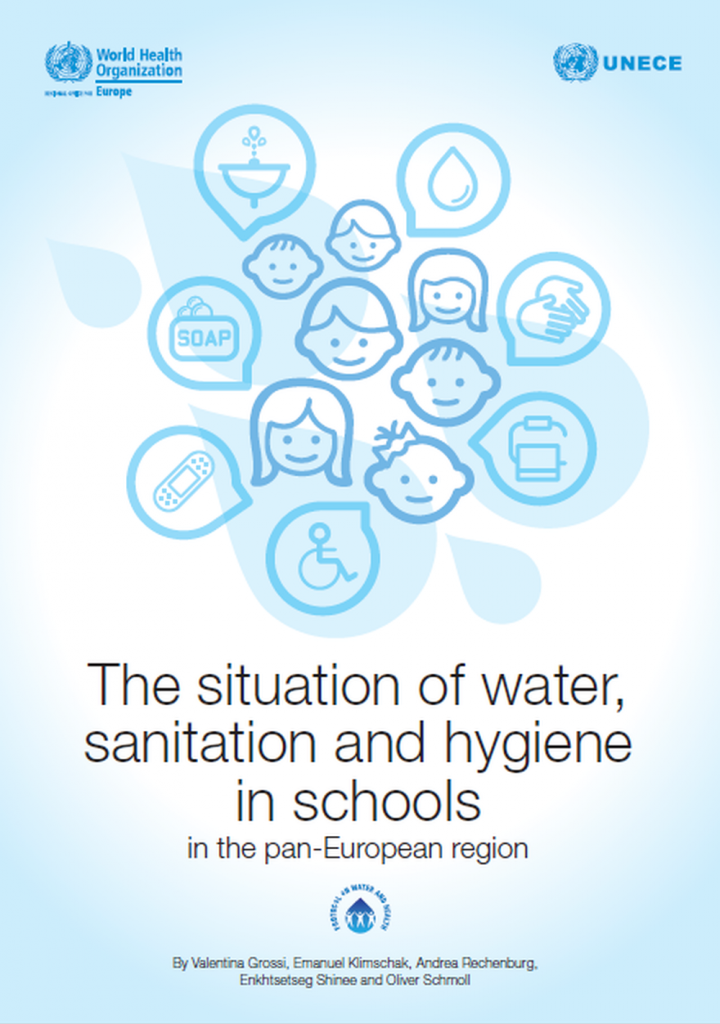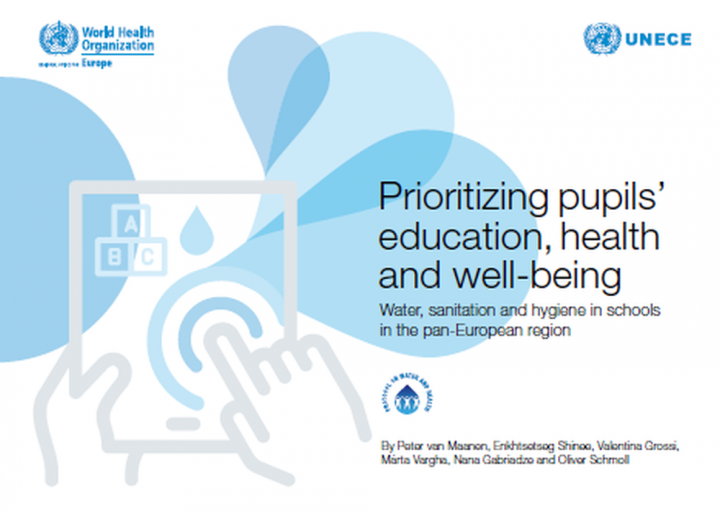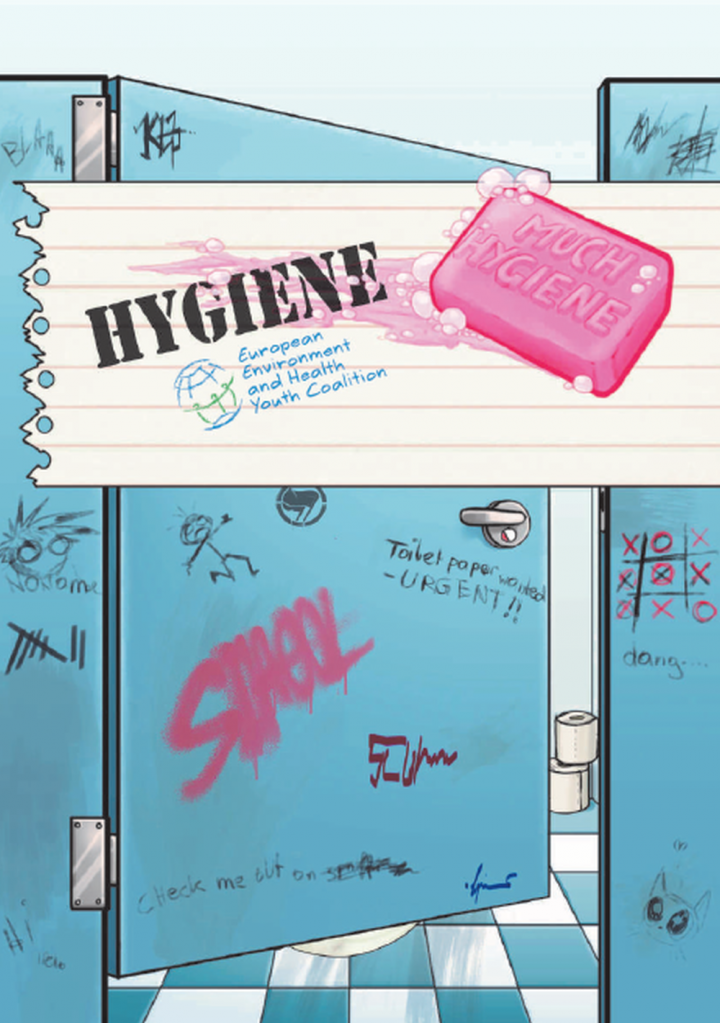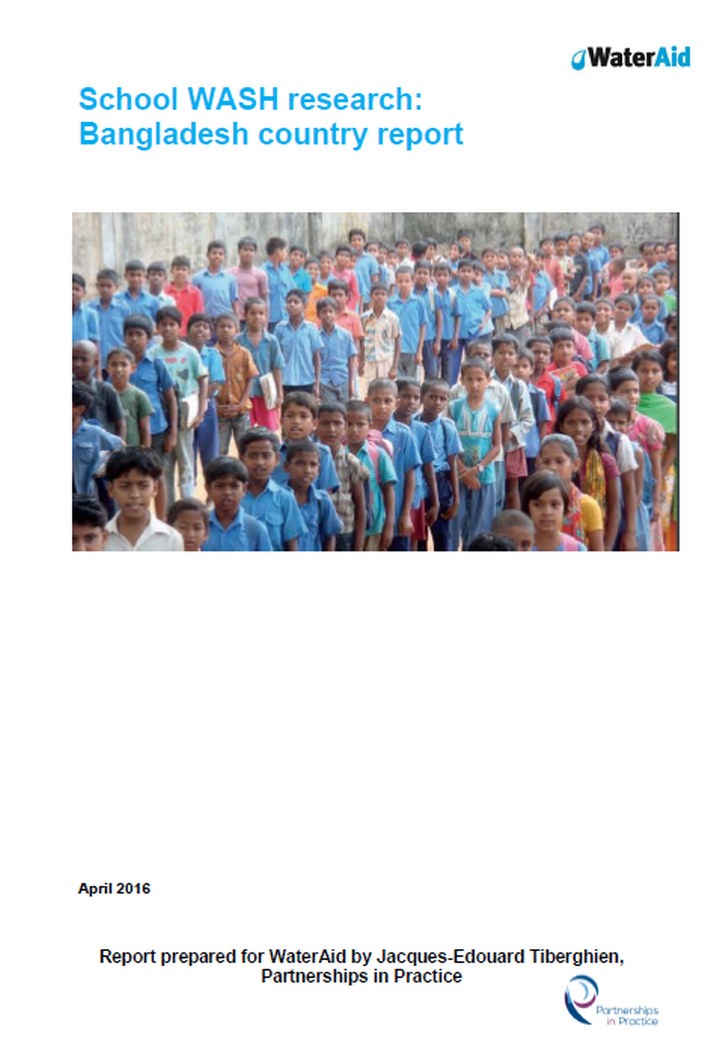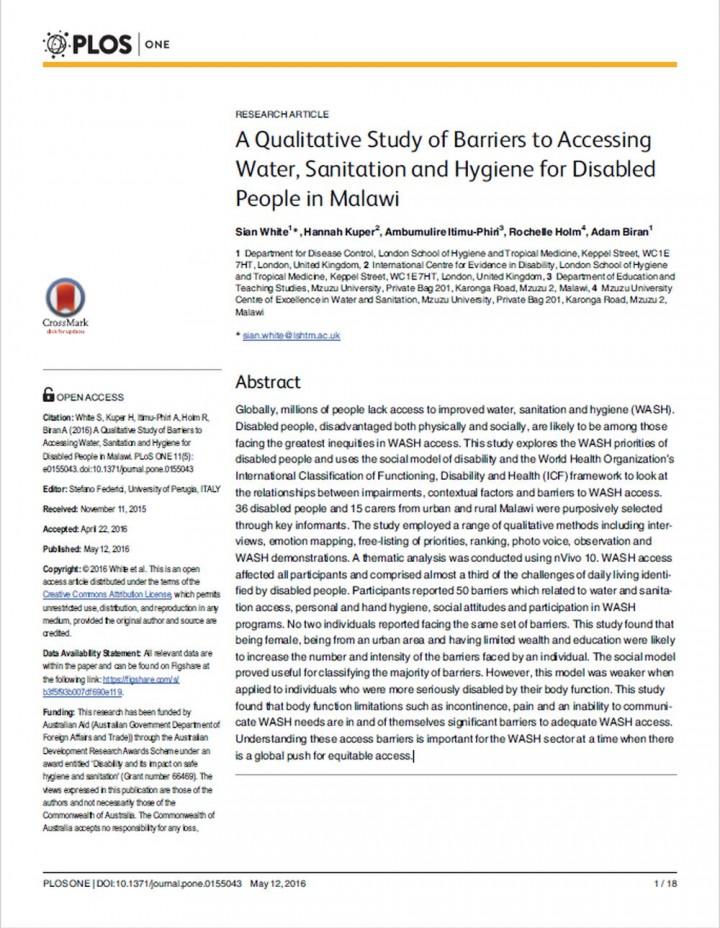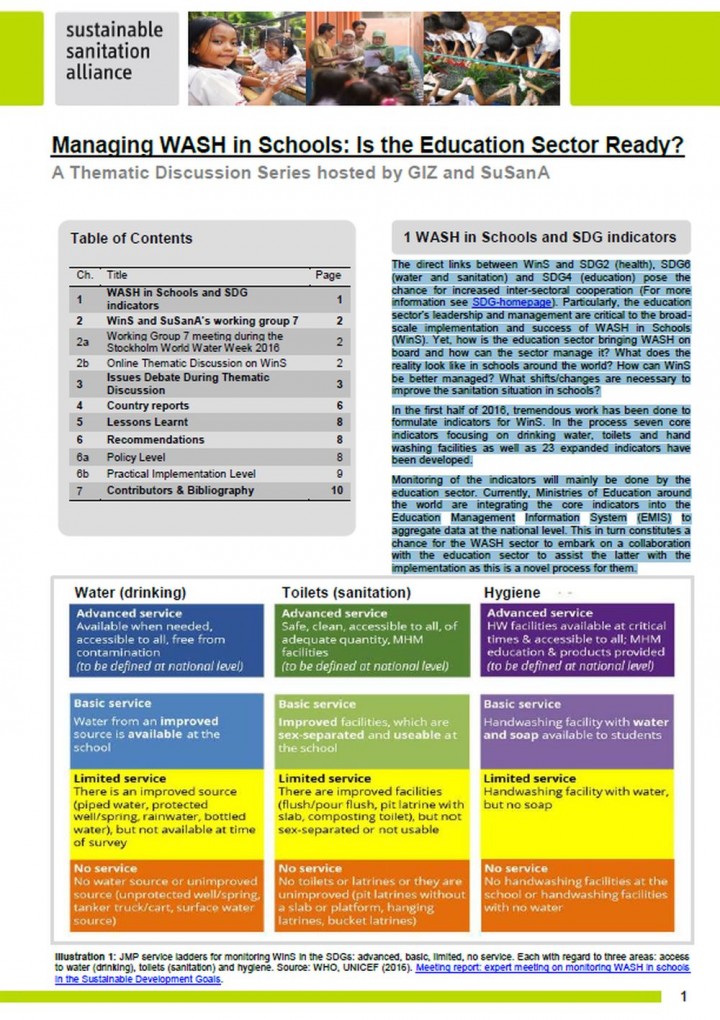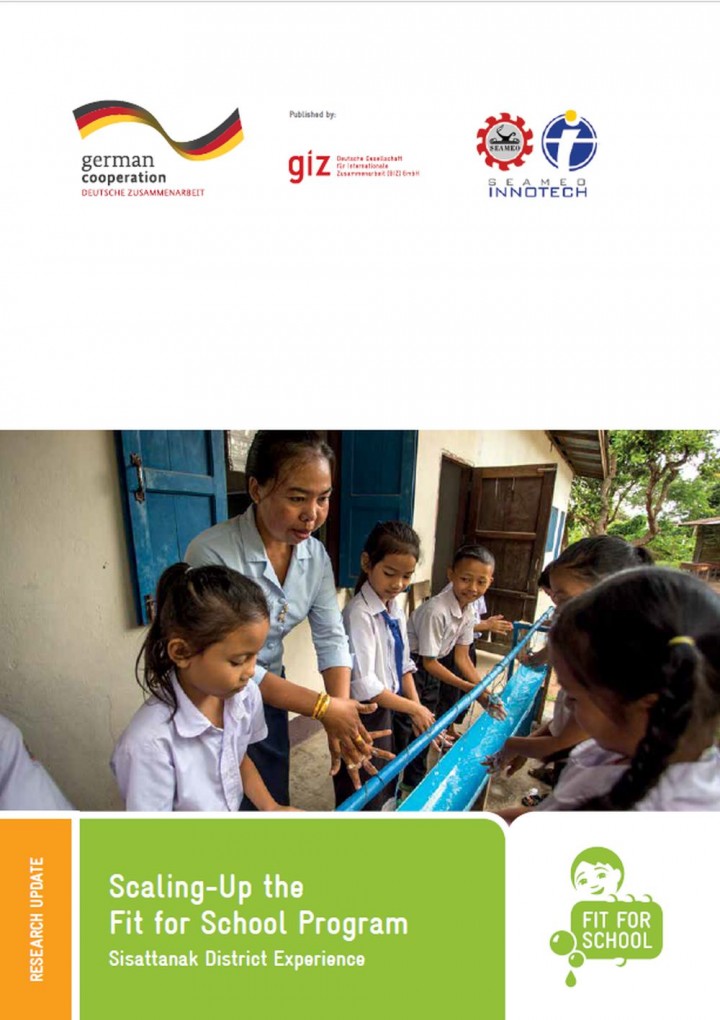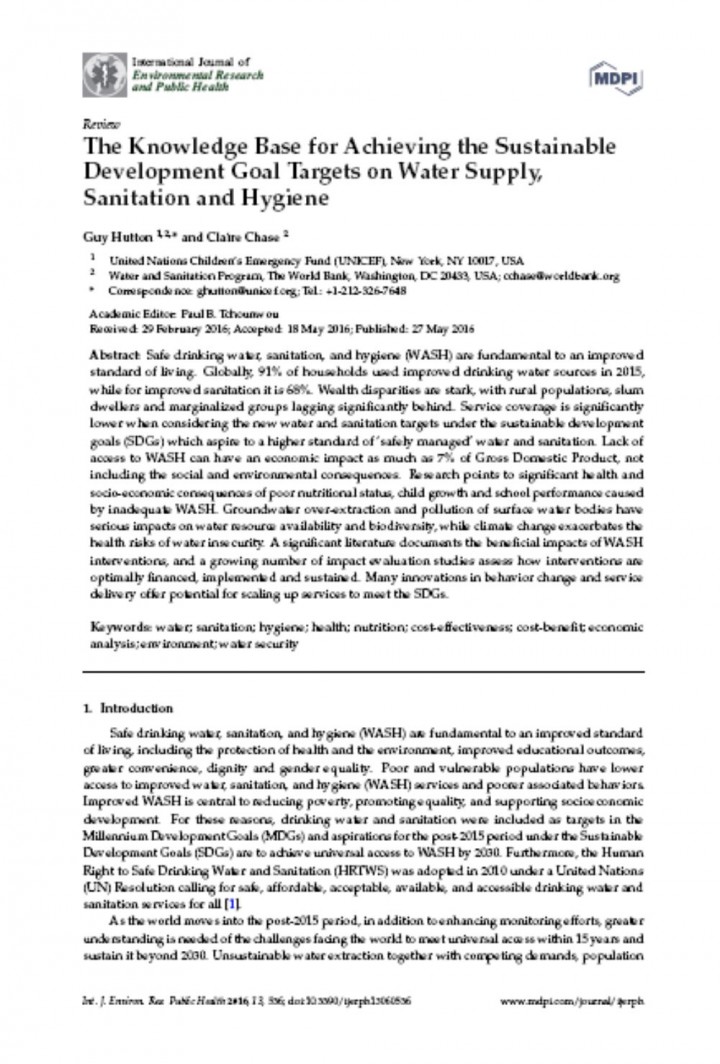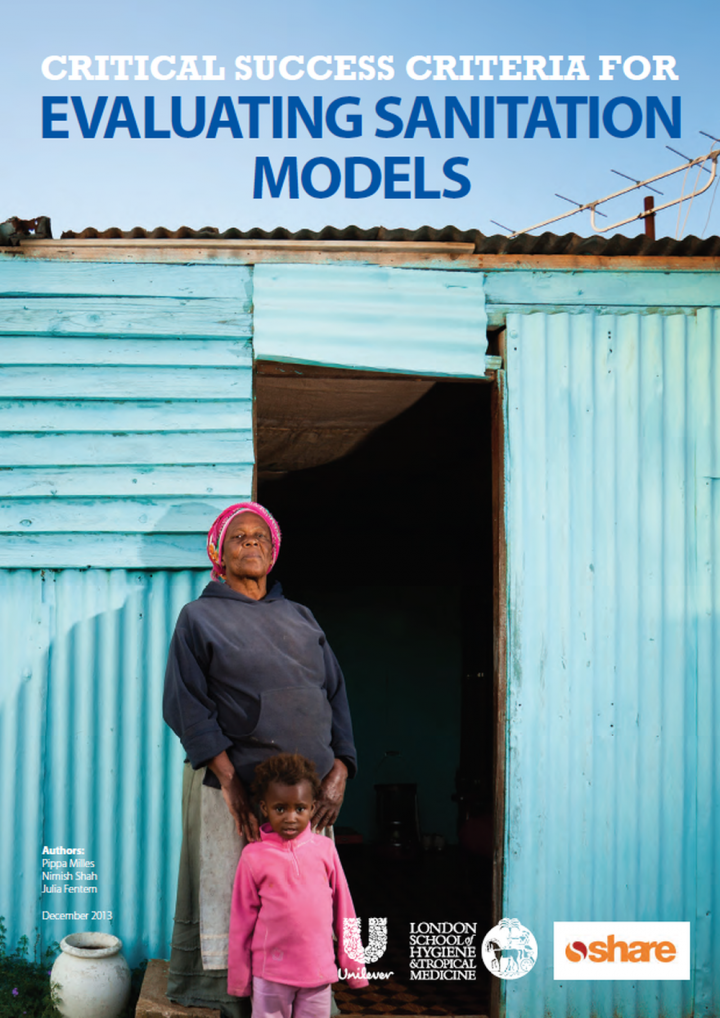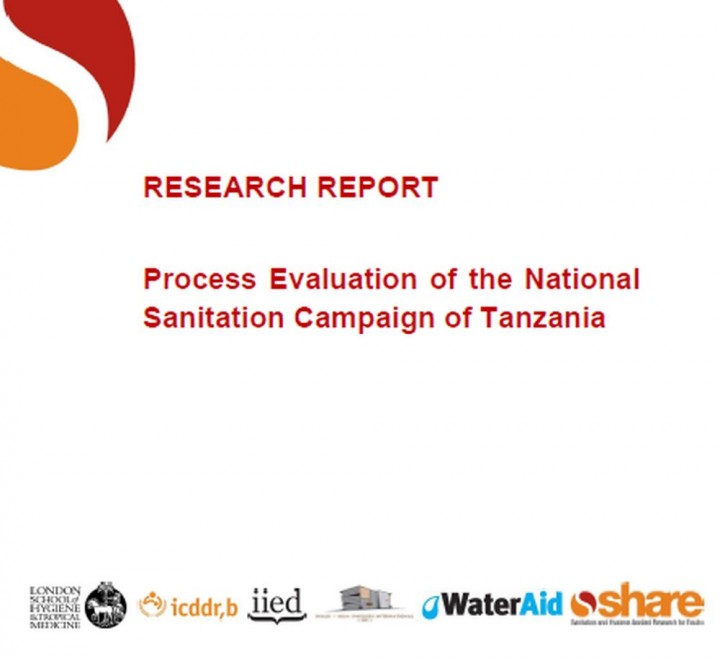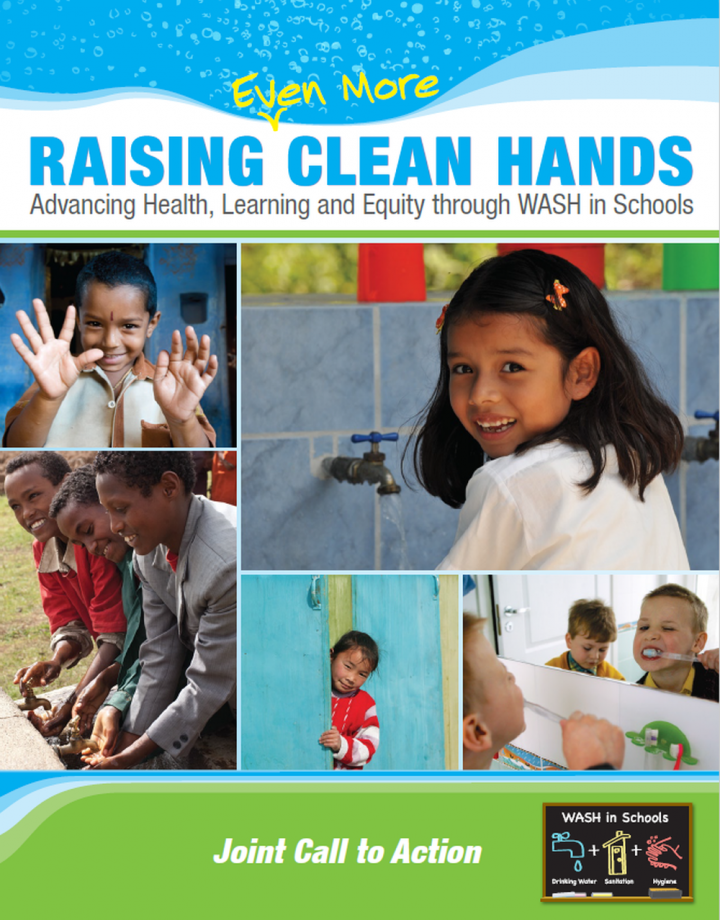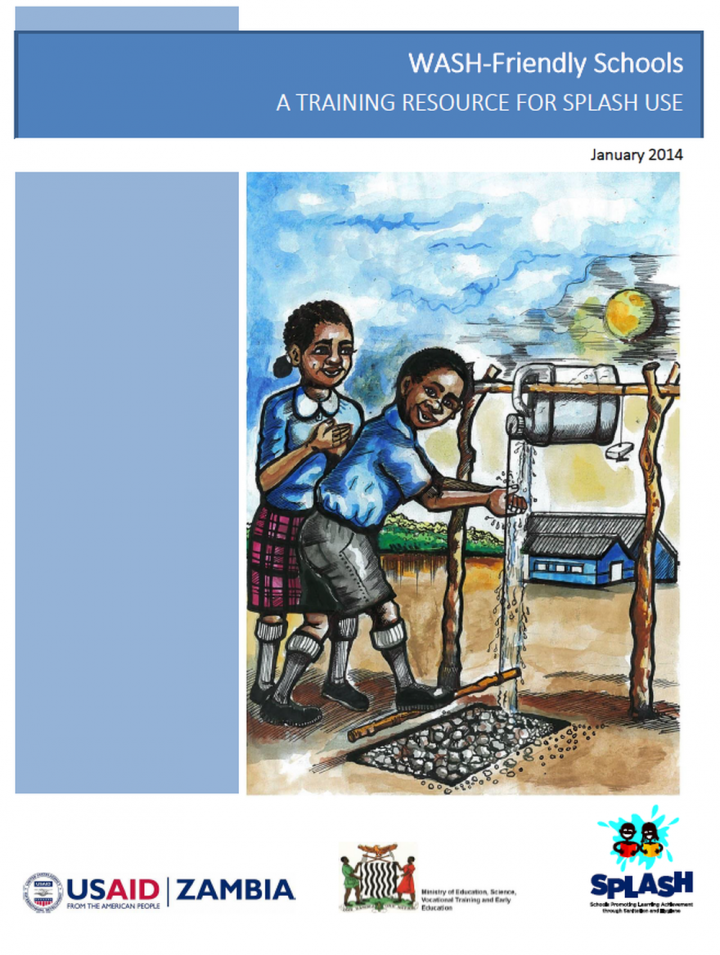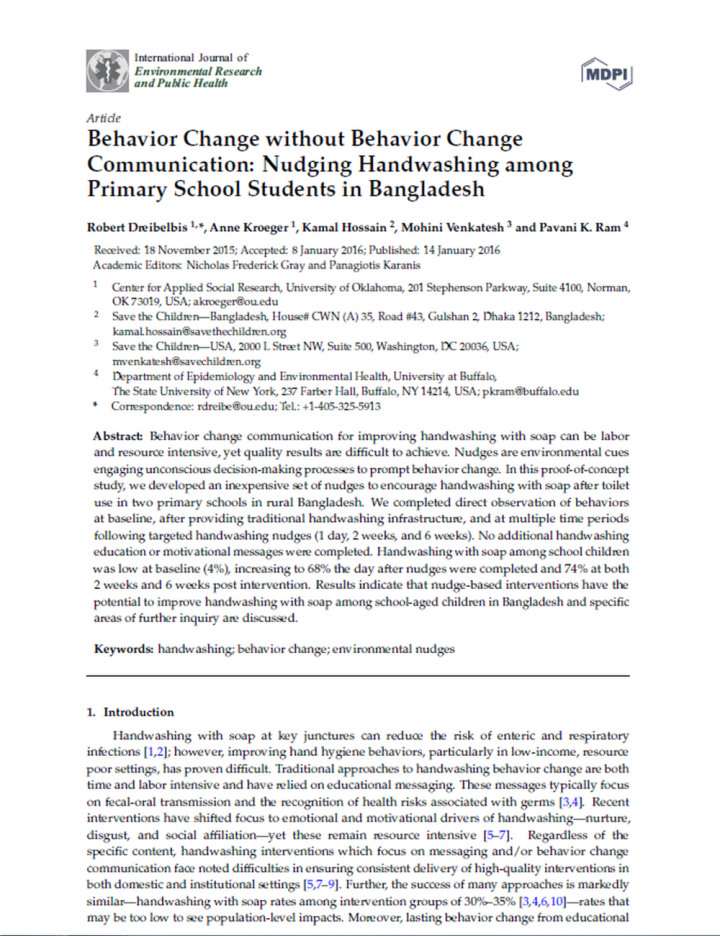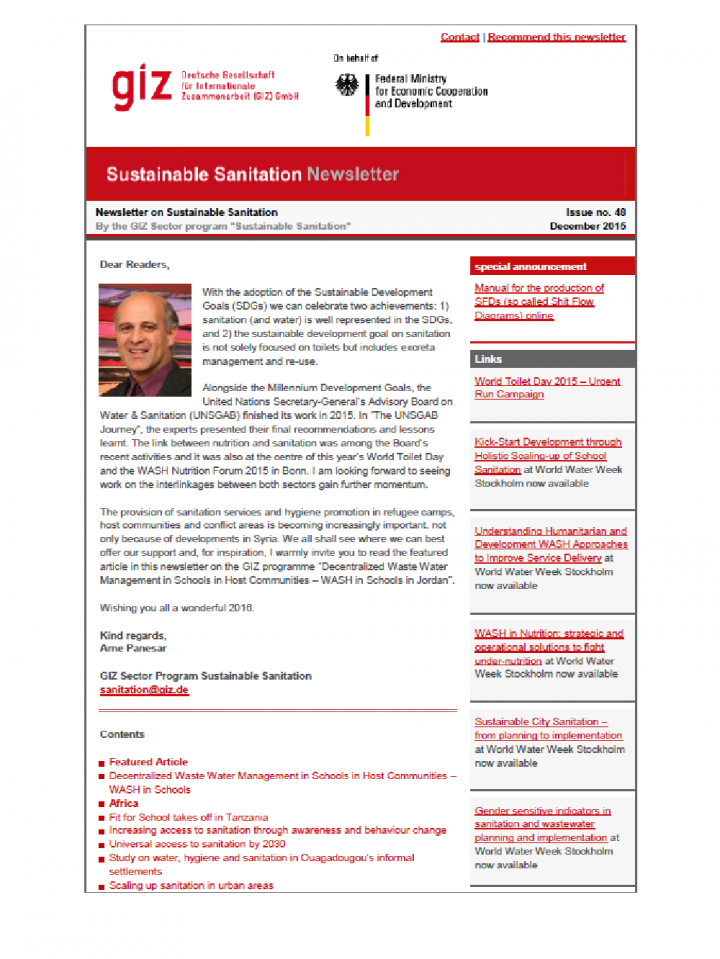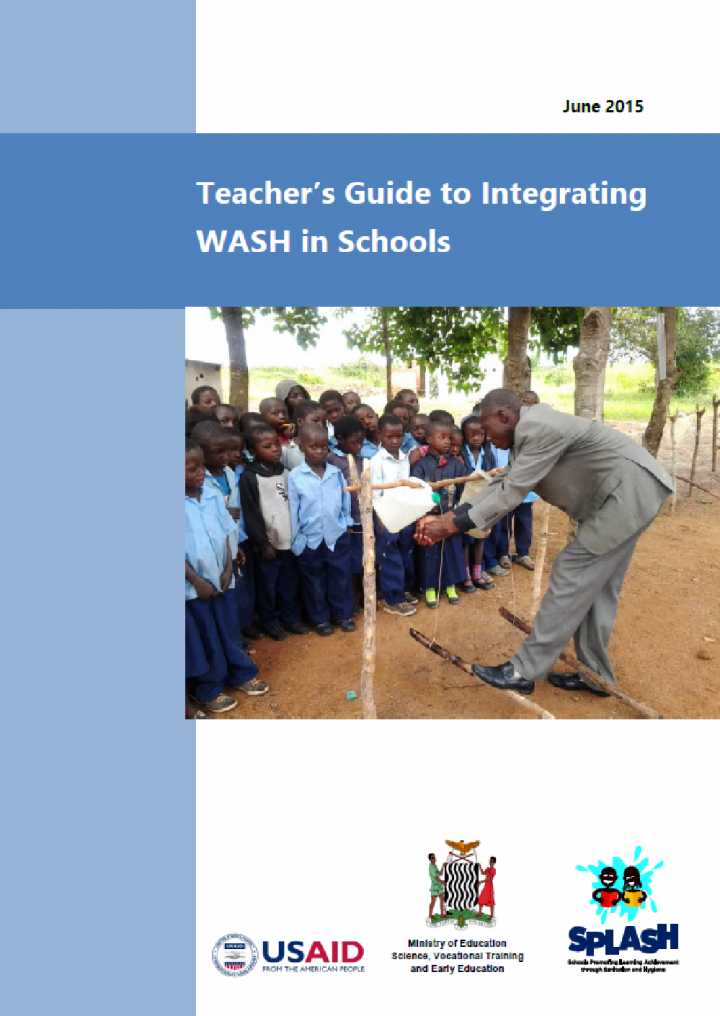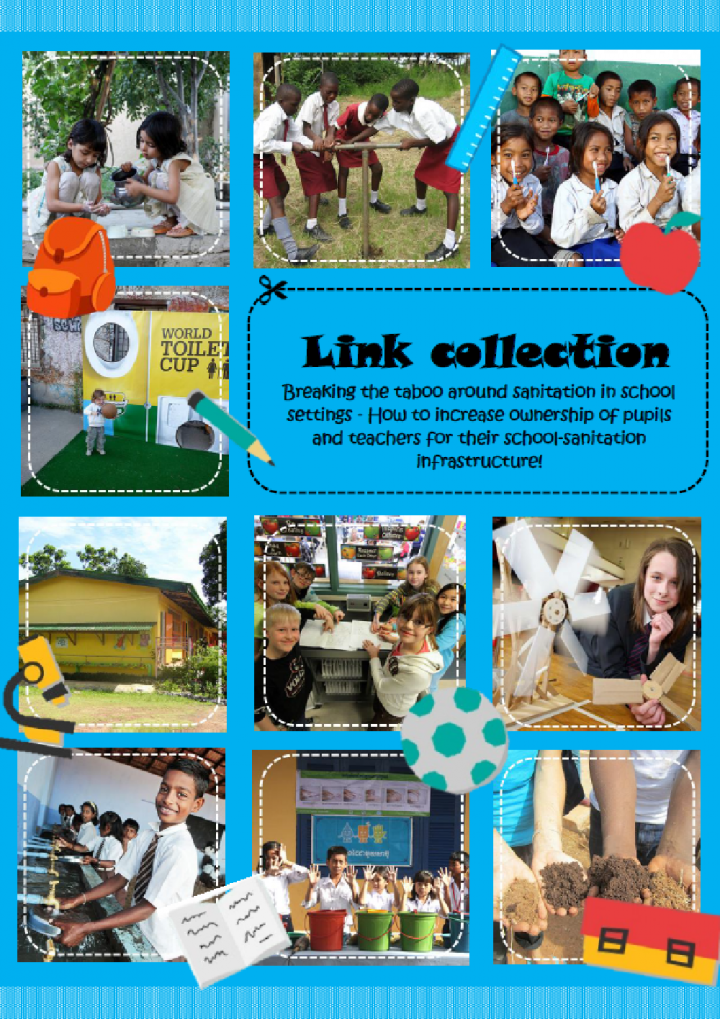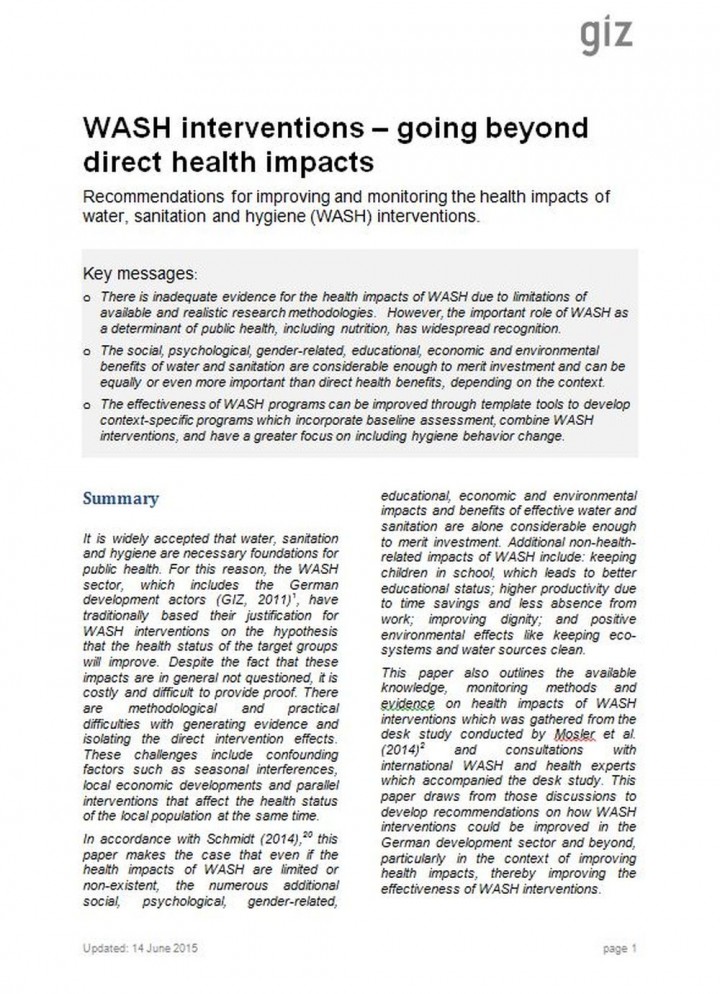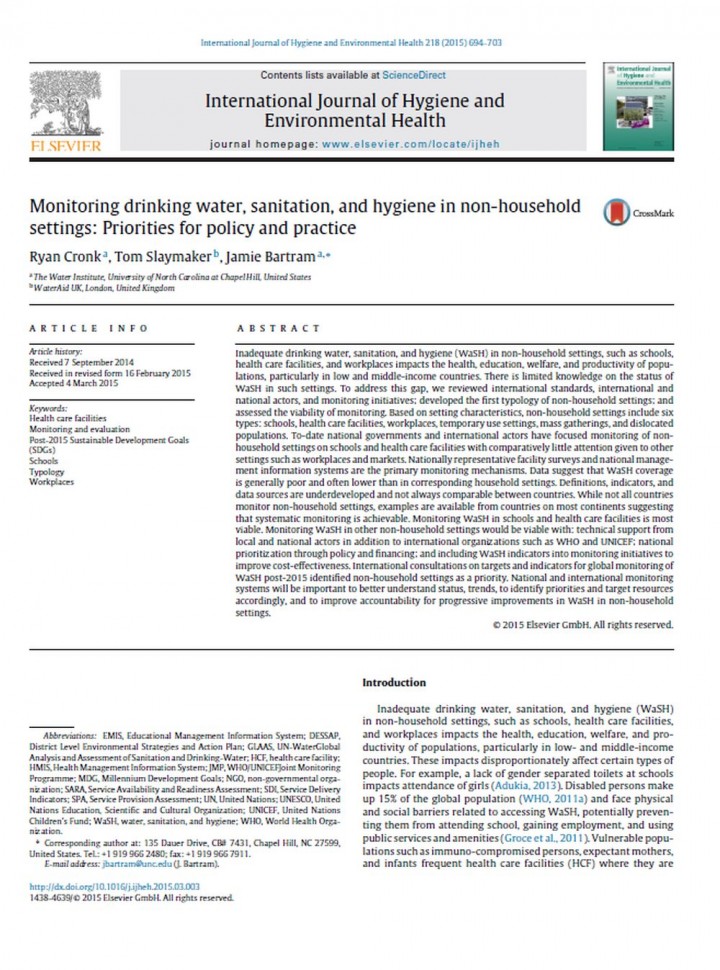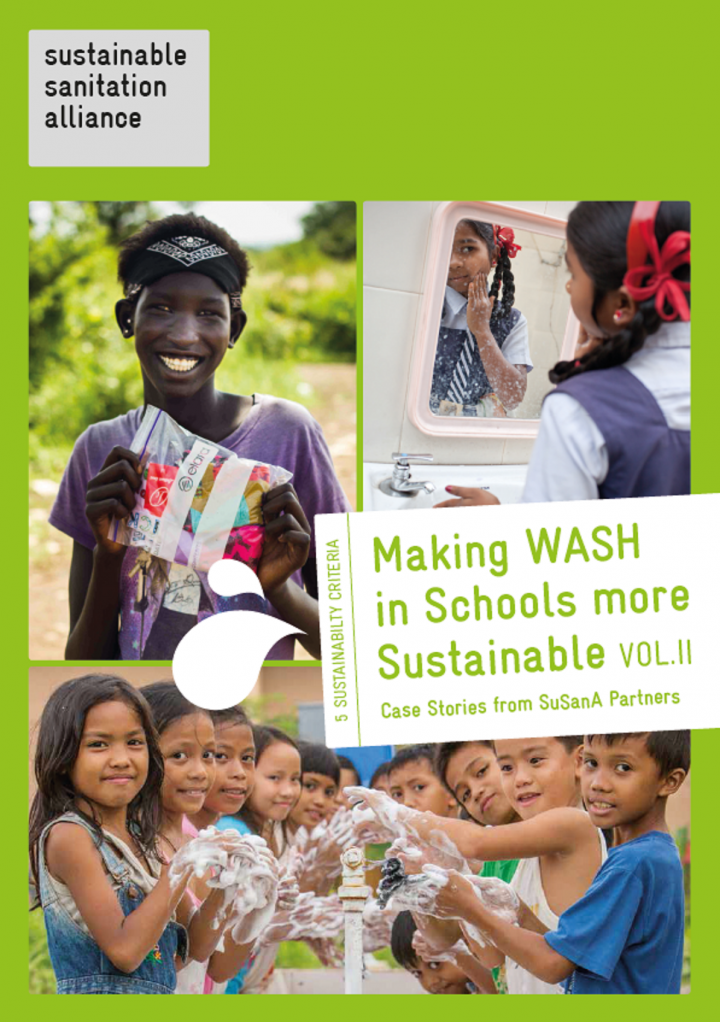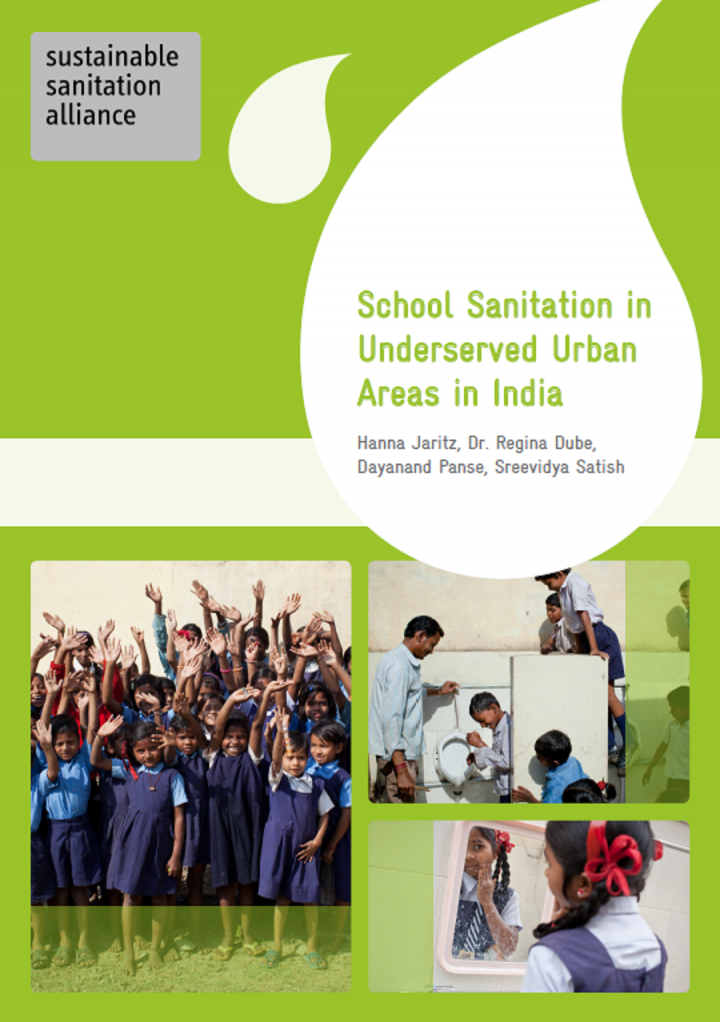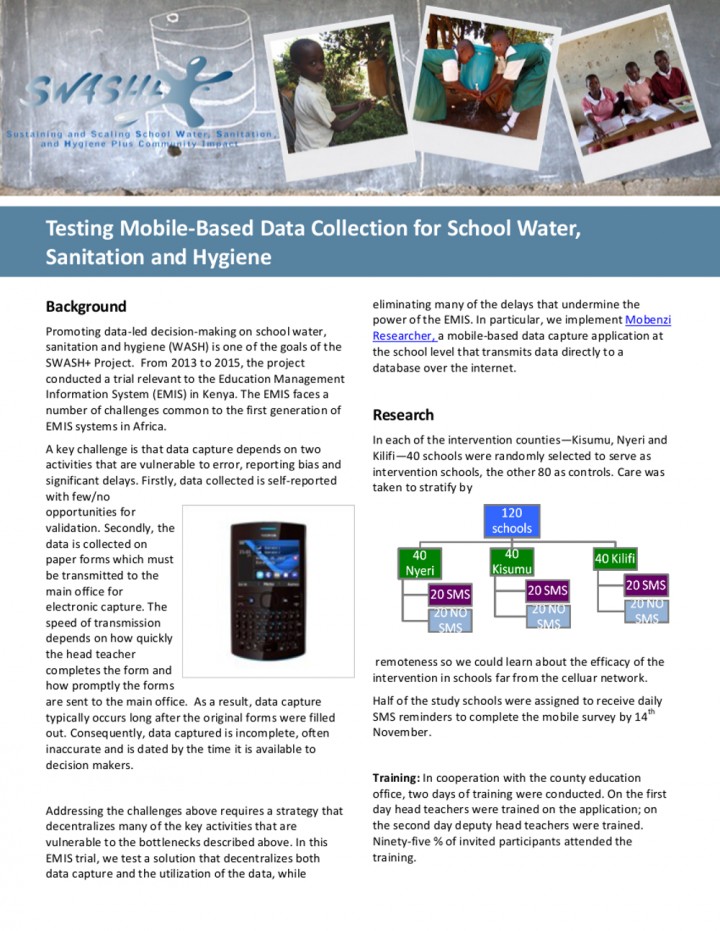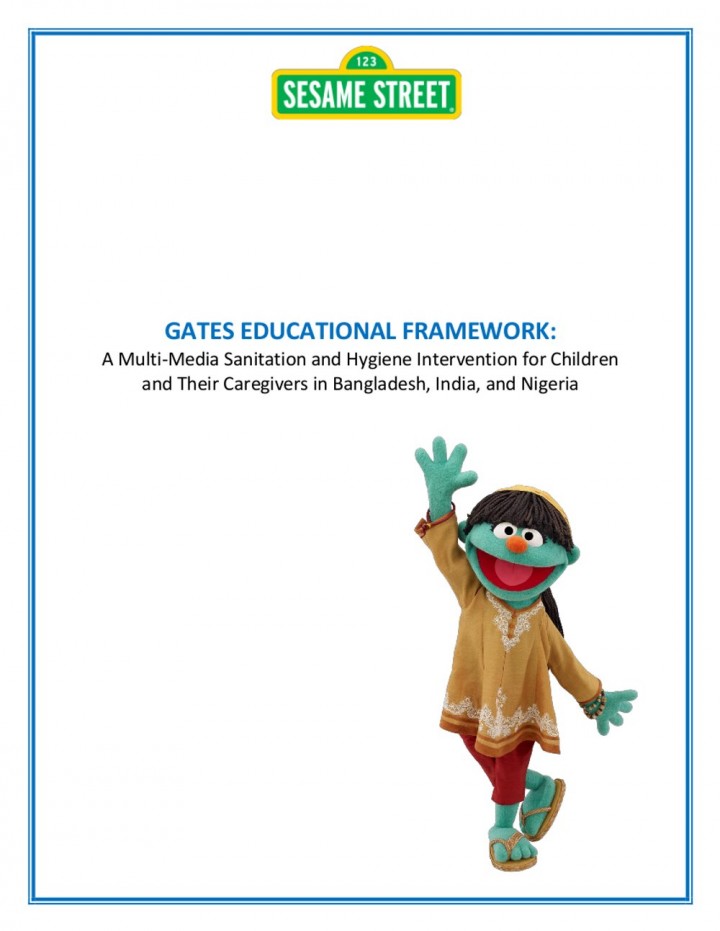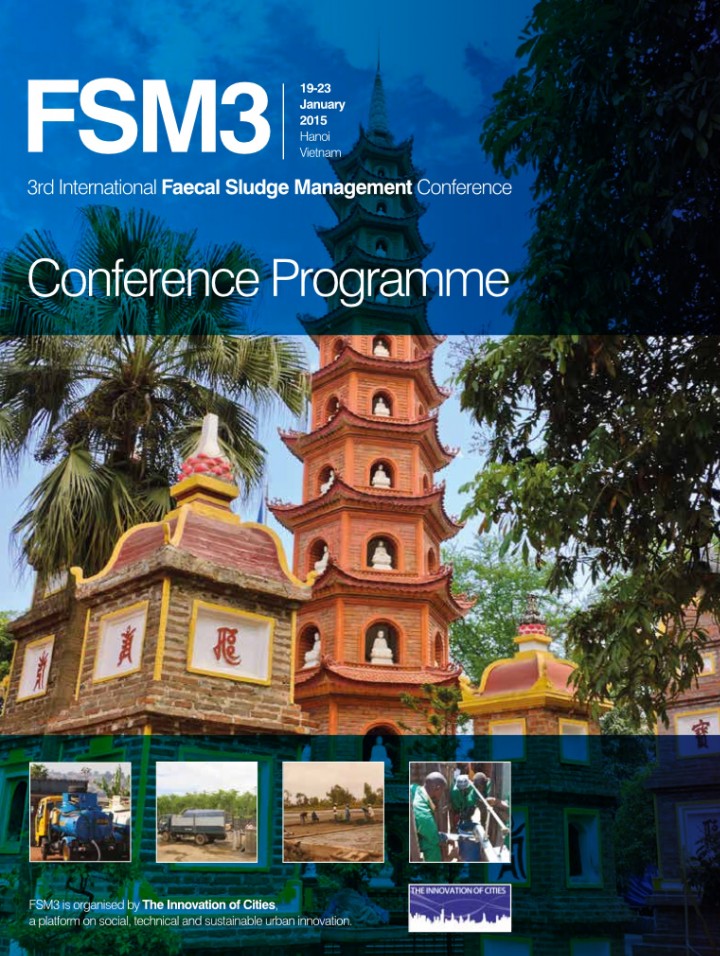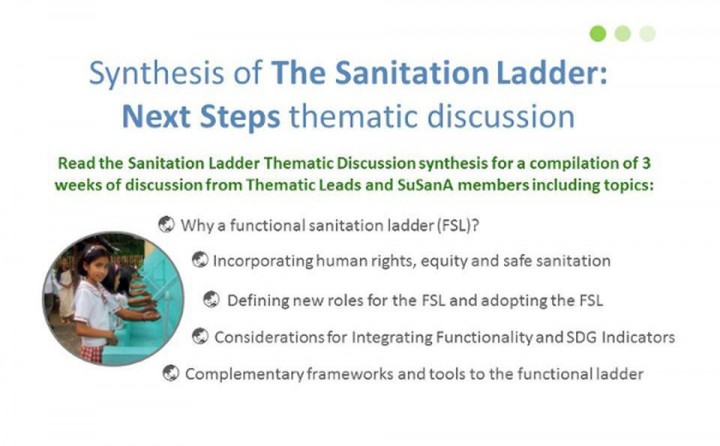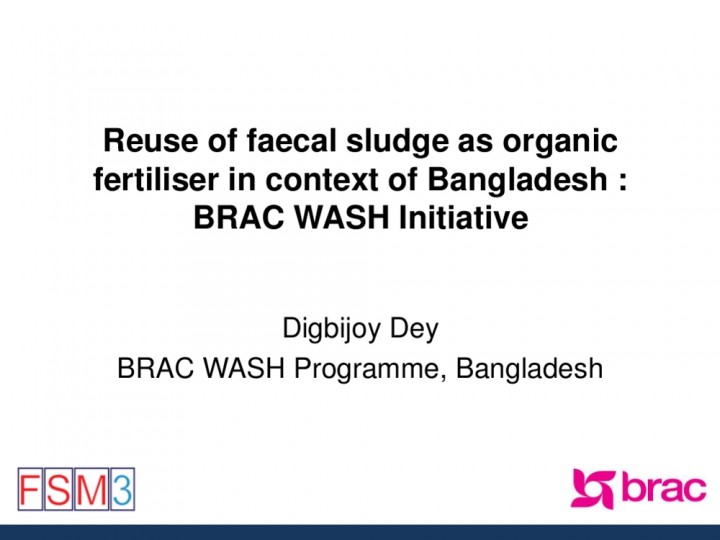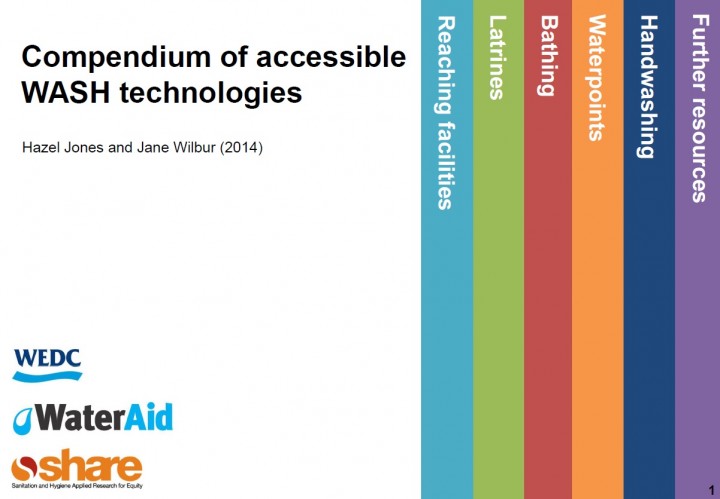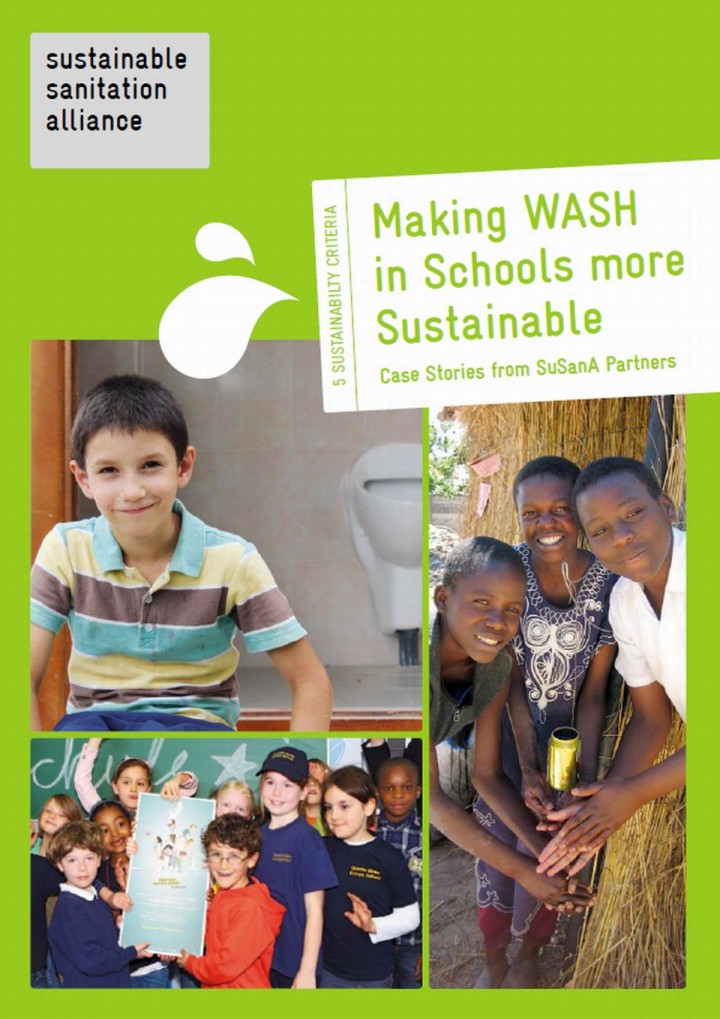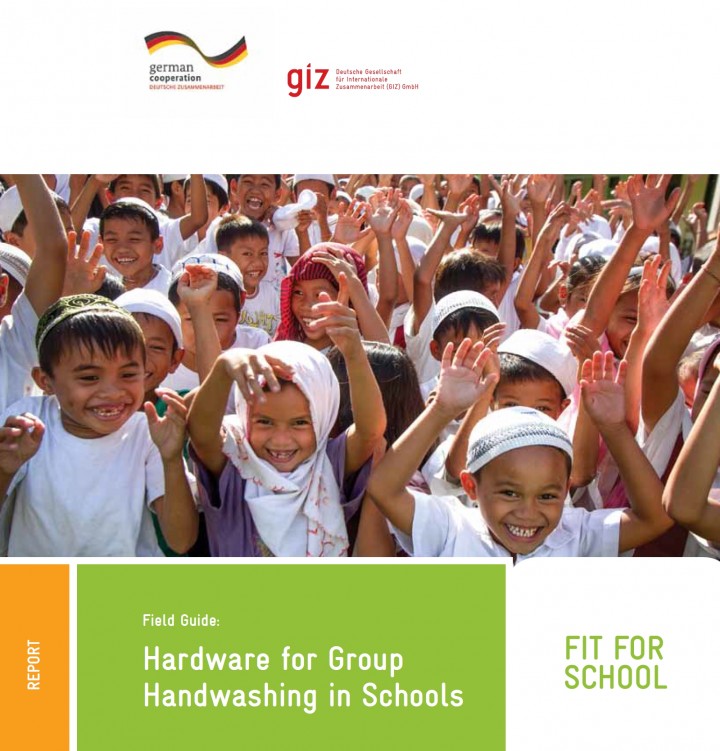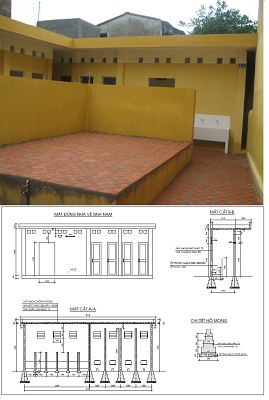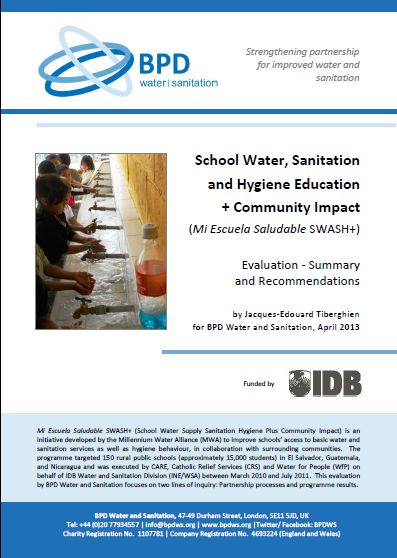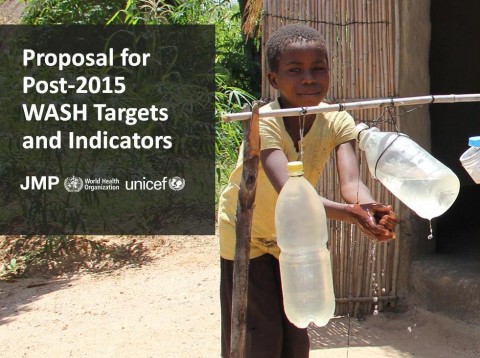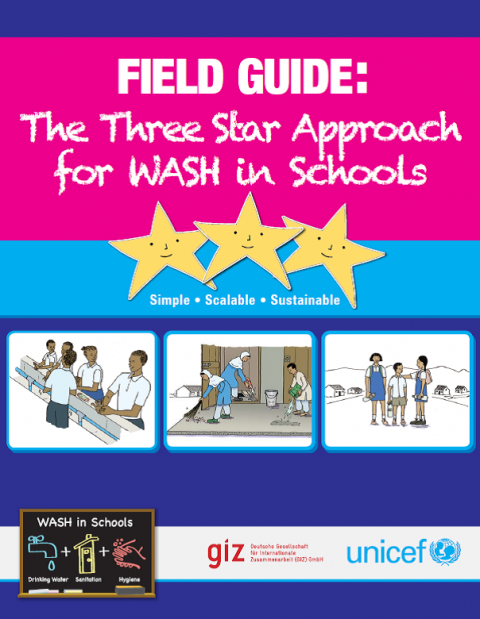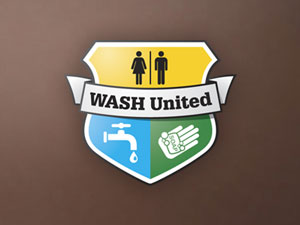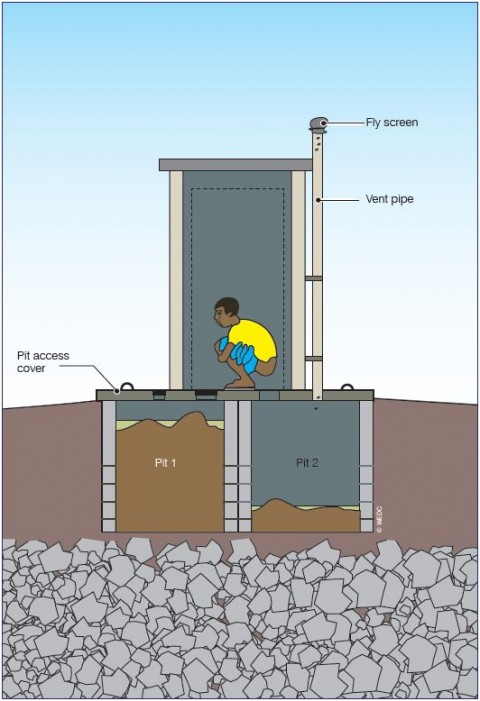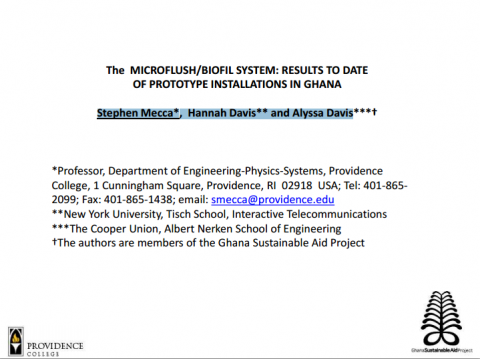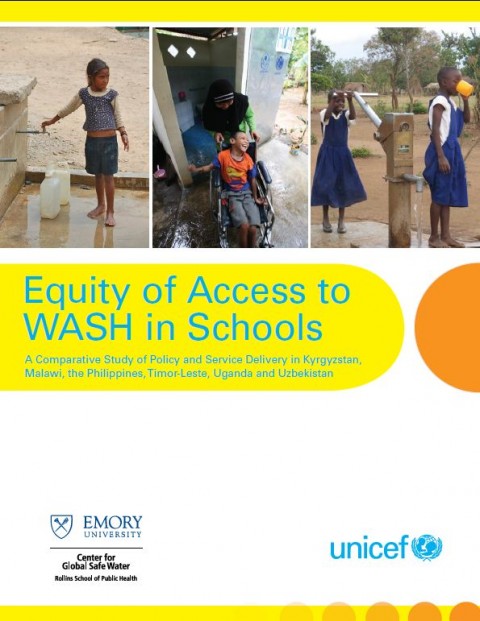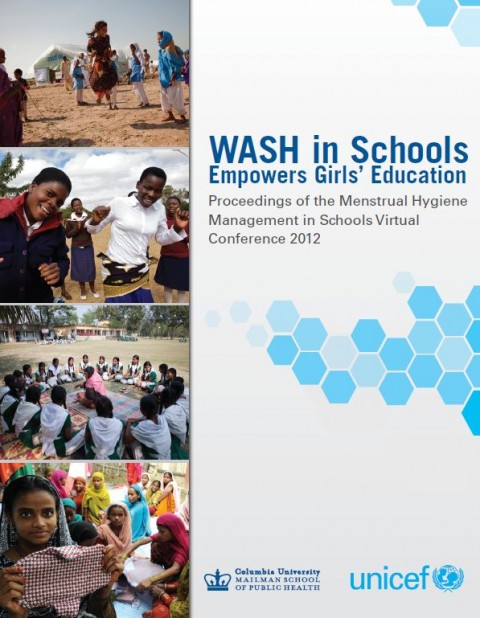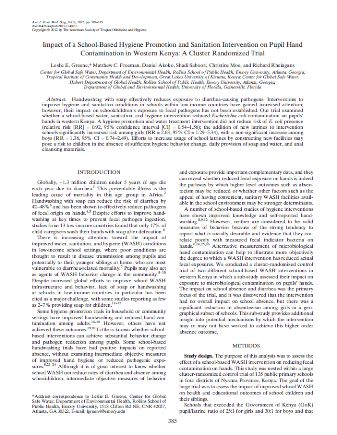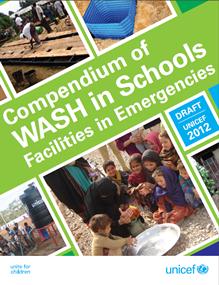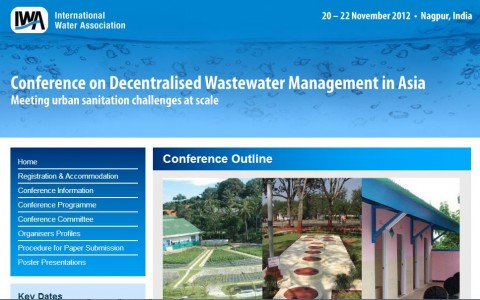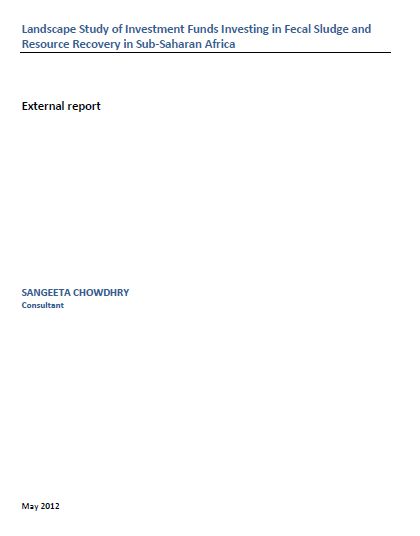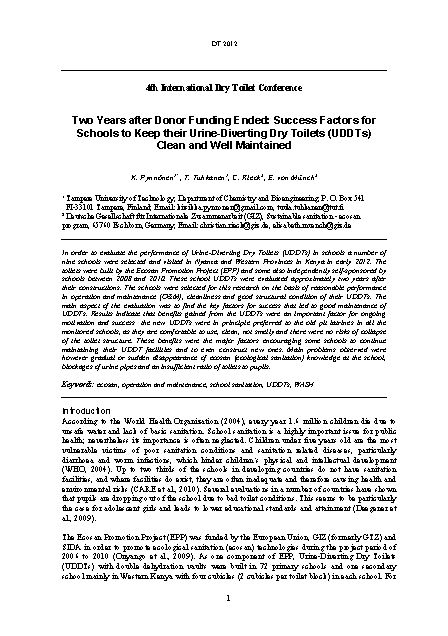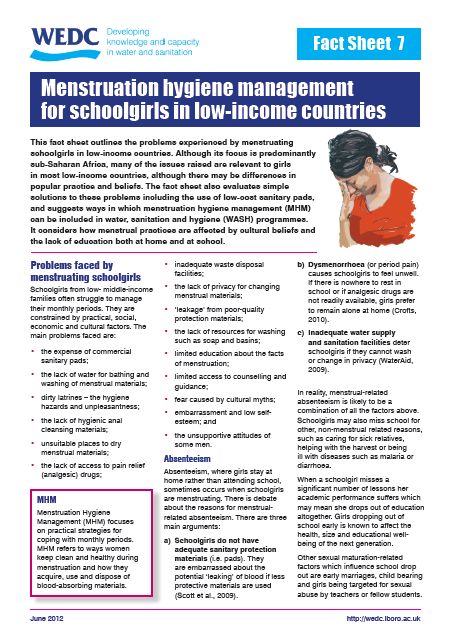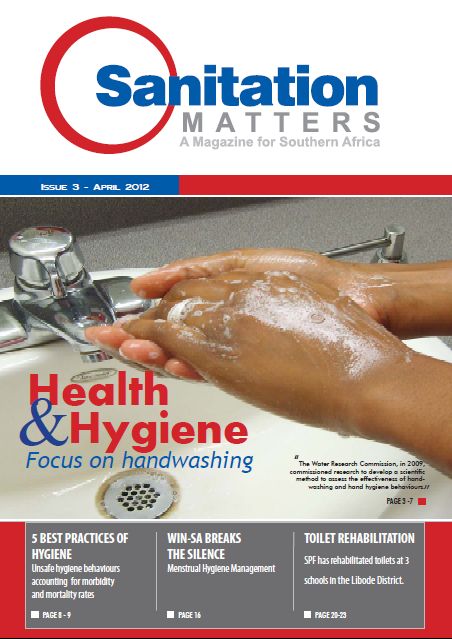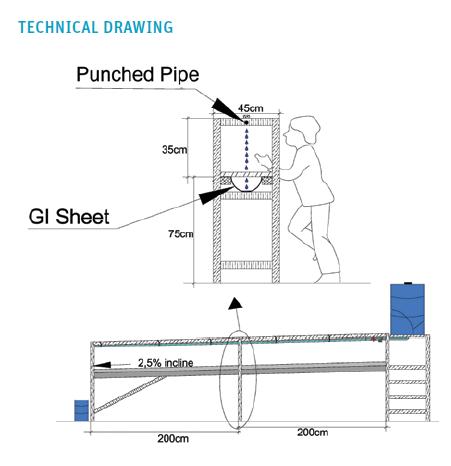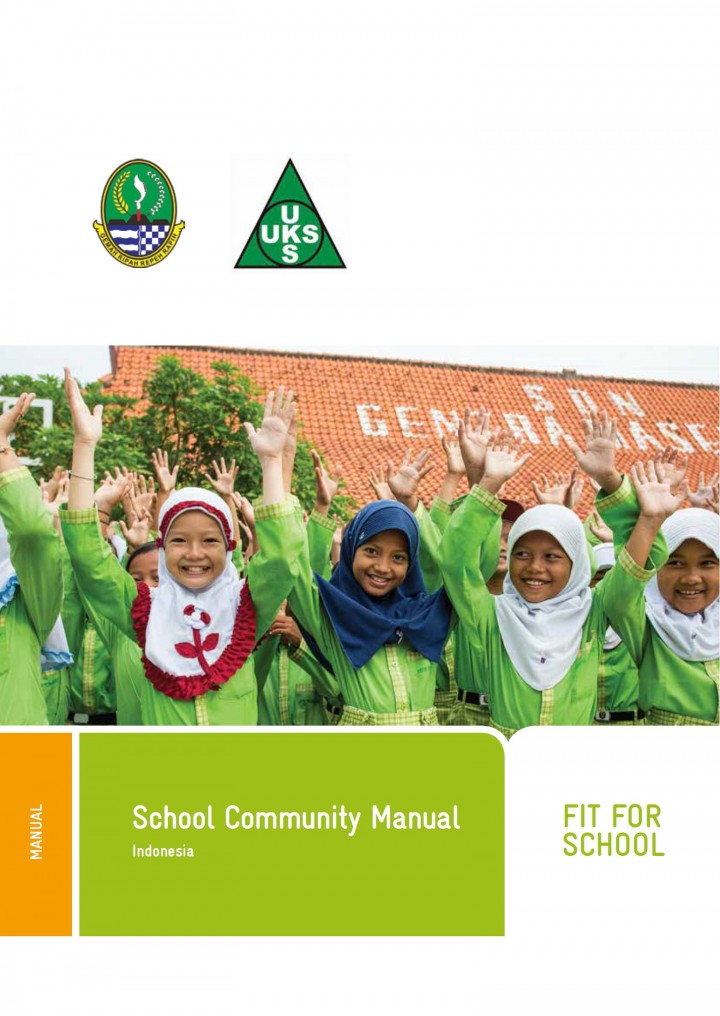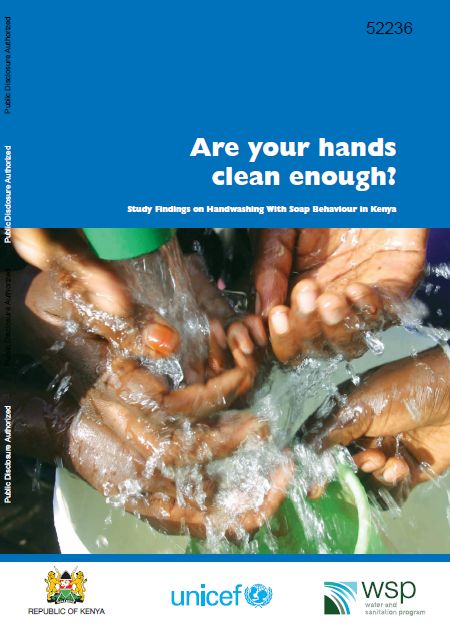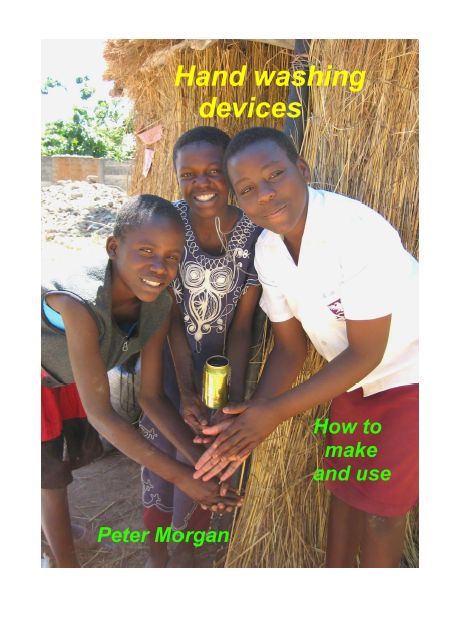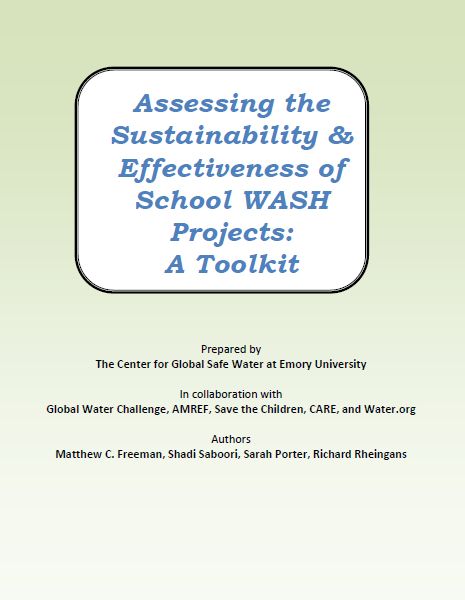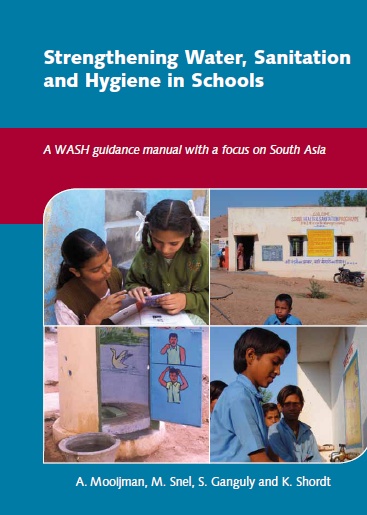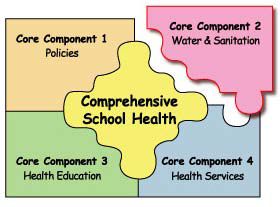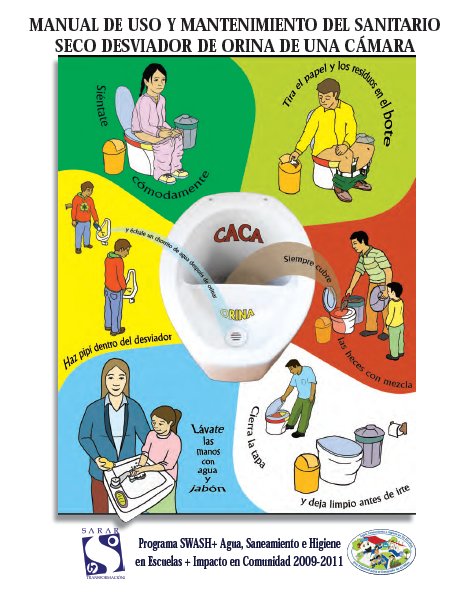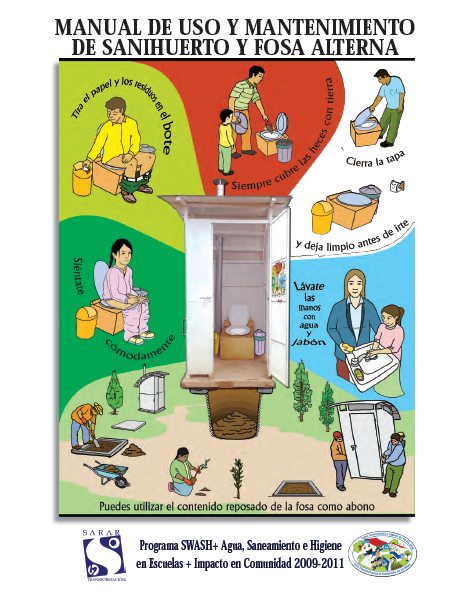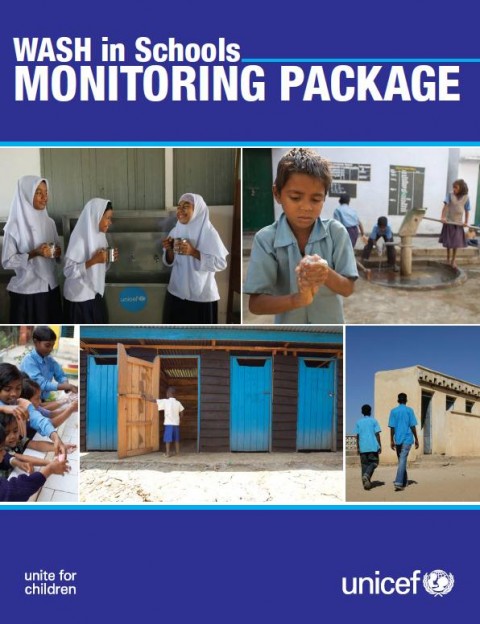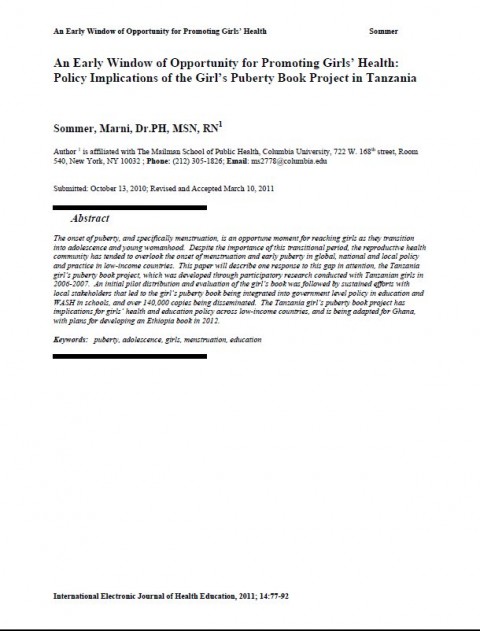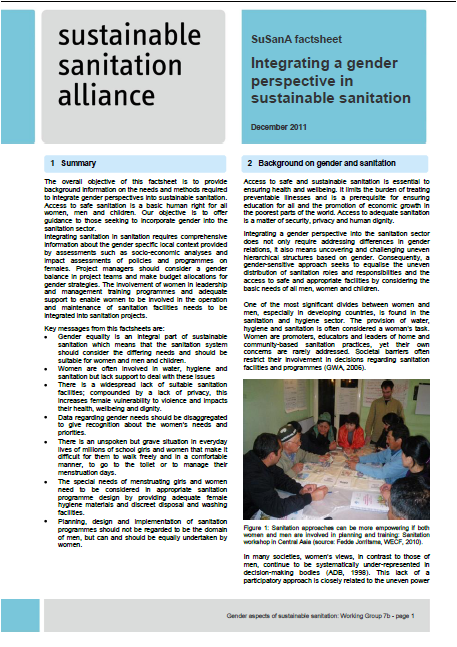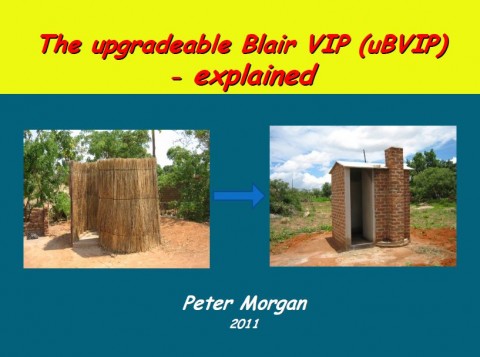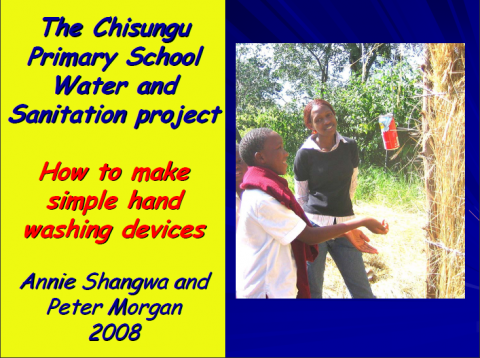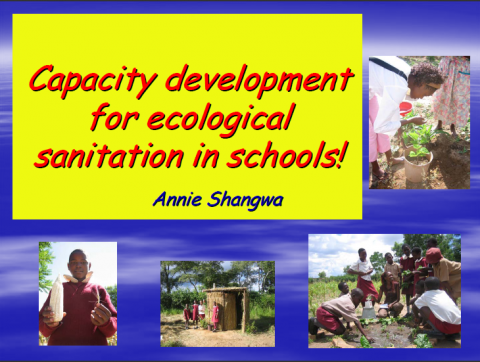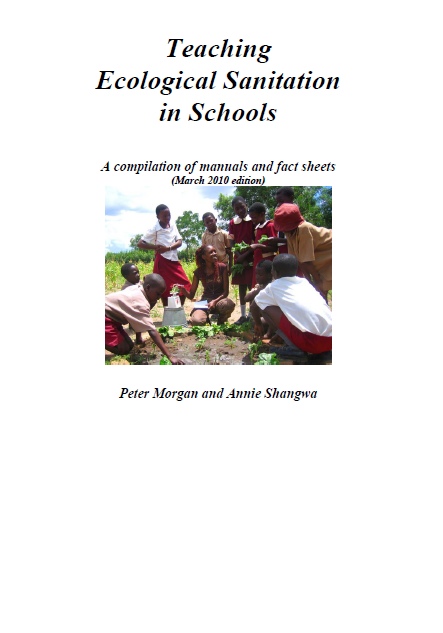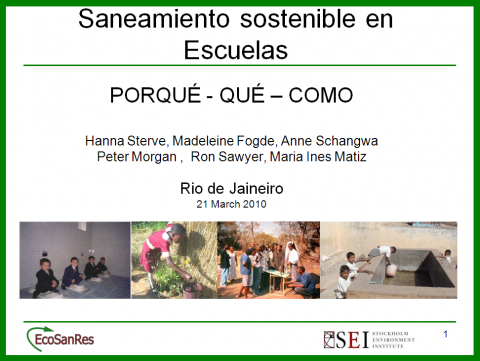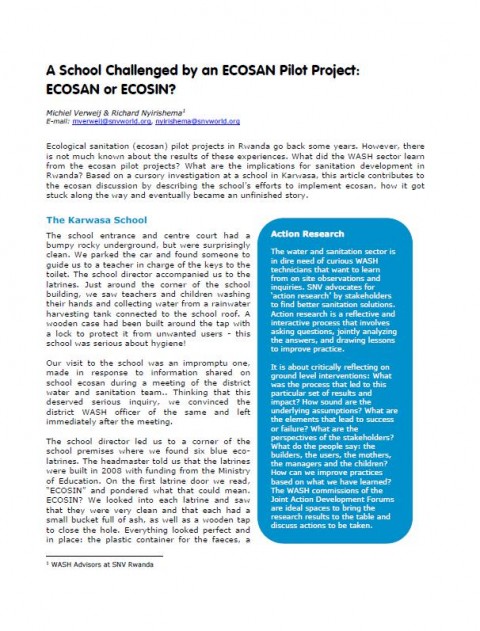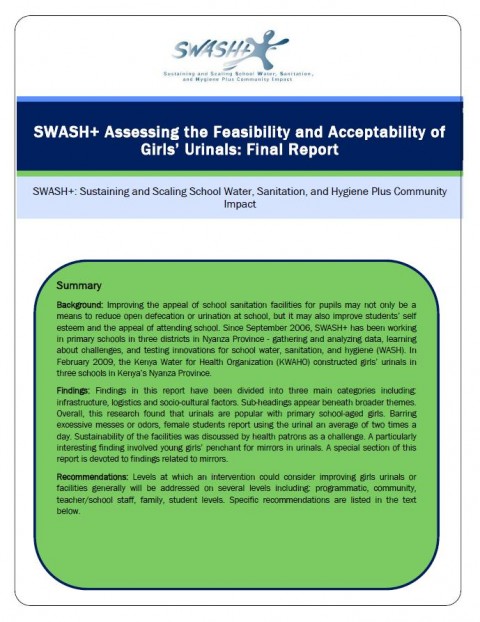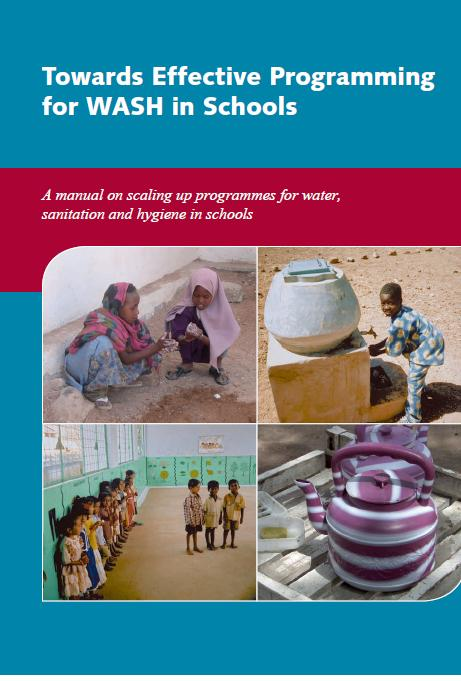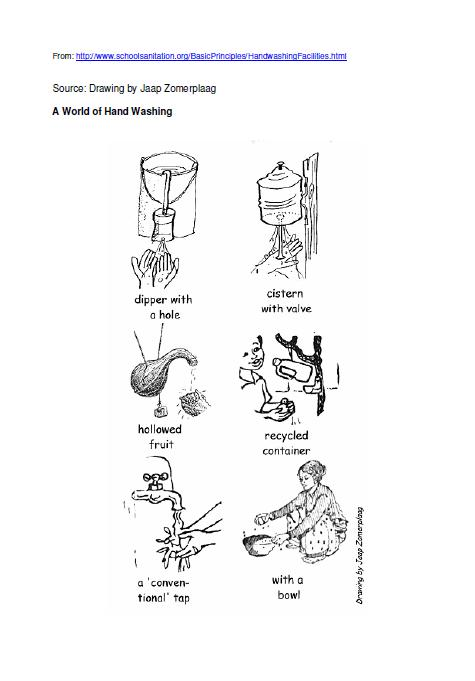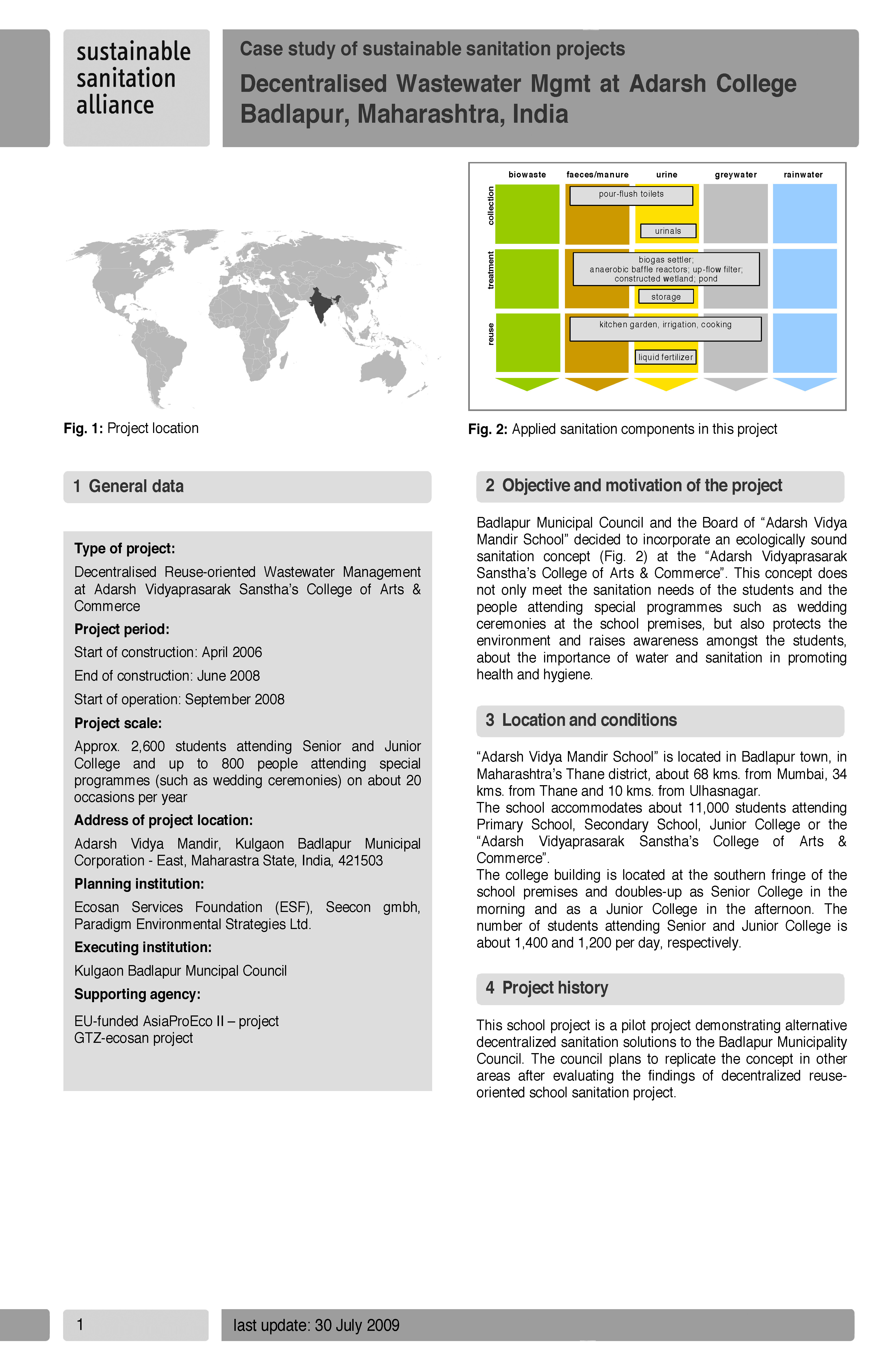Searching for information on Sanitation Workers?
The Sanitation Workers Knowledge + Learning Hub is the best source for all current news, trends, articles and updates on sanitation workers rights around the world.
Water, Sanitation and Hygiene (WASH) in Schools program in the Philippines has improved significantly over the past years of implementation and contributed to the health and well-being of school children. The program started in 2016 through the DepEd Order No. 10 S-2016 titled “Policy and Guidelines for the Comprehensive WASH in Schools (WinS) Program”. This policy has able to set specific …
The WASH for Health approach presents significant opportunities for advancing not only SDG 3 (Good Health and Wellbeing) and SDG 6 (Clean Water and Sanitation) through improving public health outcomes, including WASH in infectious disease control, health system strengthening, and sexual and reproductive health and rights. Adopting the One Health approach provides a broader perspective, …
The purpose of this resource package is to assist World Bank task teams in ensuring that their projects are inclusive and responsive to the needs of women and girls. The tools included in this package are practical and user-friendly and guide task teams on how to design and monitor effective, inclusive, and sustainable menstrual health and hygiene (MHH) initiatives as part of their water supply, …
Children and adolescents comprise 43 per cent of Bhutan’s estimated population of 735,553 people. Prior to COVID-19, the majority of children were in schools. In the country, one in every five schools lacks handwashing facilities and functional toilets. Nearly one third of schools have no separate toilets for girls. These problems risk the well-being of children and bear gender-specific …
“Achieving menstrual health requires access to information about the menstrual cycle and self-care, materials, water and sanitation facilities and services to care for the body during menstruation, access to timely diagnosis, care and treatment for menstrual discomforts and disorders, a positive and respectful environment free from stigma, and the freedom to participate in all spheres of life …
In 2019, cyclone Fani devastated Badabenakudi village, leaving its people traumatized. Many locals felt powerless and dependent on others. It was in this context that the UNICEF WASH team in Odisha and the government sought to develop the local capacity of the community and enhance awareness of WASH. UNICEF and its partners worked with the local ASHA (community health worker), schoolteacher, and …
“Compendium of Good Practices on the Safe Reopening of Schools: WASH and IPC related experiences during COVID-19” is a compilation of key initiatives and measures taken up in UNICEF supported states for WASH and IPC as part of the safe school reopening endeavour. It is hoped that this compilation will serve as a key reference for schools and communities for …
The COVID-19 pandemic put front and centre for the needed attention on water supply, hand hygiene and sanitation.
Using the Enabling Environment matrix like a camera lens to view national-level actions, the collective country examples from 20 countries in Africa, Asia and the Pacific supply rich learnings and underline the positive momentum showed by Ministries of Education to lead WinS, and …
For a wholistic approach of any project, the gender dimension should be included. The Jaffna Healthy City Project is also not an exception. The one out of three-sub pillars of Healthy City Project is WASH in Schools. In a gender inclusive perspective, WASH in Schools included Menstrual Health and Hygiene (MHH). There are 10 schools from Jaffna city included for Jaffna Healthy City project. Out of …
There is growing global recognition of menstrual health and hygiene (MHH) as an important health, education, rights, and gender equality issue. As efforts to support MHH gain momentum globally, the lack of adequate validated indicators with related measures is a critical barrier to progress. At national level, the absence of standardized indicators and related measures limits understanding MHH …
WASHaLOT 3.0 is a versatile design of a group handwashing facility that accommodates many users at the same time and a water-saving facility with automatically closing individual water outlets. To support the adaption of the WASHaLOT 3.0, documents are made available to the public to guide in the production process of the WASHaLOT 3.0.
The development of WASH in Schools (WinS) in Indonesia has been progressing significantly in recent years. The availability of more and better quantitative and qualitative data on WinS has raised the interest of decision makers, both at national and local level, to improve school children’s access to water, sanitation and hygiene and improve the overall school environment for children. Some key …
Since 2016, significant progress has been made in ensuring Water Sanitation and Hygiene services (WinS) in Indonesia. The Ministry of Education (MoEC) published a WinS SDG profile and WinS Roadmap in 2017. The WinS SDG profile set the baseline for some of the indicators of SDG target 4.a.1: proportion of school with access to: (e) basic drinking water; (f) single-sex basic sanitation facilities; …
On 7 April 2020, Tropical Cyclone (TC) Harold caused major infrastructure damage to 43% (128/298) of
schools and 47% (164/349) of ECCE (early childhood care and education) centres in Vanuatu’s Sanma,
Malampa and Penama provinces1. Pentecost, in Penama province, was among the hardest hit with all of
the 23 schools in central and southern zones reported as majorly damaged. Along with efforts …
A very centralized Department of Education (DepED) in the Philippines adopted a decentralized approach by giving all the responsibilities to school principals to adjust the school’s needs and implement a phased approach of the WASH in Schools programme. Since Typhoon Haiyan’s emergency response, addressing water, sanitation and hygiene (WASH) needs has become a priority for the Education …
Social media has become a surprisingly useful and effective tool in advancing Vanuatu’s national WASH in Schools (WinS) program. In late 2019, Vanuatu’s Ministry of Education and Training (MoET) created the WASH in Schools Vanuatu - WOSH insaet long ol Skul Vanuatu Facebook group as a tool for schools to showcase their WASH activities. With increasing access to low-cost or free Facebook data …
The COVID-19 pandemic has impacted our lives since early 2020. Children suffer especially under the outbreak, as it is estimated that, globally, over one billion school children are staying home (as at June 2020) with a high number of children not continuing their education online. Nevertheless, the COVID-19 outbreak has been addressed and controlled in some countries, and gradually workplaces, …
The WASH in Schools (WinS) Three Star Approach (TSA) has been adopted in Fiji (from a pilot in 2015 but now is at scale), Kiribati (atoll island first implementation from 2015 to 2018), Solomon Islands (since 2016), in Vanuatu (since 2017) and 2018 introduction in the Federated States of Micronesia (FSM). The evaluation aims to understand whether WinS TSA is achieving the intended results and how …
The COVID-19 pandemic highlighted the need for regular hand hygiene at a global level. Although the urgency of this context cannot be denied, the benefits from streamlining hand hygiene at a global scale are immense and go beyond the current pandemic response.
WASHaLOT is an innovative group handwashing facility that has been adapted for the Ugandan context. It is a durable, cost effective, …
On July 16th 2015, flash floods triggered by Glacial Lake Outburst Floods (GLOF) submerged various parts of the Chitral District; the northern district of Pakistan, bordering Afghanistan. The floods destroyed houses, livestock and public infrastructure. The disaster claimed three lives and left 250,000 people without access to basic services and relief supplies. More than 60% of households were …
This guide will provide insights on preconditions and principles for developing a national WinS MOOC based on the Philippines’ WinS MOOC experience, practical examples on structure, content and course outline of a typical WinS MOOC, and recommendations for adapting these processes in your institution’s context.
WASH in Schools aims to support the provision of safe drinking water and improved sanitation facilities, and promotes lifelong health for children and their families. Ensuring access to water, sanitation and hygiene (WASH) in every school for every child can be a huge challenge, especially during emergencies. When disaster strikes, education is often disrupted as families become primarily focused …
Government reports from 2016 and 2017 identified that Ugandan schools are not meeting the national standards for water, sanitation and hygiene (WASH) in schools (WinS). For this reason, in 2017, the Ministry of Education and Sports adopted the Three Star Approach for WASH in Schools. The Three Star Approach (TSA) was developed by GIZ and UNICEF and has been implemented in countries around the …
The UNHCR WASH Monitoring System includes monitoring of refugee schools following the Joint Monitoring Program (JMP) guidelines, model questions and standard indicators. All refugee schools should be surveyed at least once a year. Indicators are tracked on the Refugee WASH in Schools Dashboard.
This Sanitary Survey Checklist Guide provides a methodical way to identify the factors or features of the existing school WASH system that contribute to an increased risk to the health of school children and teachers. It should be possible for the school community, with a assistance from the facilitator and possibly a health inspector, to answer the checklist questions and see the weaknesses and …
Tropical Cyclone Winston hit Fiji from 19 to 20 February as a Category 5 system with winds of 220 kmph, gusting up to 325 kmph, and this time through much more populated islands. TC Winston not only was the first Category 5 tropical cyclone of record to hit Fiji, but the strongest tropical cyclone of record in the Southern Hemisphere. The program of activities will look at 4 key outputs: 1) …
Abstract
In humanitarian emergency settings there is need for low cost and rapidly deployable interventions to protect vulnerable children, in- and out-of-school, from diarrhoeal diseases. Handwashing with soap can greatly reduce diarrhoea but interventions specifically targeting children's handwashing behaviour in humanitarian settings have not been tested. Traditional children's handwashing …
This was an interventional study carried out over a period of 5 days among 21 schoolchildren aged 12–18 years in their respective school premises. Participants were requested to rub their hands with an UV-sensitive fluorescent lotion and then wash them. Hands were air-dried and examined under UV rays for blue light emission in a dark room. Emission of blue light highlighted parts of hand where …
The simple hygiene habits of handwashing with soap and toothbrushing significantly contribute to the health and well-being of children and should be part of their education. While the idea of teaching handwashing and toothbrushing in schools has been around for decades, the actual practice of these activities has been hindered by long queues around the washing station. The concept of building …
Consistent hand hygiene can reduce morbidity and mortality from diarrheal and respiratory diseases. Diarrhea and pneumonia are still the leading causes of mortality among children under five years of age in low-income and middle-income countries. Recent findings suggest that interventions promoting handwashing with soap lead to a 40% reduction in the risk of diarrhea. Despite its health impact, …
A Blue School offers a healthy learning environment and exposes students to environmentally-friendly technologies and practices that can be replicated in their communities. It inspires students to be change agents in their communities and builds the next generation of WASH and environment sector champions.
The Catalogue of Practical Exercises aims to inspire teachers with hand-on and low cost …
Development organisations working in the WASH sector tend to focus on their preferred methodologies
for Hygiene and Sanitation (H&S) promotion, while the sustainability of an intervention depends much
more on how the methodology is implemented and whether an enabling environment is in place. In 2014,
Caritas Switzerland in Kenya started a learning and critical review process on how to …
Behavior change communication for improving handwashing with soap can be labor and resource intensive, yet quality results are difficult to achieve. Nudges are environmental cues engaging unconscious decision-making processes to prompt behavior change. In this proof-of-concept study, we developed an inexpensive set of nudges to encourage handwashing with soap after toilet use in two primary …
Poor WASH conditions are thought to be one of the main causes of child stunting. The household environment in which children develop and grow is highly related to their nutritional status. Direct and indirect pathways exist between WASH and stunting, from diarrheal diseases and Environmental Enteric Dysfunction (EED), to socio-economic conditions and time constraints to child care practices. The …
It feels good to be clean. It feels good to live in a beautiful environment. It feels good not to get sick. Influencing health behaviour change seems like it should be simple. Present the logical evidence (information) for why changing a behaviour is worthwhile (washing hands kills germs) and the need for change should be obvious. But logic isn’t the only basis for making decisions about …
Our vision is a world in which every child affected by an emergency wherever she/he is – at home or displaced; in schools; and in health institutions – has the right and access to safe water supply and adequate sanitation facilities and is enabled to perform basic hygiene.
This operational guidance outlines the role Humanitarian WASH will play within Save the Children 2019-2021 strategy. The …
In response to the COVID-19 pandemic, the World Health Organization (WHO) has recommended that all member states provide universal access to public handwashing facilities. Consequently, WaterAid and other organisations have been working with governments to install handwashing facilities in a wide range of public places and buildings, to support improved handwashing practices and reduce …
Handwashing Facilities - Overview and Decision Support Tool with Case Studies from Uganda
The objectives of this publication are twofold. The first objective is to give an overview of common types of handwashing facilities with a number of key aspects that need to be considered during the planning stage. Focus is placed on handwashing facilities that are generally suitable for installation at …
This evidence paper looks at 10 areas identified collaboratively with UNICEF on which WASH can plausibly have a strong impact: diarrhoea, nutrition, complementary food hygiene, female psychosocial stress, violence, maternal and newborn health, menstrual hygiene management, school attendance, oral vaccine performance, and neglected tropical diseases. Together, these areas cover the most …
Three billion people – 40 per cent of the world’s population – do not have a place in their homes to wash their hands with water and soap. Threem quarters of those who lack access to water and soap live in the world’s poorest countries and are amongst the most vulnerable: children and families living in informal settlements, migrant and refugee camps, or in areas of active conflict. This …
Globally, 4.2 billion people do not have access to safe sanitation services, and approximately 3 billion lack basic handwashing facilities. Even in 2021, almost 700 million people still practise open defecation and nearly 400 million children attend schools with no sanitation facilities at all.
The large financing gap has been identified as one of the greatest barriers to achieving the water, …
Sanitation for Millions has assessed its interventions in the three partner countries Jordan, Uganda and Pakistan in the context of the COVID-19 pandemic and identified various WASH-related measures which represent an adequate and effective response to COVID 19 in particular and to pandemics and infection control in general.
Handwashing is one of the core activities carried out regarding safe …
In 2020 UNICEF Nepal’s implementing partner COSDER, Gorkha observed that Madarhawa village (480 inhabitants and 1 school), Nepal (located 60km northwest of Lumbini) was without improved WASH infrastructure and that its inhabitants were not observing improved sanitary and hygiene practices. COSDER, Gorkha decided to act and trained the children of Madarhawa on WASH related issues and solutions. …
IN 2020, UNICEF initiated WASH interventions in the urban slums of Jaipur city in partnership with the Centre for Advocacy and Research (CFAR). This was done in the context of the 2019 coronavirus (COVID-19) pandemic with a threefold objective. COVID-19 has highlighted the inter-linkages between health and hygiene and the vulnerability of the poor and the marginalized. As India battled with the …
As COVID response, the programme Water Supply and Sanitation for Refugee Settlements and Host Communities in Northern Uganda (WatSSUP) is supporting measures for improved hand hygiene in institutions. In cooperation with local actors the programme is implementing WASHaLOTs in Health Care Facilities, COVID-19 quarantine stations and schools in Northern Uganda.
The WASHaLOT has been first …
UNICEF Chhattisgarh devised an approach to maintain the WASH infrastructure in schools considering the importance of continued WASH facilities and services in general and more specific to reopening of schools with this continuing COVID-19 pandemic. Functional WASH services for a clean and safe environment and maintaining respiratory and hand hygiene are the first line of defense against the …
The Menstrual Hygiene in Schools in South Asia - Country Snapshots from UNICEF and WaterAid is divided into an 2018-2020 update including Key Observations, a country specific WASH in Schools (WinS) overview, a country specific MH Overview as well as the MH Journey in the countries Afghanistan, Bangladesh, Bhutan, India, Maldives, Nepal, Pakistan and Sri Lanka.
130 WASHaLOTs placed in public schools, health care facilities, district offices and other public institutions in Kampala and West Nile (Uganda).
In a participatory process, a technology implemented as a pilot is assessed through the perspective of three key stakeholder groups engaged with the implementation of the technology: user/buyer, producer/provider and regulator/ investor/facilitator. …
The WASHaLOT 3.0 is a low-cost and water-saving washing facility. For pandemic preparedness and response, the WASHaLOT 3.0 can be easily adjusted so that fewer water outlets are in use to ensure physical distancing.
This user guide is produced to provide receiving schools with orientation on the WASHaLOT installation, guidance on operation & maintenance as well as recommendations for pandemic …
The study ‘Analysis of Menstrual Hygiene Practices in Nepal: The Role of WASH in Schools Programme for Girls Education’, was commissioned by UNICEF Nepal in collaboration with the Health Research and Social Development Forum (HERD) in 2016 to explore the socio-cultural practices related to menstruation, its management and consequences pertaining to girls’ education. The research and …
Since 2003 Nepal has been actively promoting the Community Led Total Sanitation approach and, from 2005 onwards; the School Led Total Sanitation approach, to promote Open Defecation Free (ODF) behaviours. The Government has put sanitation and hygiene at the forefront of its development agenda through the Nepal Country Plan for the International Year of Sanitation in 2008, the Sanitation and …
The document covers the impact of WASH intervention in families, communities and institutions with a balance between demand and supply, highlighting both child and gender lens. Innovations like cost effective, simple, scalable pedal operated hand washing stations, augmentation of operation and maintenance of community toilets with identification of community touch points, school readiness for …
The Ministry of Education and Sports recognizes that Water, Sanitation and Hygiene (WASH) programs in schools (WinS) are a key priority area and that improved hygiene practices and a clean school environment are contributory factors to ensuring that learners can enjoy an acceptable standard of health. The need for a clean school environment is highlighted in the 2016 School WASH mapping report. …
UNICEF/WHO reports that 1.7 million children die annually of diarrhea and pneumonia. Handwashing with soap under running water can prevent the majority of infectious diseases, such as COVID-19, influenza, cold, cholera, dysentery, and contagious eye disease. Several studies have reported reduced incidences of pneumonia and diarrheal diseases by over 40% to 50% through handwashing. However, many …
The 30th SuSanA meeting - the first virtual of its kind - took place from August 17th to August 28th 2020. It was organised by the SuSana Secretariat with support and contributions from SuSanA Partners, Members, Working Groups and Regional Chapters.
This entry is the collection point of the different resources from the SuSanA Meeting, including recordings, presentations, flyers and program …
This resource guide by Watson, J. & Drebelbis, R. provides an overview of the science behind nudge-based handwashing interventions and the evidence supporting the use of environmental nudges for handwashing in schools in low-resource settings. Resources and tools for planning and implementing nudge-based interventions in schools are also provided.
MHH contributes to gender equality, better education and employment, and the realization of sexual and reproductive health and rights. In this session progress and success stories of MHH globally and within the German Development Cooperation were presented and opportunities for sustaining and scaling the momentum were discussed.
The menstrual movement has made progress in the recent years, …
WASH in Schools (WinS) is a key element of universal access to both Education for All and WASH for All as defined in the Sustainable Development Goals (SDGs). Schools are important settings to provide environments where children learn and acquire essential hygiene skills for life; and where their health growth and overall development thrive in dignity.
The Hand Hygiene for All Global Initiative is led by WHO and UNICEF. It aims to implement WHO’s global recommendations on hand hygiene to prevent and control the COVID-19 pandemic and work to ensure lasting infrastructure and behavior. It calls for countries to lay out comprehensive roadmaps to ensure hand hygiene is a mainstay beyond the pandemic. It also proposes a framework for coordination …
An overview of, as well as the presentations from the Mini ILE can be found following the first external link below "Resources and Overview of the ILE Virtual Conference". Additional resources are provided following the other external links as well as in the provided PDF "WASH in Schools Checklist to Manage COVID-19 Response".
WoMena SUMMARY [1]
There is a growing understanding that gender-based violence (GBV) has many dimensions, both physical and psychological. It additionally includes both a deliberate deprival of dignity and access to basic services. This also applies to menstrual health management (MHM):
Physical violence: menstrual products can be expensive; this at times causes conflict since men are often …
In the Philippines, GIZ is providing technical assistance to the Department of Education in the Autonomous Region in Muslim Mindanao (DepEd ARMM) to improve WASH in Schools. GIZ’s support forms Component 2 of the Australian Embassy’s Basic Education Assistance to Muslim Mindanao (BEAM ARMM) program. Additional support is provided by the German government through the Federal Ministry for …
Schools across ARMM have constructed their own group washing facilities. Simple affordable materials, like used plastic bottles, can be used to make tippy taps, for example, which can make handwashing facilities accessible for all. However, when building more durable structures, many schools struggle to ensure the functionality of their facilities over time. In some cases, schools may lack the …
Access to functional and clean group washing facilities in schools allow for WASH activities for a larger number of children at various times throughout the day. Group washing facilities, which need to be water-saving, are designed to enable both group handwashing and individual handwashing. Based on this there is a demand for durable and scalable infrastructure which are long-lasting, low cost …
In 2016, the Ministry of Education, Youth and Sport in Cambodia published the ”Guidelines for Minimum Requirements for WASH in Schools“. The guidelines are designed for stepwise improvements of WASH (Water, Sanitation and Hygiene) infrastructure and hygiene behavior in schools to reach the national goal of water and sanitation access for all in 2025.
This group washing facility catalogue …
Schools are the heart of a community where children spend half of their day. They play a unique role in creating healthy learning environments. The social norms and habits developed in children will stay with them all their lives. Thus, by providing a healthy learning environment and promoting healthy practices, schools act as an equalizer for all children from varied economic backgrounds.
The …
There is growing global momentum around addressing menstruation as an important health, education and gender equality issue. However, a critical barrier to making progress on addressing menstruation and the range of girls’ needs around this issue, is the lack of adequate validated measures related to measuring menstruation within global health and development. Measures are most needed that are …
In Uganda approximately 86% of South Sudanese refugee arrivals are women and children (UNHCR, 2017a). Globally, girls and women often lack the ability to manage their menstruation with dignity due to lack of adequate and private facilities, safe, acceptable and accessible menstrual health products and knowledge, which can be further exacerbated during conflict and displacement. Menstrual health …
EXECUTIVE SUMMARY
In Sub-Saharan Africa (SSA), menstrual health is often considered a taboo and many girls and women lack access to safe and appropriate menstrual health management (MHM) products. This can have far-reaching implications for women and girls’ physical, social and mental wellbeing, as well as for their sexual reproductive health and rights. These MHM issues are often further …
The WASH in Schools Network (UNICEF, GIZ, Save the Children, WATERAID; Emory, LSHTM, among others) has compiled this knowledge map with links to relevant materials about COVID-19 for learners, their families and the education system. The map is intended for the time when schools are closed and in preparation for re-opening of schools. We want to help you navigate through the jungle of information …
The GIZ Regional Fit for School Programme in cooperation with the Sector Programme “Sustainable Sanitation” has developed a MHM in Schools concept, which is modular, culturally adaptable and consists of a primary and secondary intervention package. This publication is providing a comprehensive concept on primary and secondary interventions that are needed for Menstrual Hygiene Management in …
Q1: Do girls miss school because of menstruation? ‘One in ten girls in sub-Saharan Africa misses school during their period’. This truism has not been substantiated, but empirical evidence from low- and middle-income countries has accumulated, confirming a negative effect at varying levels (from less than 10 to more than 50 percent absence during menstruation). One study from Uganda found …
The study used qualitative methods to assess the effects of a multi-modal school-based water, sanitation and hygiene (WASH) intervention on handwashing behaviour among primary students in North Western (NW) Tanzania. Barriers and facilitators to handwashing were explored in the students who participated in the Mikono Safi Trial (Kiswahili for ‘Clean Hands). The intervention increased students' …
Neglected Tropical Diseases (NTDs) affect more than ten percent of the world’s population, primarily among the poorest populations. In Ethiopia, more than 75 million people are at risk of infection of at least one neglected tropical disease. NTDs cause suffering, blindness, disability, and delays in physical and cognitive growth which impact a person’s ability to go to school and work, thus …
The World Health Organization and United Nations Children’s Fund (WHO/UNICEF) Joint Monitoring Programme for Water Supply, Sanitation and Hygiene (JMP) produces internationally comparable estimates of progress on drinking water, sanitation and hygiene (WASH) and is responsible for global monitoring of the Sustainable Development Goal (SDG) targets related to WASH. The JMP has recently published …
The aims of this factsheet are to:
1. Advocate for sustainable WinS globally as anchored in the SDGs;
2. Highlight key solutions to existing challenges within WinS;
3. Explore various innovations and successful approaches using examples from low and middle income countries and outline best practice approaches and lessons learnt;
4. Identify the common principles that are needed to …
This publication is the follow up of the first and second volume of WASH in Schools best practices by SuSanA partners. This third volume focuses on the topic of monitoring and evaluation (M&E). The aim is to show how digital approaches for M&E can be used to trigger action for improvements in WASH in Schools.
It introduces the WHO/UNICEF JMP core and expanded questions and indicators for …
This FRESH webinar will Introduce a costing tool to calculate the budget need for schools to provide the basic service level for drinking water, usable sanitation, and handwashing with soap. The tool provides school heads with an easy to manage app, which calculates the annual cost per student depending on local condition and local prices.
How much do they need to keep aside for consumables, …
The F4S approach uses the school setting to support the institutionalization of health-promoting behaviour of children. This includes washing hands with soap, brushing teeth with fluoride toothpaste, daily cleaning of sanitary facilities, etc. The measures in schools include a clear set of rules for routine group activities, simple infrastructural measures such as group washing facilities and …
Action to improve menstrual hygiene management (MHM) for schoolgirls in low- and middleincome countries continues to gather momentum around the world. The annual virtual conference on MHM in schools shared recent evidence and programmes that illustrate the continuing progress in the field. The conference provides a vital global platform for practitioners and policy makers to share ideas, discuss …
Globally many women and girls do not have access to appropriate Menstrual Health Management (MHM) methods that are effective, comfortable, convenient, affordable and safe to use and dispose of. Combined with inadequate facilities, social support and knowledge of menstruation as well as prevailing menstrual taboos and stigma, the lack of appropriate MHM methods can impact the physical, social and …
In rural areas of Eastern Europe, the Caucasus and Central Asia (EECCA) without reliable piped water supply, the conventional school sanitation system – the pit latrine – is leading to hygienic and environmental problems. Urine diverting dry toilets (UDDT) have been demonstrated to be an alternative, ecological sanitation solution for rural schools of the EECCA region. This study compares the …
The 6th International Dry Toilet Conference 2018 was held in Tampere, Finland on 22nd – 24th August 2018. The theme of the conference was Dry Toilet Goes Circular with a focus on Cooperation, Co-creation and Experimentation.
Please find the oral presentations and poster presentations below via the links to the page of the GlobalDry Toilet association of Finland.
***** Oral …
This compendium is designed for use by staff working directly with communities - e.g. health workers and community volunteers working with disabled and older people and their families in rural areas of sub-Saharan Africa. A few examples of technologies are presented that families can adapt to suit their needs and budgets. Many more options are possible. Most of the ideas are suitable for disabled …
The Menstrual Hygiene Management pilot was conducted among 80 refugee women and girls, aged 15-30 years in Imvepi refugee settlement over four phases, namely (1) exploration, sensitization and training of trainers, (2) trainer trial period, (3) beneficiary training, and (4) menstrual cup (MC) trial period of beneficiaries and final evaluation. In addition to the fact that female received …
This second UN-Water GLAAS report presents data received from 74 developing countries, covering all the Millennium Development Goal regions, and from 24 external support agencies, representing approximately 90% of official development assistance for sanitation and drinking-water.
1. Sections 1 and 2 of the report describe the efforts of countries to be accountable and to plan and coordinate …
The review paper aims to identify possible linkages to SRHR-related issues, and to provide an overview of MHM policies and programs in the ESA region, with a focus on education, school and community-based sexuality education, WASH, sexual and reproductive health, workplace support and humanitarian programming, as well as opening up the discussion regarding marginalized groups of women and girls …
A Menstrual Health pilot project by WoMena and ZOA implemented among South Sudanese refugees and host population in Rhino Camp Refugee Settlement in northern Uganda. The pilot involved 4 primary schools, including students, parents and teachers, over 6 months. 4 different distribution models were applied among the participants; one school got MCs only, one school got reusable pads only, one …
Selected sanitation projects from different parts of the world were requested to report on how SuSanA had influenced the work carried out. This resulted in a variety of evidence indicating that SuSanA can have a far-reaching effect providing expertise, convenor of meetings, a source of online information, networked contacts, discussion platform and a place to disseminate reports and …
There is a growing pool of evidence with regard to the effectiveness of school-based MHM interventions under WASH in Schools (WinS). This is because schools provide the ideal environment to reach all girls and boys and address taboos and misconceptions in a culturally sensitive manner.
Ministries of Education (MoE) have the power and the responsibility to transform schools into places with …
This updated document presents recommended core questions to support harmonised monitoring of WASH in schools as part of the SDGs. The questions map to harmonised indicator definitions of “basic” service and to service ladders that can be used to monitor progress. They are intended for use in national or sub-national facility surveys and census questionnaires.
If national and sub-national …
To assess the future applicability and appropriateness of the WASHaLOT 3.0, a group washing facility designed to facilitate hygiene activities for many people simultaneously whilst using minimal amounts of water at low cost, the Technology Applicability Framework (TAF) has been applied.
The TAF helps to understand if any technology implemented as a pilot fulfils the criteria for further …
The scope and focus document of SuSanA Working Group (WG) 7 Sustainable WASH in Institutions and Gender Equality (Leave No One Behind – in communities, schools and other institutions)
WG 7 has two goals:
a. To strengthen water, sanitation, and hygiene (WASH) in schools and other institutions within community
structures. To learn more about the work of WG 7 in the field of WASH in schools, …
Despite massive efforts by governmental and NGO partners and other development agencies toward ODF Malawi by 2015, there are still a lot of works to be done. The ODF Malawi National Strategy addresses School-Led Total Sanitation (SLTS) as an effective approach to create ODF communities. It takes the dynamics of children into consideration as Agents of Change in triggering and monitoring good …
The WASHaLOT 3.0 is a prefabricated handwashing facility that accommodate washing activities of 20 persons at a time. It is currently being used in public schools in the Philippines to address the need for schools to facilitate handwashing prior to eating and thereby establish daily hygiene practice in schools.
The facility has the potential to be used in other contexts such as day care …
The WASHaLOT 3.0 is a prefabricated handwashing facility that accommodate washing activities of 20 persons at a time. It is currently being used in public schools in the Philippines to address the need for schools to facilitate handwashing prior to eating and thereby establish daily hygiene practice in schools. The facility has the potential to be used in other contexts such as day care centers, …
This training manual is a practical guide to be used by teachers and school health assistants who are involved in the promotion of water, sanitation and hygiene practices (WASH). School WASH education is a specific part of the wider school health education program that deals only with water and sanitation-related health problems in and around the school.
The manual has been designed to provide …
Project implementers, practitioners and researchers within the areas of urban and rural ecological and sustainable sanitation, organic waste management and agricultural reuse participated in the International Conference on Sustainable Sanitation on 26-29 August 2007 in Dongsheng, China in order to share experiences and best practices. The presentations of this conference are available as PDF on …
High-level experts from the sanitation and nutrition sector gathered together in the headquarter of Germany’s international broadcaster Deutsche Welle, Bonn for the WASH and Nutrition Forum on November 11th and 12th to discuss strategies for integrating WASH and nutrition programming in development and humanitarian contexts.
On 14 - 18 November 2016, 160 Experts from 16 Asian countries came together in Jakarta to exchange their experience regarding innovative WASH in Schools (WinS) approaches. The 5th WASH in Schools International Learning Exchange (ILE), was hosted by the Ministry of Education and Culture of Indonesia – with support from UNICEF and GIZ.
The conference concluded with a general agreement among …
This manual is used in selected schools in the Division of Batangas in the context of researching the conditions to improve O&M of sanitation facilities in public elementary schools in the Philippines. Users of this manual are highly encouraged to provide feedback on their experience using this tool to improve the next edition. The learnings of this research project are supporting the further …
The second SuSanA India Chapter meeting was held in Panaji, Goa, India on 21 February 2018 - just after the 50th Annual Convention of the Indian Water Works Association (IWWA). The seminar encouraged discussions on urban sanitation challenges, holistic approaches to sanitation as well as financing and monitoring sanitation to accelerate progress on SDGs.
Please find the presentations of the …
Handwashing with soap is the single most effective way to prevent infectious diseases. Regular handwashing, specifically after using the toilet and before eating should be part of a daily routine in everyone’s life. Schools, kindergardens, day care centers, hospitals, bus-stations, canteens are public places, where handwashing should be made possible for many people at the same time.
In the …
From 4 – 23 September 2017, the India Santation Coalition under the umbrella of the SuSanA India Chapter organised a thematic online discussion about WASH in Schools in India.
The discussion examined how to improve WinS to a level where boys and girls have separate and adequate toilets, hand-washing facilities, hygiene is addressed in schools, and adolescent girls have usable …
"The ABC of water, sanitation and hygiene (WASH) improvement in schools” in India by the the Urban Management Centre is a handbook developed under the Ahmedabad Sanitation Action Lab (ASAL), a three year action research program.
The program was specially designed to implement innovative solutions to school WASH problems in identified slum settlements of Ahmedabad. ASAL was led by the Urban …
Menstrual Hygiene Management (MHM) refers to the way in which women and girls deal with their menstruation. Girls usually menstruate for the first time between the age of 10 and 15. Learning about menstruation is thus vital for secondary school students, but it is not too early to raise awareness in elementary school. Given the number of people affected by MHM in some way or another, it is …
Swachh Bharat: Swachh Vidyalaya is the national campaign driving ‘Clean India: Clean Schools’. A key feature of
the campaign is to ensure that every school in India has a set of functioning and well maintained water, sanitation
and hygiene facilities. Water, sanitation and hygiene in schools refers to a combination of technical and human
development components that are necessary to produce …
This evidence paper looks at 10 areas identified collaboratively with the United Nations Children’s Fund (UNICEF) on which WASH can plausibly have a strong impact: diarrhoea, nutrition, complementary food hygiene, female psychosocial stress, violence, maternal and newborn health, menstrual hygiene management, school attendance, oral vaccine performance, and neglected tropical diseases.
Adequate access to water, hygiene and sanitation (WASH) is every human’s and child’s right. Ensuring WASH accessibility in schools is encompassed in the 2030 Agenda for Sustainable Development and is a priority area under the Protocol on Water and Health to the 1992 Convention on the Protection and Use of Transboundary Watercourses and International Lakes. This publication summarizes the …
Rights to education and to water and sanitation are important milestones for modern society. For all children, a healthy learning environment is a prerequisite for a decent life in the 21st century. The provision of easy access to safe and sustainable water, sanitation and hygiene (WASH) services in all child-care settings is vital for children’s best health, well-being and learning. There is …
Water, sanitation an Hygiene (WASH) conditions are playing a big role in our everyday live.
Having Information and knowledge as well as caring about hygiene can not only save lives and ensure better health but it could also help achieve educational, social and economic improvement.
As we see it, schools, being a place of knowledge, are in a good position to get a massage across about the …
Just 71% schools worldwide have a safe water supply – as few as 54% in sub-Saharan Africa, and just 69% have safe sanitation access – as few as 53% in sub-Saharan Africa (UNICEF 2015). Correct use, maintenance, and sustainability of school water, sanitation and hygiene (WASH) services, and hygiene behaviours, remain big challenges in many countries.
WaterAid has conducted research in …
Globally, millions of people lack access to improved water, sanitation and hygiene (WASH). Disabled people, disadvantaged both physically and socially, are likely to be among those facing the greatest inequities in WASH access. This study explores the WASH priorities of disabled people and uses the social model of disability and the World Health Organization’s International Classification of …
The direct links of WinS to SDG3 (health), SDG4 (education) and SDG6 (water and sanitation) pose the chance for increased inter-sectoral cooperation. Thereby, the education sector’s leadership and management are critical to broad-scale implementation and success of WinS. Yet, how is the education sector taking WASH on board and how can the sector manage it? How does the reality look like in …
“The question now is not whether school health programs are necessary... but how they can be implemented at meaning scale. This is the challenge that we now face,” (Bundy, 2011, p. xiv). This quote reflects a key issue in the field of school health and WASH in Schools (WinS), especially in countries where resources are limited compared to the challenges in this field. Often good practices can …
Safe drinking water, sanitation, and hygiene (WASH) are fundamental to an improved standard of living. Globally, 91% of households used improved drinking water sources in 2015, while for improved sanitation it is 68%. Wealth disparities are stark, with rural populations, slum dwellers and marginalized groups lagging significantly behind. Service coverage is significantly lower when considering …
Unilever believes that business has a role to play in solving the global sanitation crisis that leaves 2.5 billion people without access to improved sanitation. In 2012, Unilever convened the Toilet Board, a group of likeminded companies, NGOs and research professionals, with expertise in sanitation and a desire to take immediate action to address this issue. The Toilet Board aims to foster …
Despite continuous financial efforts to improve the conditions in the country, Tanzania was off track to meet both the MDGs target on water and sanitation and the national MKUKUTA goals. Whilst the country reached a high level of latrine coverage (90%) during the Mtu ni Afya campaign of the 1970s, very little progress has been made since then to move the population up the sanitation ladder, from …
Fulfilling every child’s right to water, sanitation and hygiene education remains a major challenge for policymakers, school administrators and communities in many countries. Although steady progress has been made to safeguard the well-being of schoolchildren, almost half of all schools in low-income countries still lack access to water and sanitation facilities.
The lack of quality data on …
The WASHplus project supports healthy households and communities by creating and delivering interventions that lead to improvements in access, practices, and health outcomes related to water supply, sanitation, and hygiene (WASH) and indoor air pollution (IAP). This five year project (2010-2015), funded through USAID’s Bureau for Global Health (AID-OAA-A-10-00040) and led by FHI 360 in …
Behavior change communication for improving handwashing with soap can be labor and resource intensive, yet quality results are difficult to achieve. Nudges are environmental cues engaging unconscious decision-making processes to prompt behavior change. In this proof-of-concept study, we developed an inexpensive set of nudges to encourage handwashing with soap after toilet use in two primary …
Archived newsletters of the regular electronic news bulletin from the sustainable sanitation projects. These newsletters were sent to subscribed members involved in initiatives and projects in the field of sanitation.
Discusses news, publications, books, studies, conferences, online information, and events
This Teacher’s Guide supports the teaching and learning about water, sanitation, and hygiene (WASH) in Zambian primary schools. WASH is part of the new national curriculum, which was launched in January 2014. This guide provides technical content for the teacher to familiarize himself/herself with the subject of WASH. It also provides ideas and suggestions on how WASH content can be integrated …
This Link collection is for practitioners, WASH-club organizers, teachers and everyone who has an interest in achieving an overview of the broad WASH in Schools scene.
The aim of this Link collection is to provide an overview of the various reports, approaches, activities and further research sources about WASH education in schools. A special focus lies on publications with concrete examples …
It is widely accepted that water, sanitation and hygiene are necessary foundations for public health. For this reason, the WASH sector, which includes the German development actors (GIZ, 2011), have traditionally based their justification for WASH interventions on the hypothesis that the health status of the target groups will improve. Despite the fact that these impacts are in general not …
Inadequate drinking water, sanitation, and hygiene (WaSH) in non-household settings, such as schools, health care facilities, and workplaces impacts the health, education, welfare, and productivity of populations, particularly in low and middle-income countries. There is limited knowledge on the status of WaSH in such settings. To address this gap, we reviewed international standards, …
This publication is the second volume of "Making WASH in Schools ore Sustainable". Similar to Volume I, it showcases various approaches, both practical and innovative, to provide sustainable WASH solutions in schools around the world. The stories are not limited to the construction of water and sanitation systems but also show how these systems are operated and maintained through active …
This publication is the background article to one of the case stories in the SuSanA case story collection “Making WASH in Schools more Sustainable” (Vol II.). It has been selected as one of the focus case stories on monitoring under the umbrella of the SuSanA Working Group 7 on school sanitation.
The project "School Sanitation in Underserved Urban Areas in India" has shown that in the …
The Third International Faecal Sludge Management Conference was held in Hanoi from the 18th to the 21st of January 2015. More than 700 delegates from around the world shared ideas and discussed challenges and opportunities in on-site sanitation.
Below you find the list of papers in chronological order by day (Day 1-3) and room (room 1-3 ). In order to search by author, simply press "Ctrl+F" …
The synthesis of the thematic discussion series "The Sanitation Ladder: Next Steps" provides a summary and the key points of the first thematic discussion series on the SuSanA Discussion Forum.
The thematic discussion addressed the role of the functional sanitation ladder in the WASH-related post-2015 landscape, where discussions and negotiations are currently taking place to determine the …
This publication showcases various approaches, both practical and innovative, to provide sustainable WASH solutions in schools around the world. The stories are not limited to the construction of water and sanitation systems but also show how these systems are operated and maintained through active involvement of pupils, teachers, cleaning staff and community members. In some cases, awareness is …
Understanding that the school environment can enable development of healthy behaviors among children who may not have the same learning opportunity in their homes, schools serve as the center of development. Adapted from the experiences of Filipino NGO, Fit For Schools, this toolkit of effective handwashing tools promotes handwashing programs designed for schools and inspires a healthy learning …
This library entry contains background documents for a grant that Stephen Mecca is leading and which is funded by the Bill and Melinda Gates Foundation.
Further information and a discussion is available on the SuSanA discussion Forum, see link below.
Short description of the project:
The GCE R6 grant enabled GSAP to bring together the Microflush valve and the Biofil digester, a …
Water, sanitation and hygiene education in schools – WASH in Schools – provides a healthy and comfortable environment that helps improve children’s health and boosts educational attendance and achievement. Schoolaged children in many countries, however, are unable to benefit from adequate access to WASH in Schools. Although all children are affected by lack of access, vulnerable populations …
Establishing schools as enabling places where children can thrive and learn – this is the objective of the Fit for School Approach, an innovative and integrated school health concept that was first developed in the Philippines and has also been introduced in other Southeast Asian countries, namely Cambodia, Indonesia and Laos.
The Fit for School Approach is based on three core principles: …

